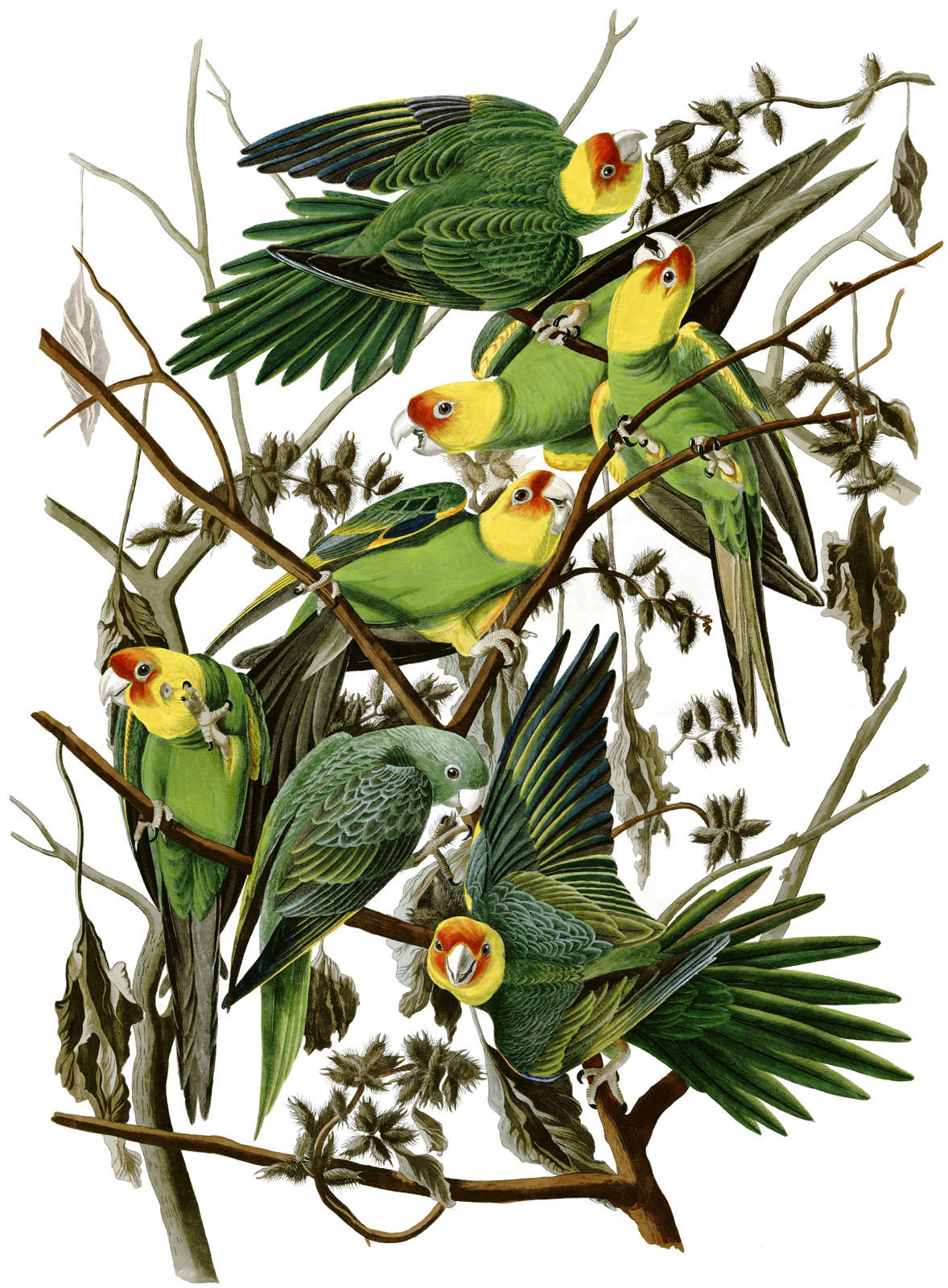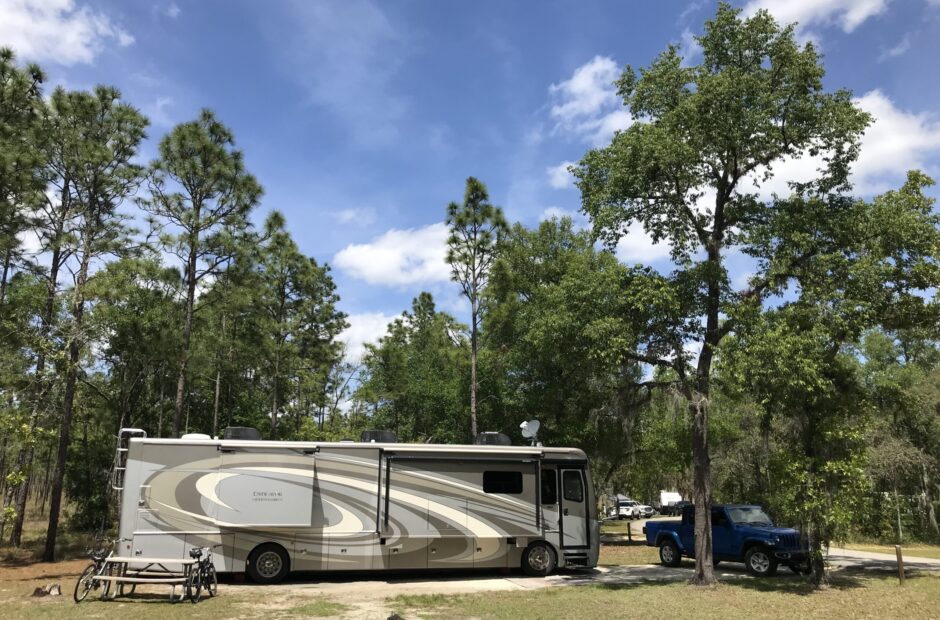Kissimmee Prairie Preserve State Park, Okeechobee, Florida
Now Sarai, Abram’s wife, had borne him no children. But she had an Egyptian maidservant named Hagar; so she said to Abram, “The LORD has kept me from having children. Go, sleep with my maidservant; perhaps I can build a family through her.” Abram agreed to what Sarai said. ~ Genesis 16:1-2 This is about 8 years after the covenant was made. Abram is exhibiting mistrust once again, and innocent people will suffer for it – once again. Basically, Sarai (Sarah) and Abram (Abraham before God changed their names), now 85 years old, don’t like God’s timetable, so they decide to take matters into their own hands, with disastrous results. Just like when we do the same. People – whether they lived 3,000 years ago, or today – don’t wait well. Also, this practice of having children with a servant when the wife seems barren was a pagan practice at the time. It was vital to a tribe’s survival to produce heirs, especially male heirs.
Wanna hear something incredible? Blaine has an aunt and uncle in Kansas City, and she told me the weather man said it would be 110⁰ warmer today than it was last Tuesday! Can you believe that?!? All thanks to those winter storms that devastated the southern and middle states; thankfully missing central and southern Florida where we’ve been hanging out. But at this time last year, we were in many of those places in Texas you’ve seen on the news!
So last evening, a fellow camper was hanging out near our coach when Blaine was outside. He told him that “they” were planning a prescribed burn for today around the campground. We were very excited to hear that, so we decided we’d just hang out at home.
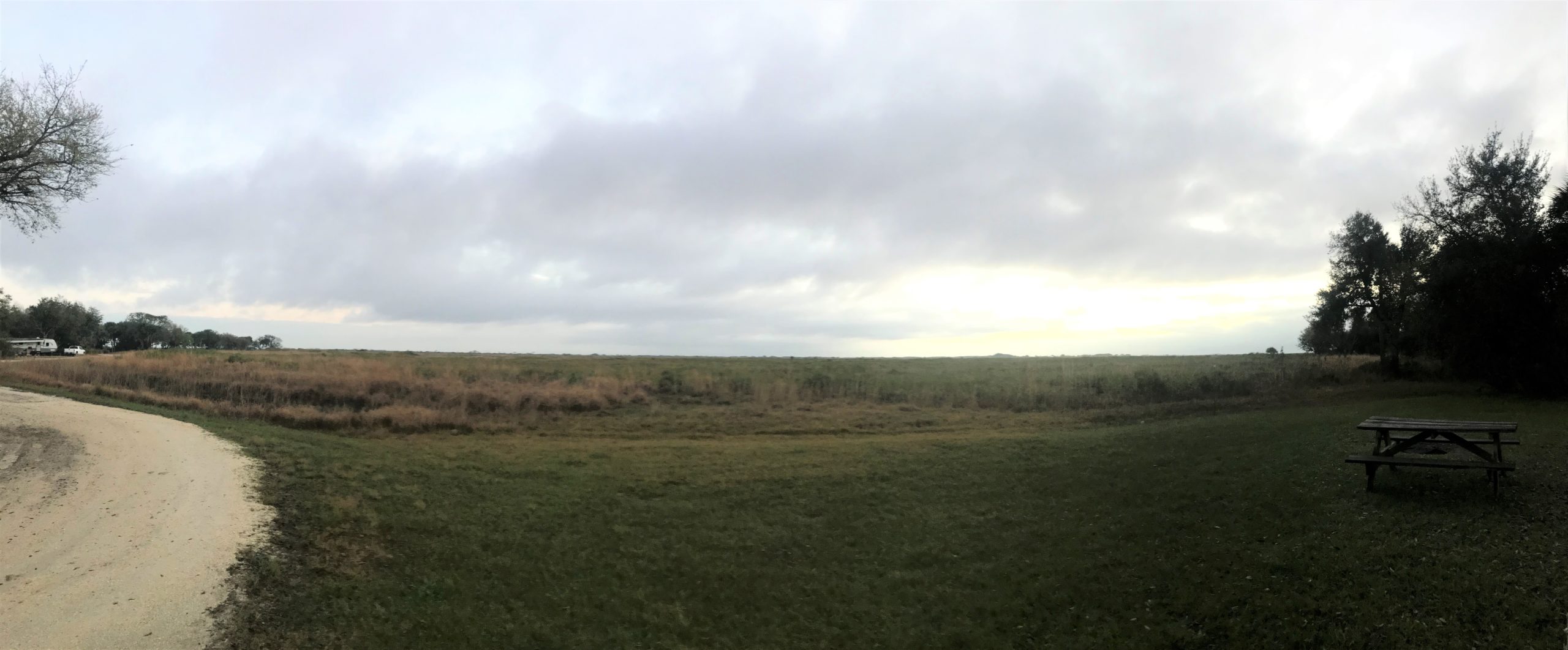
This is our sunrise today 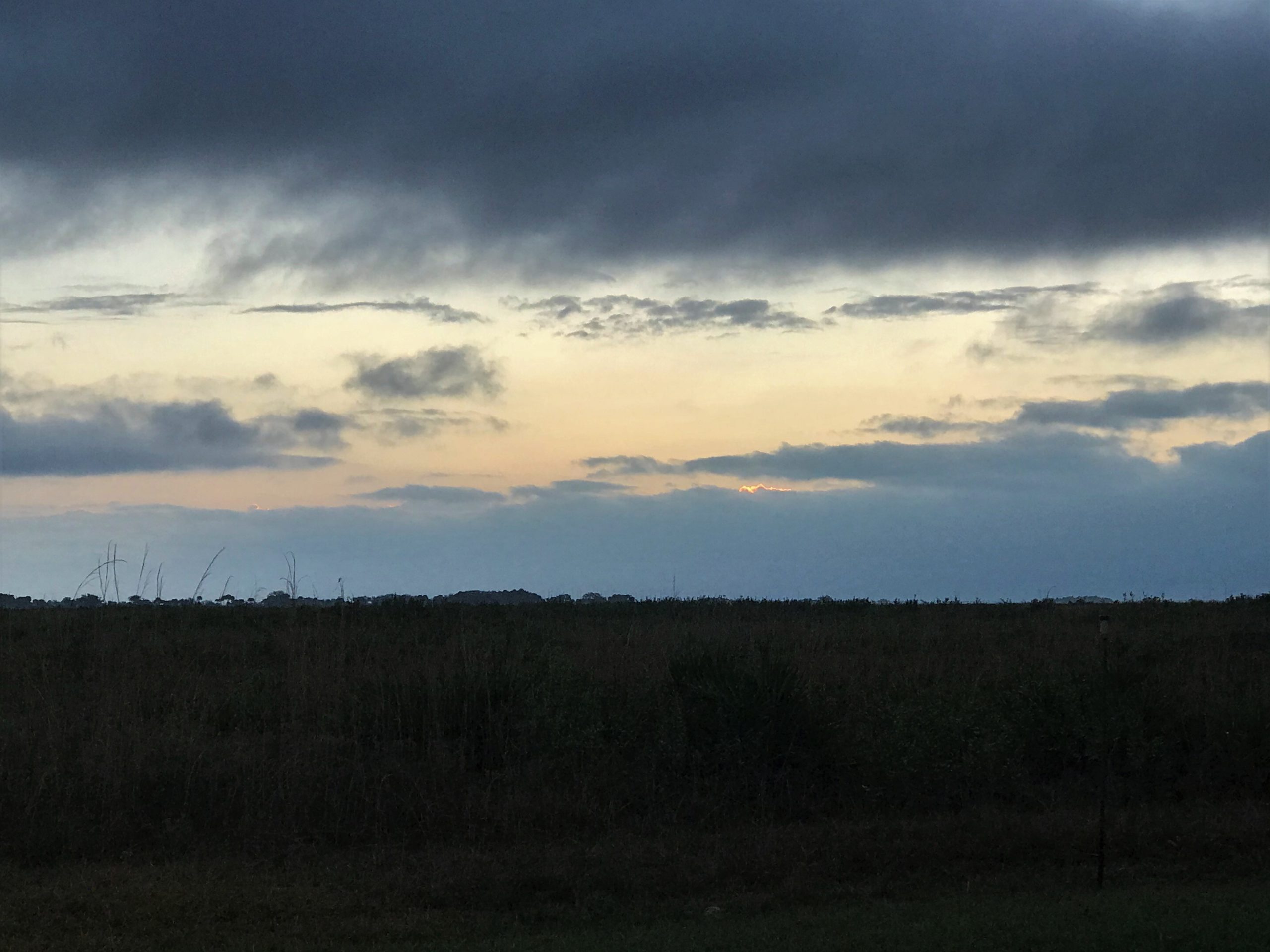
By 9:30am, there was still no activity, so we hopped on our bikes and went in search of. We found a group of about eight guys standing in a circle at the Park office, where it appeared they were participating in a job meeting or something. We assumed they were getting their marching orders.
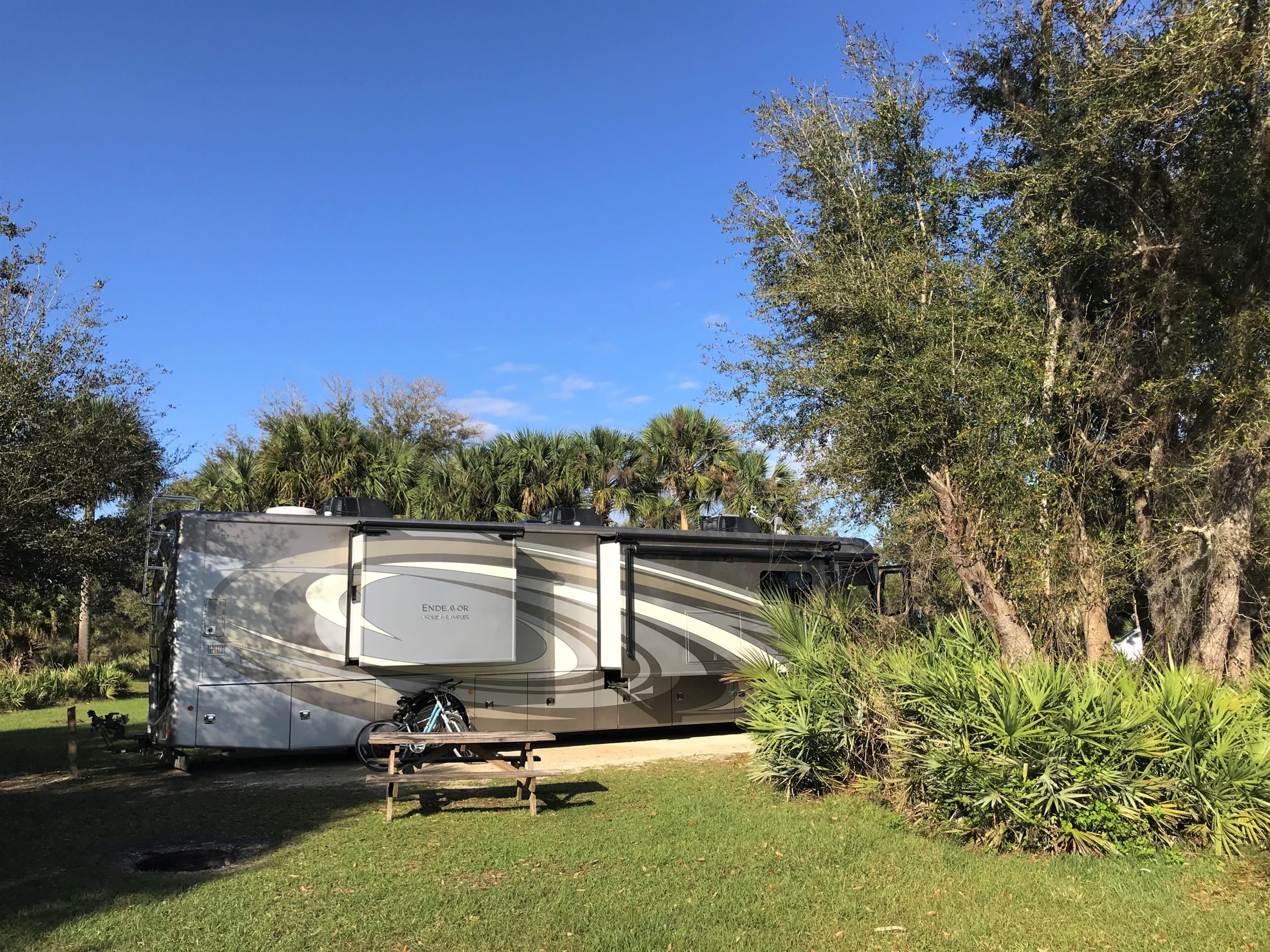
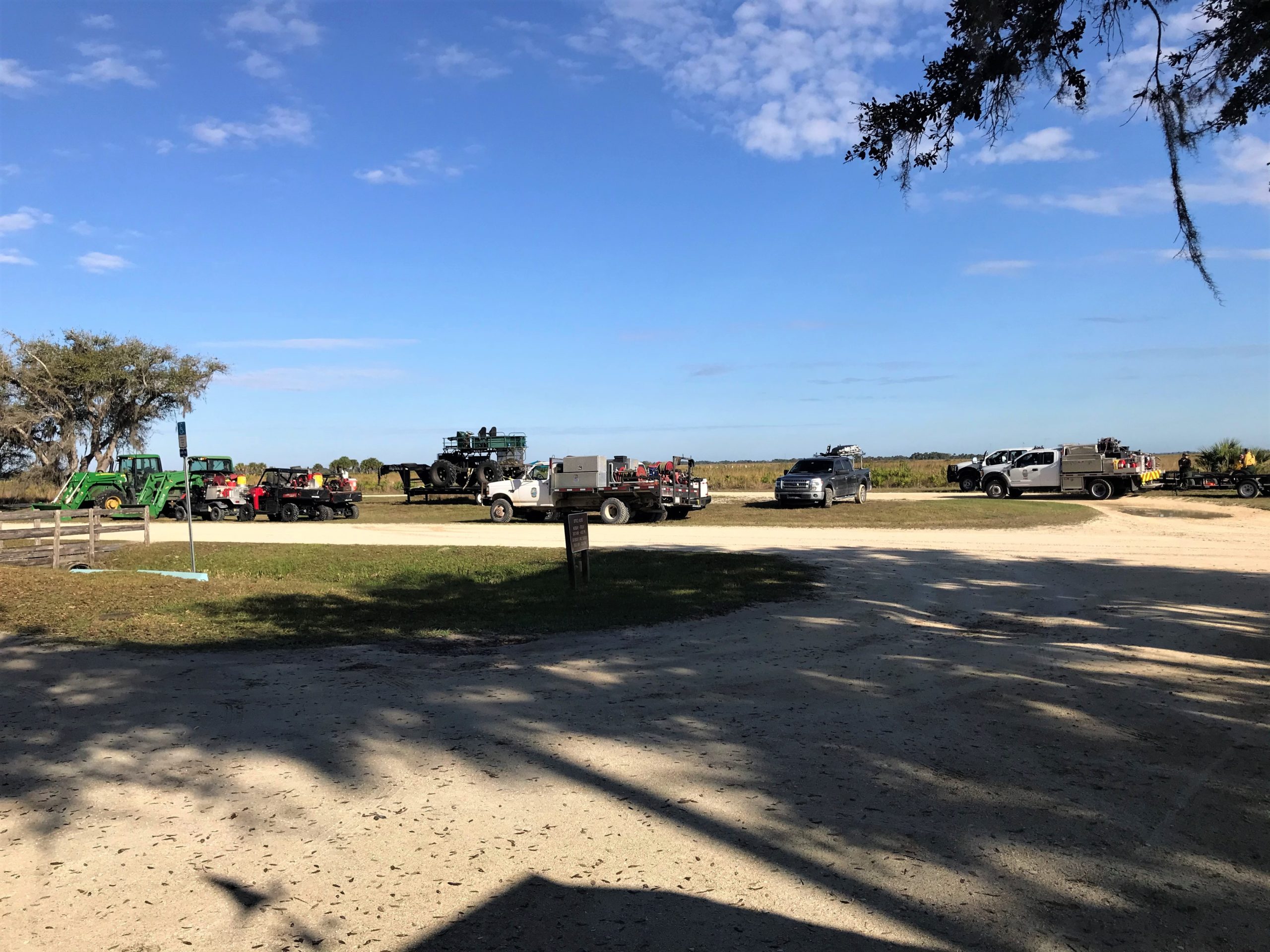
We rode down the road to check on the baby gators and see if there were indeed otters.
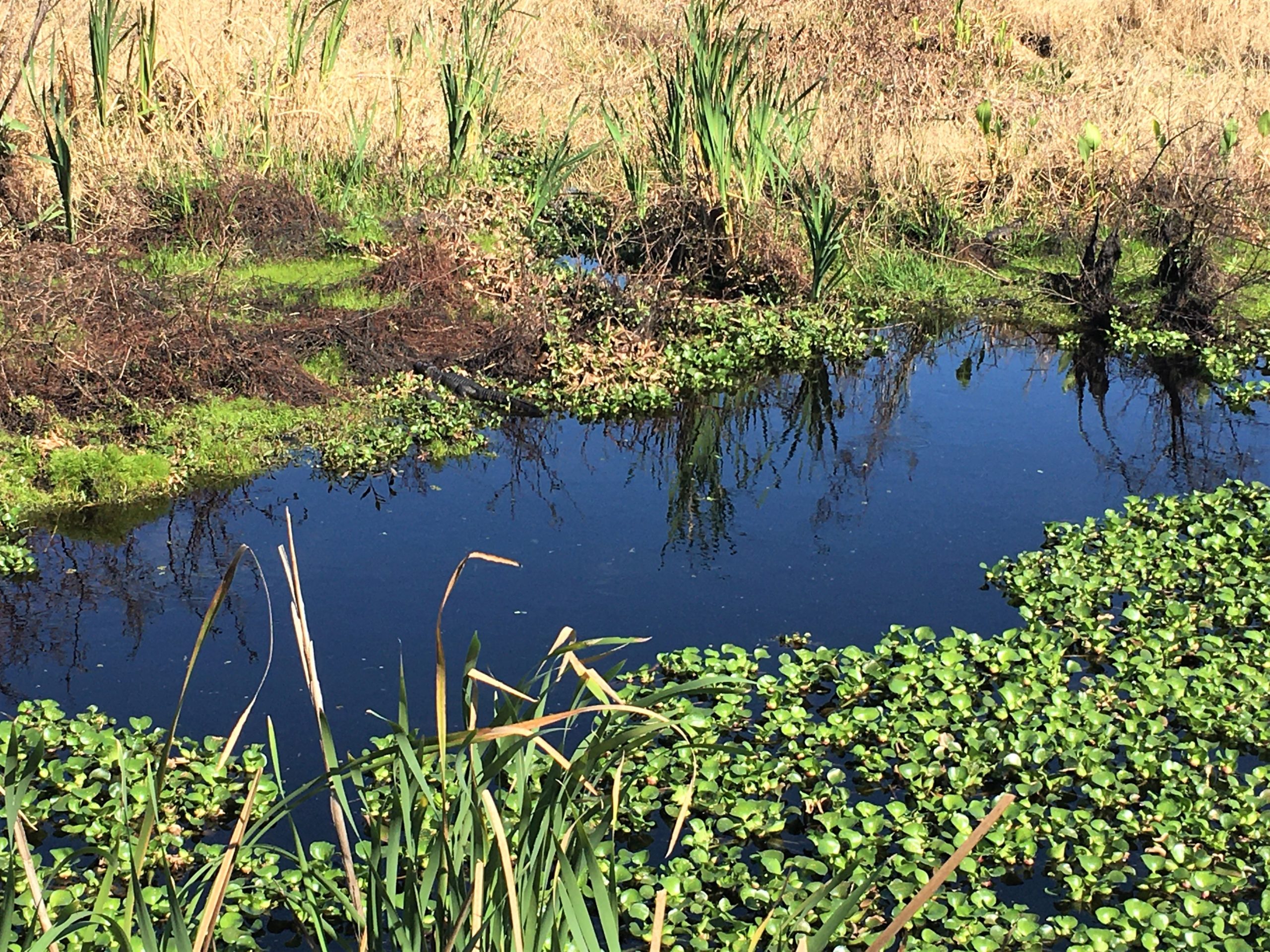
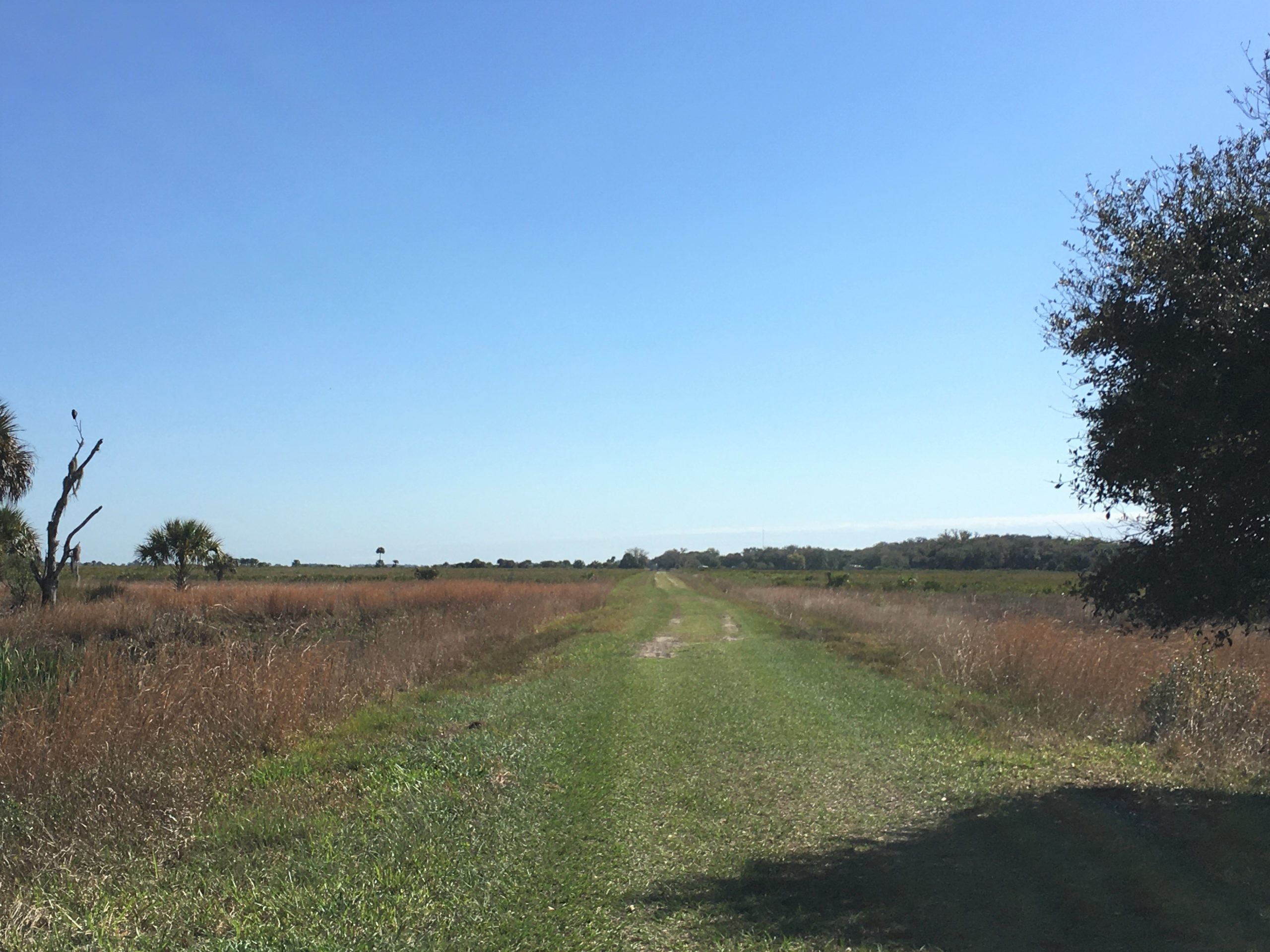
No otters, and the babies seemed just fine. 😊
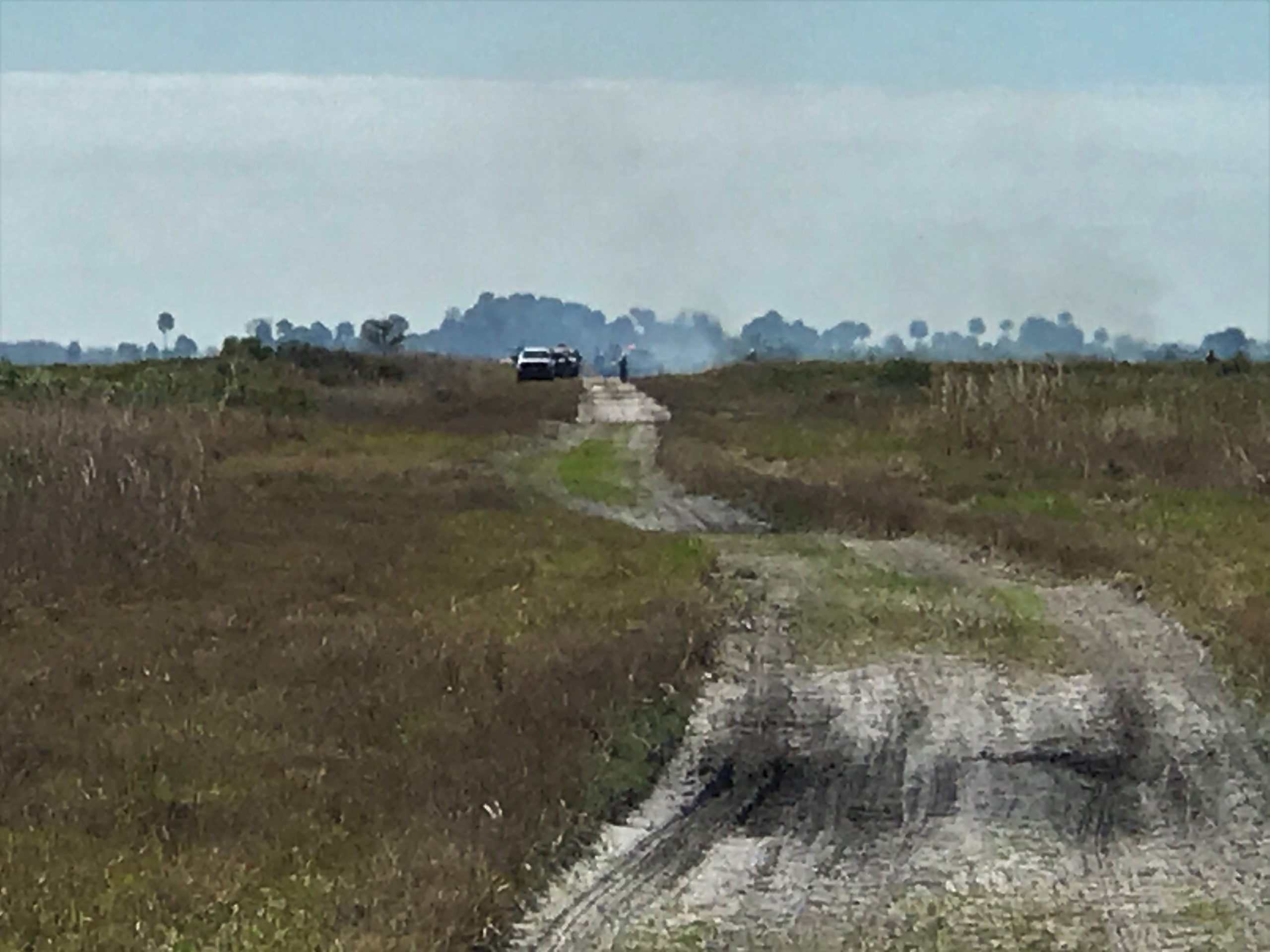
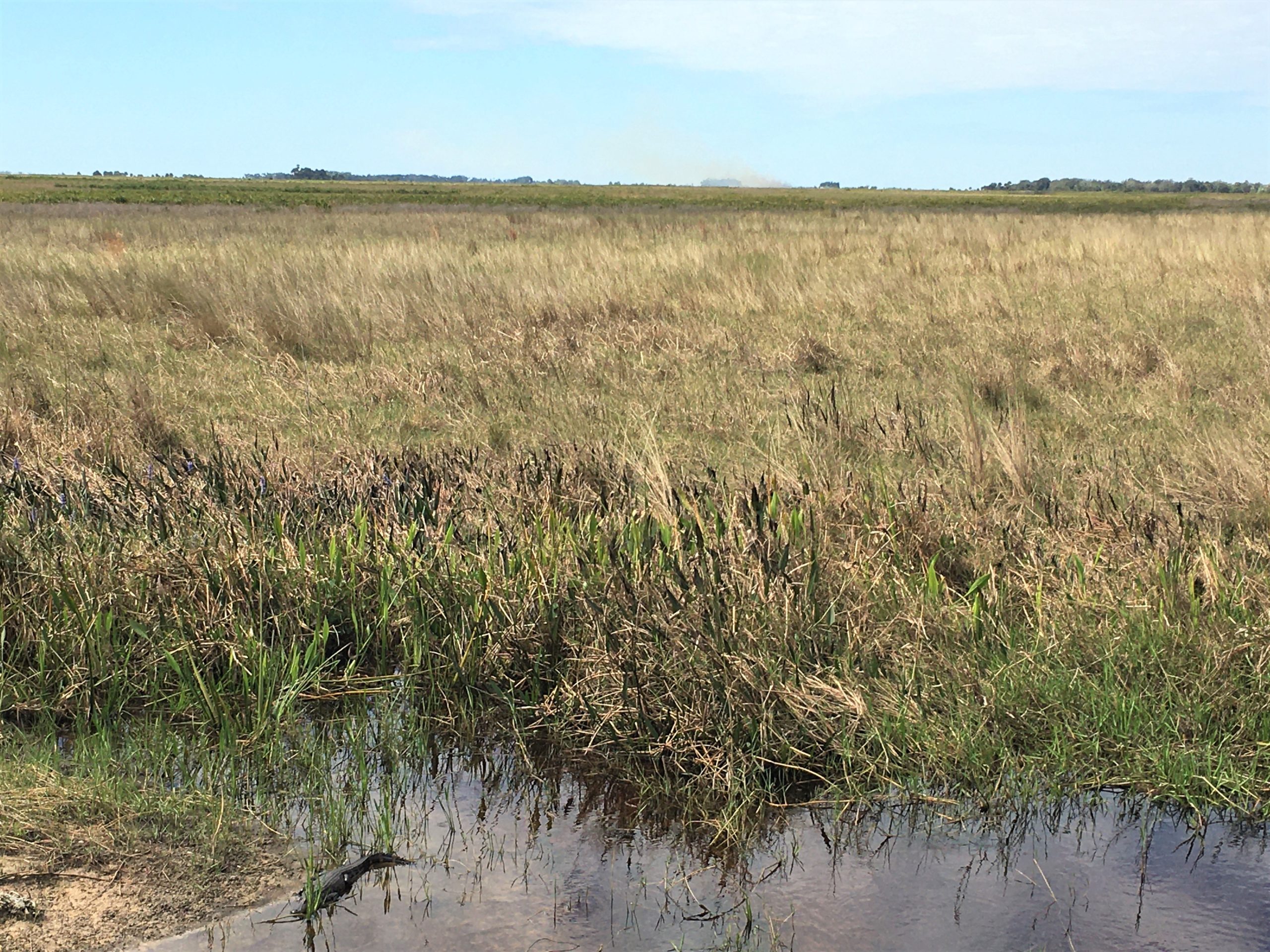
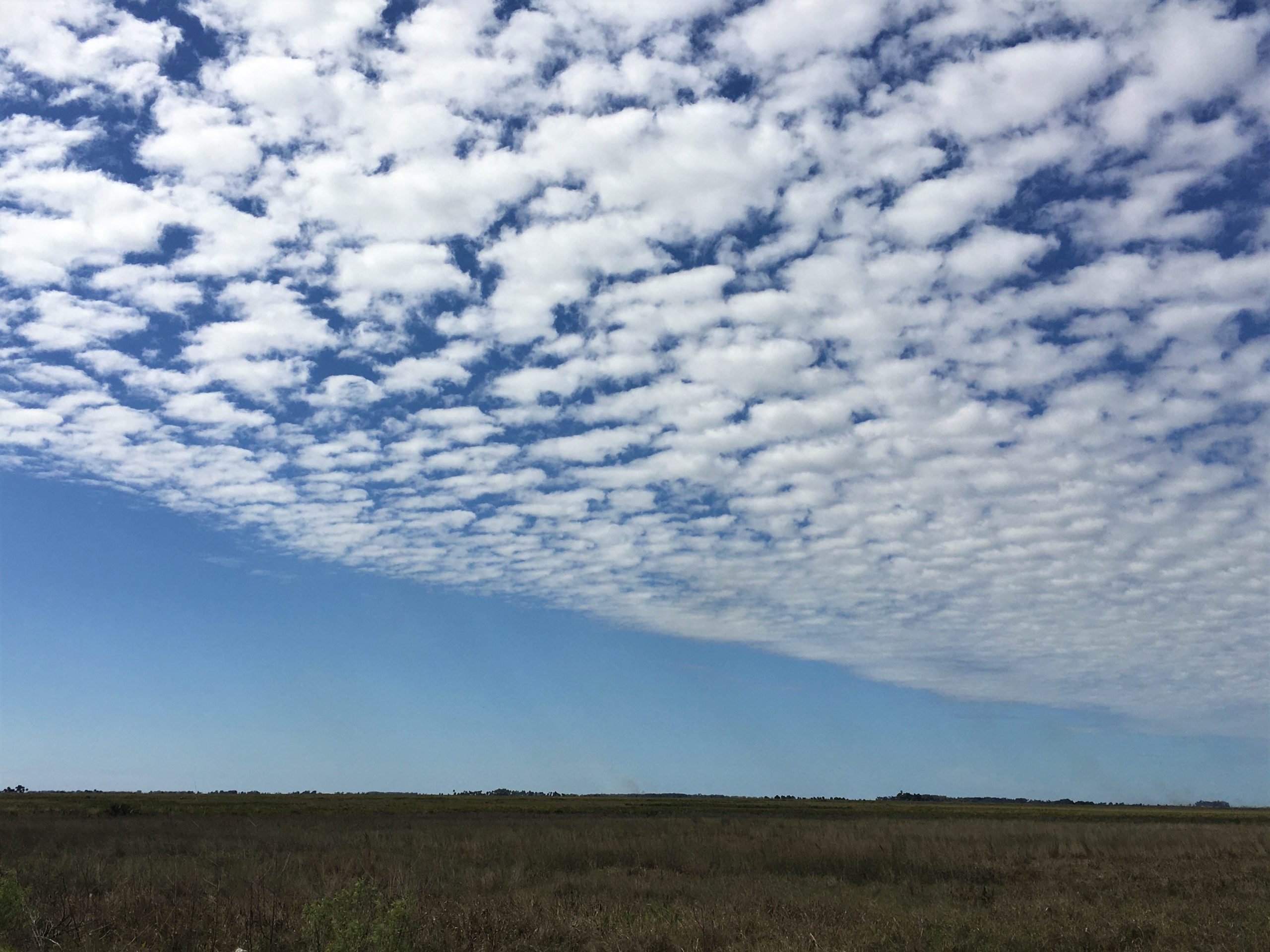
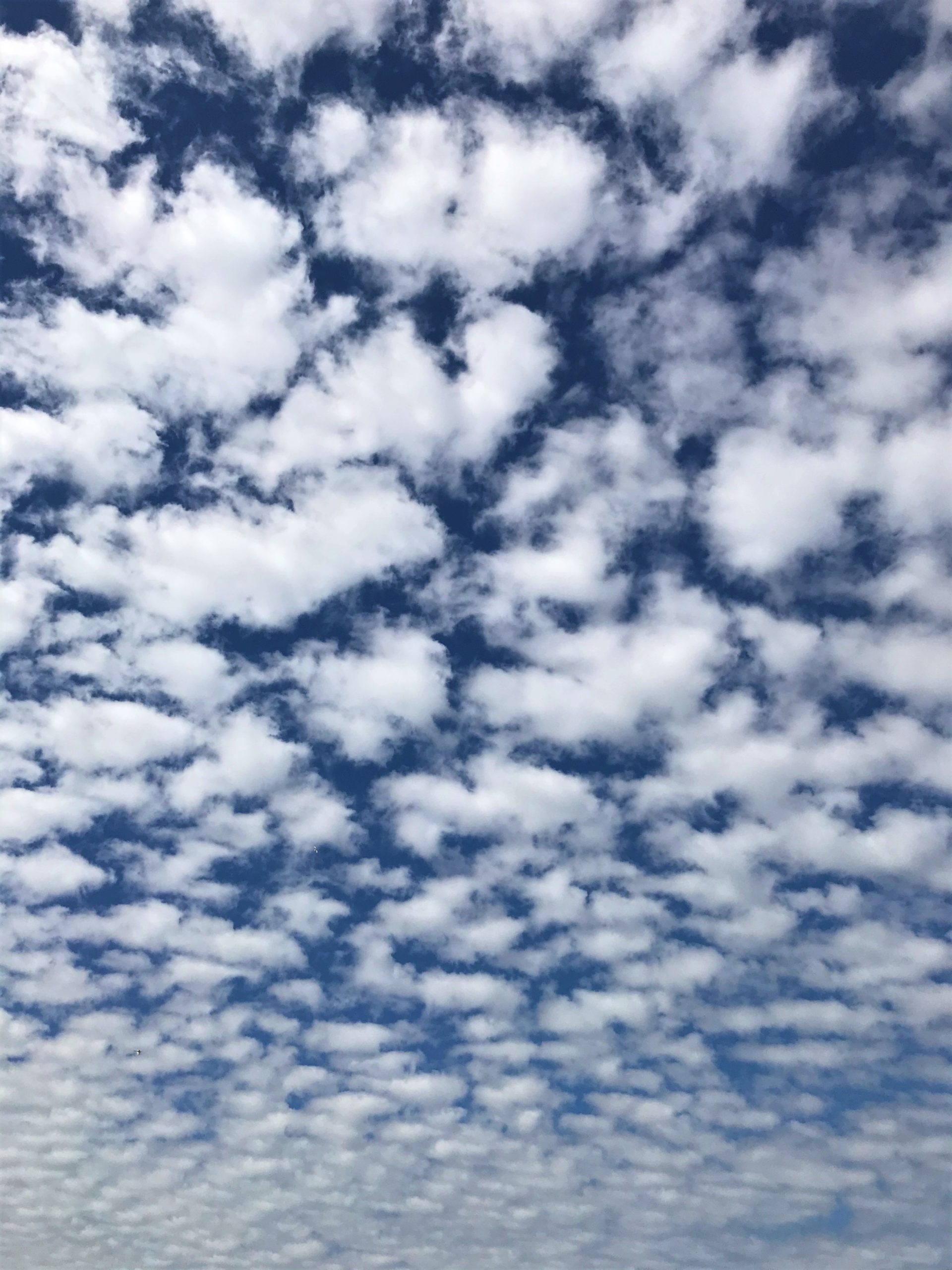
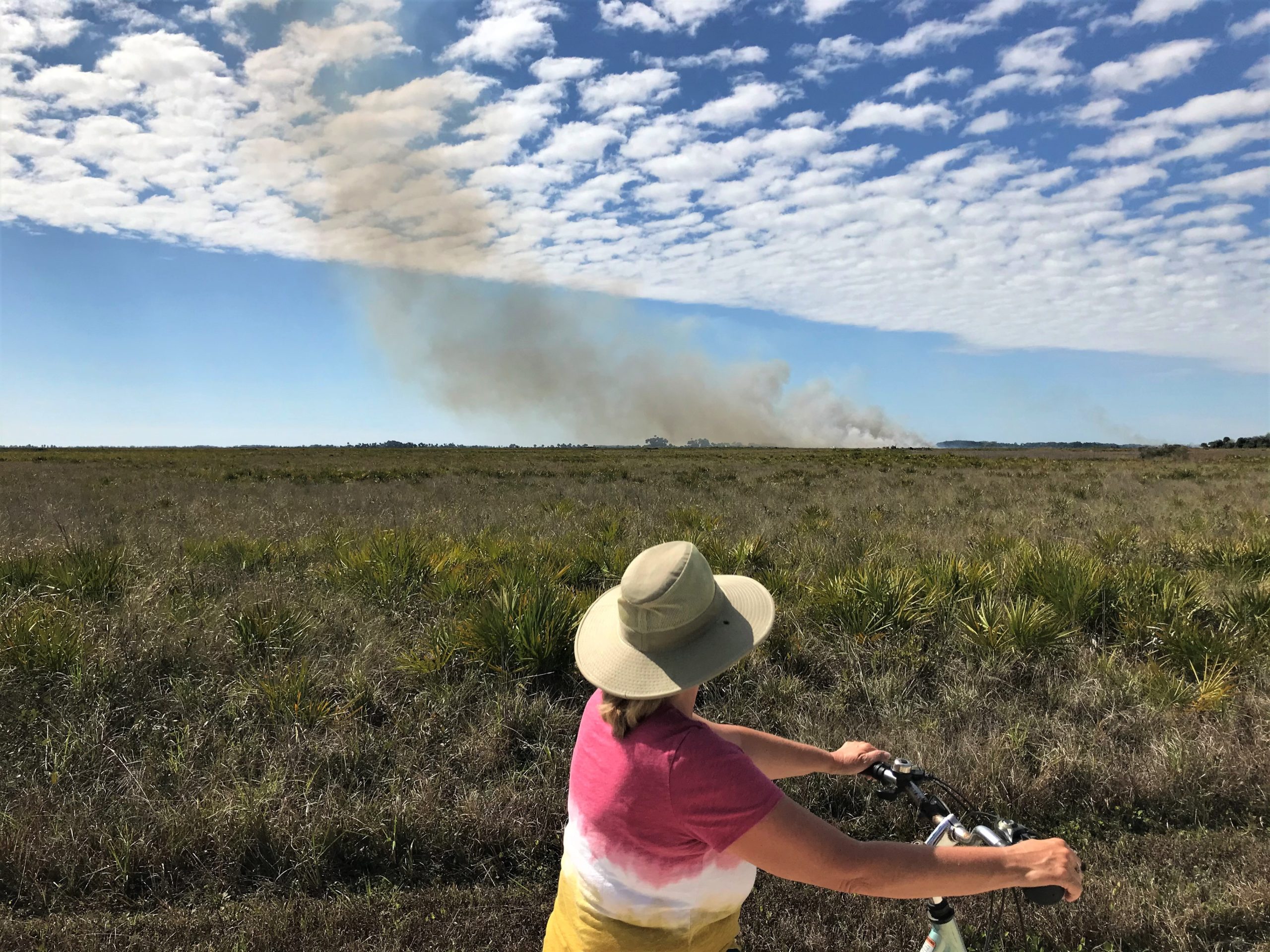
We didn’t know we still had an hour yet.
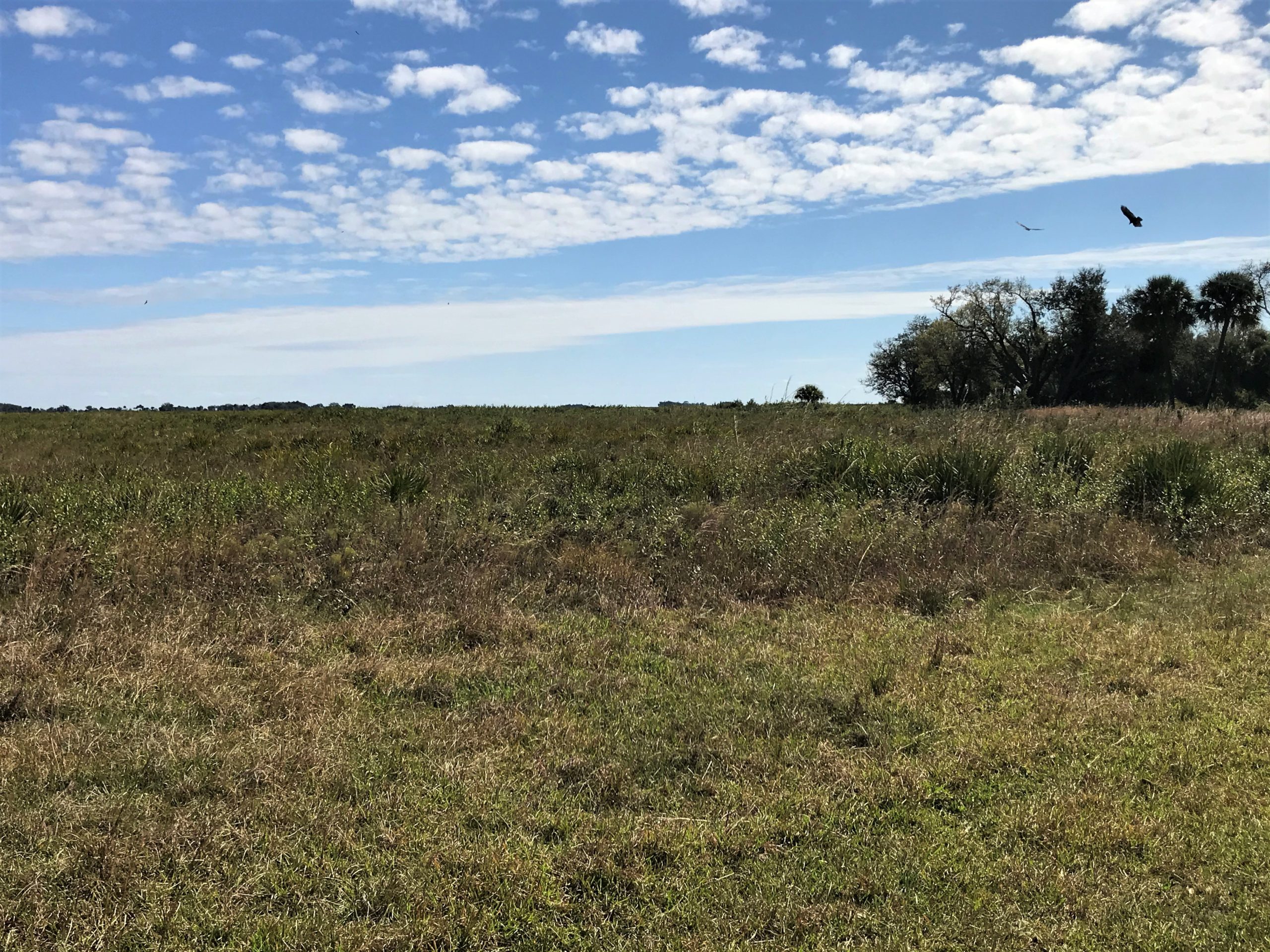
Eventually, the firemen made their way to us – at noon. So fun watching them in action – literally in our backyard!
Great way to spend an hour-and-a-half! With the added bonus of talking extensively with our Mennonite neighbors from Lancaster, Pennsylvania.
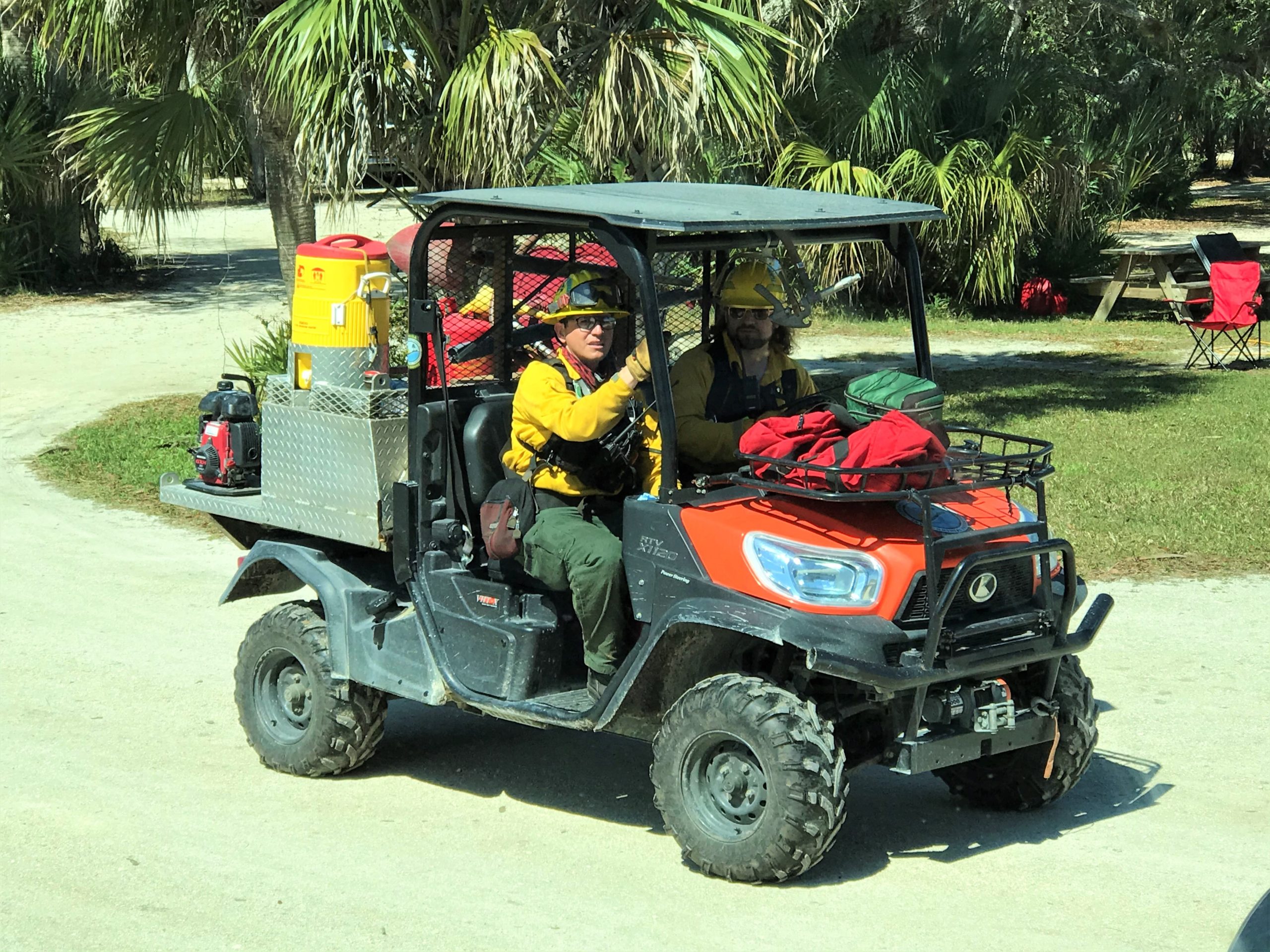
The passenger smiled when he saw Blaine taking his picture. lol
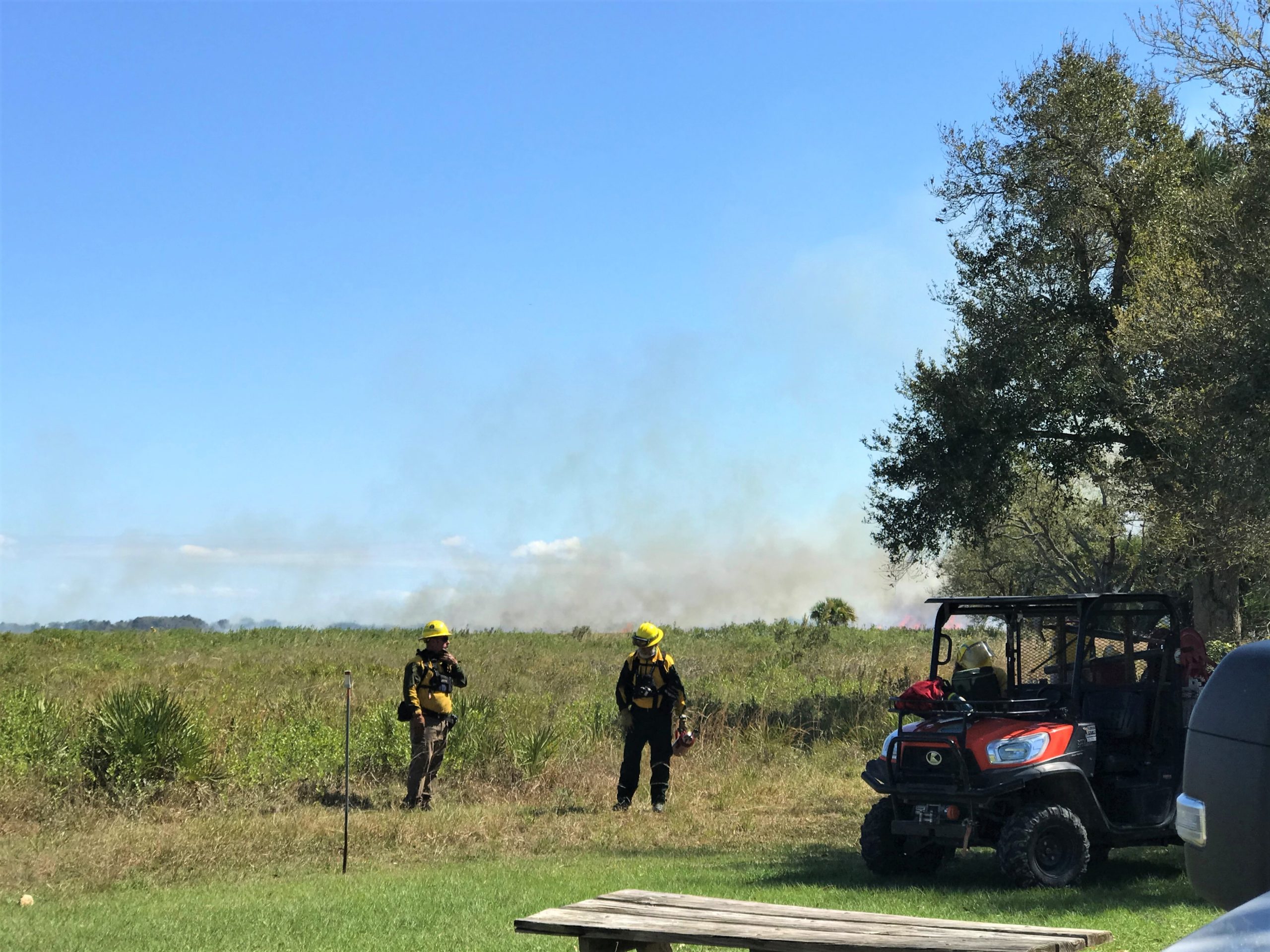
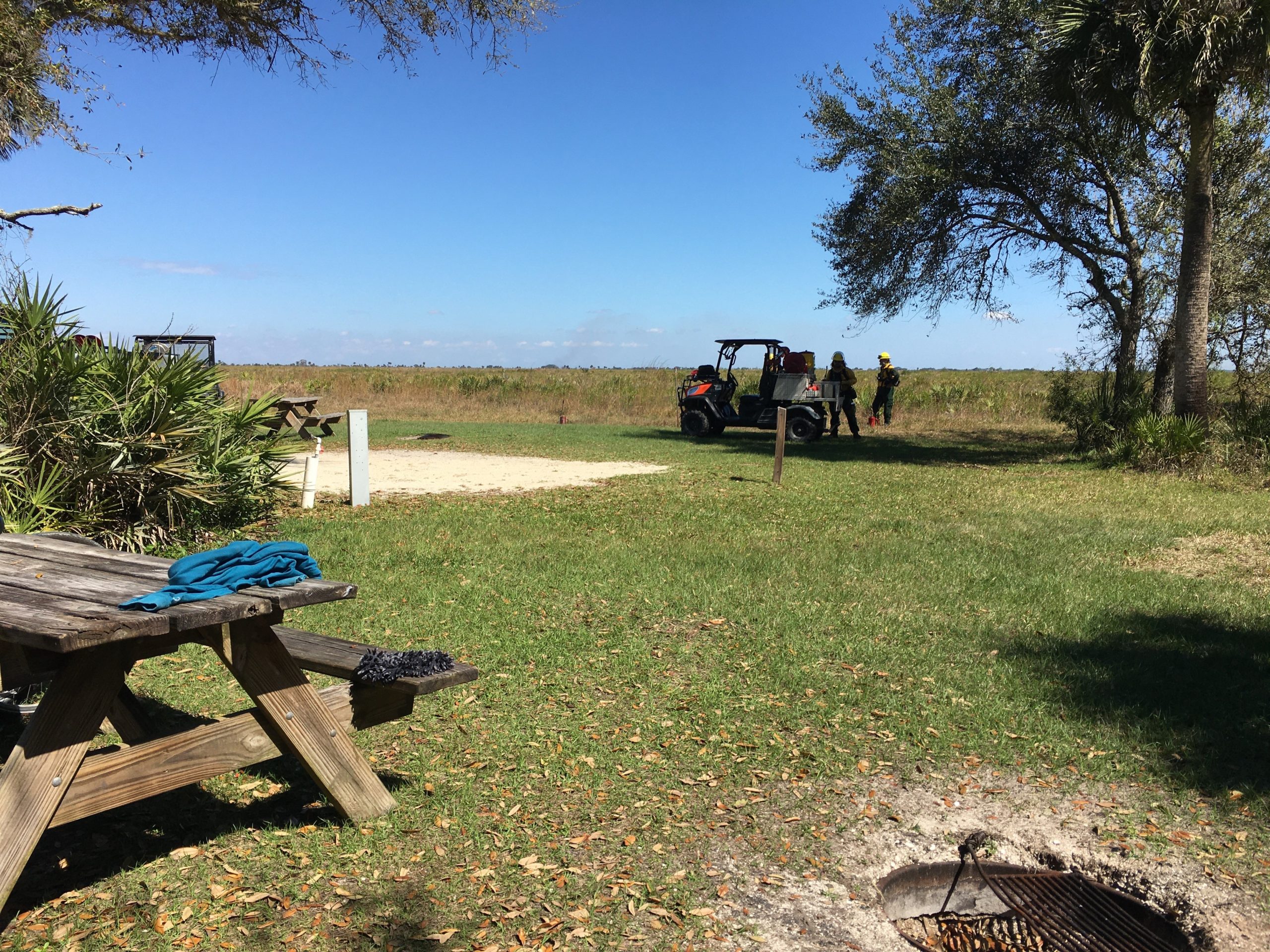
The previous people left yesterday.
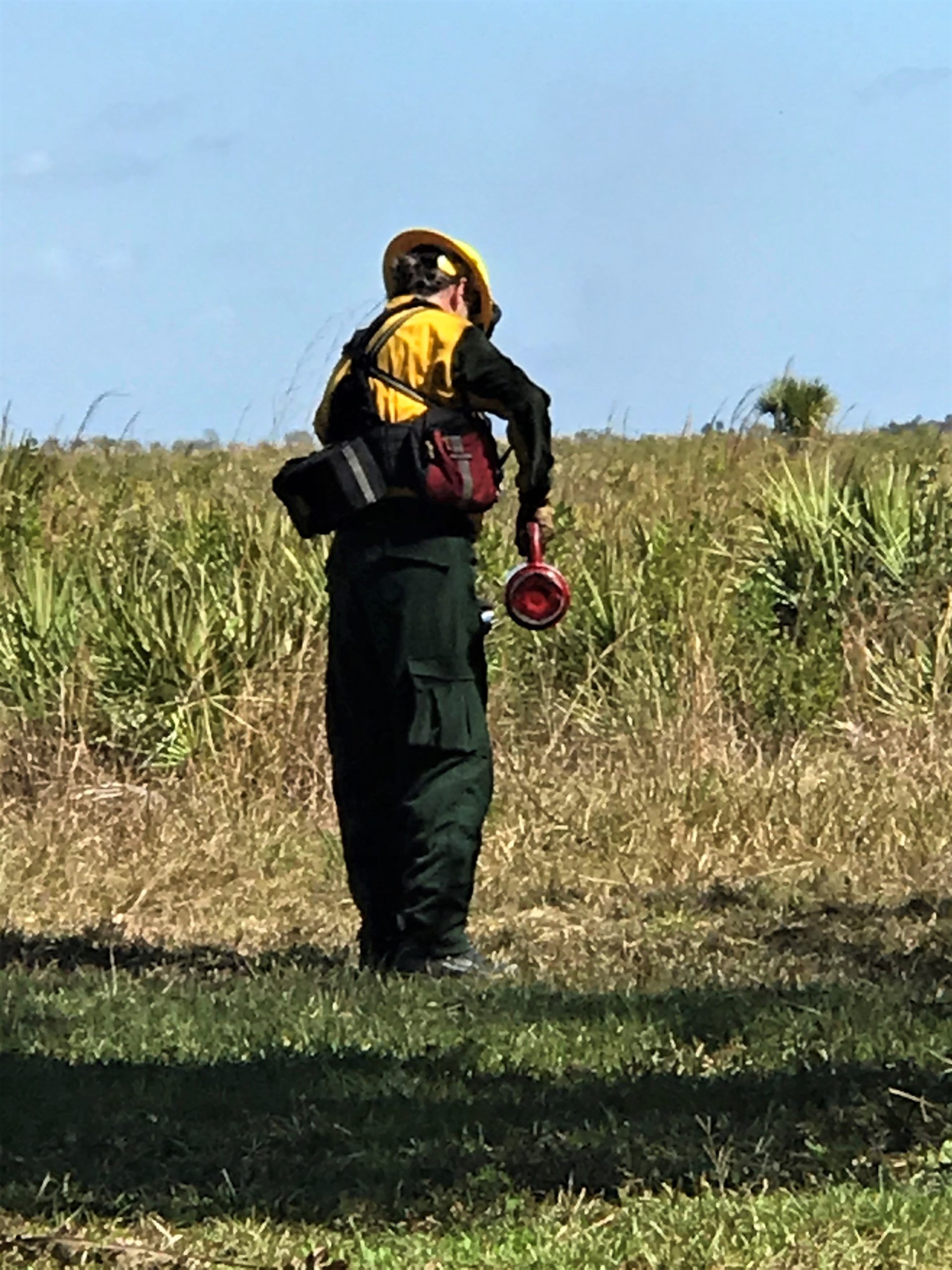
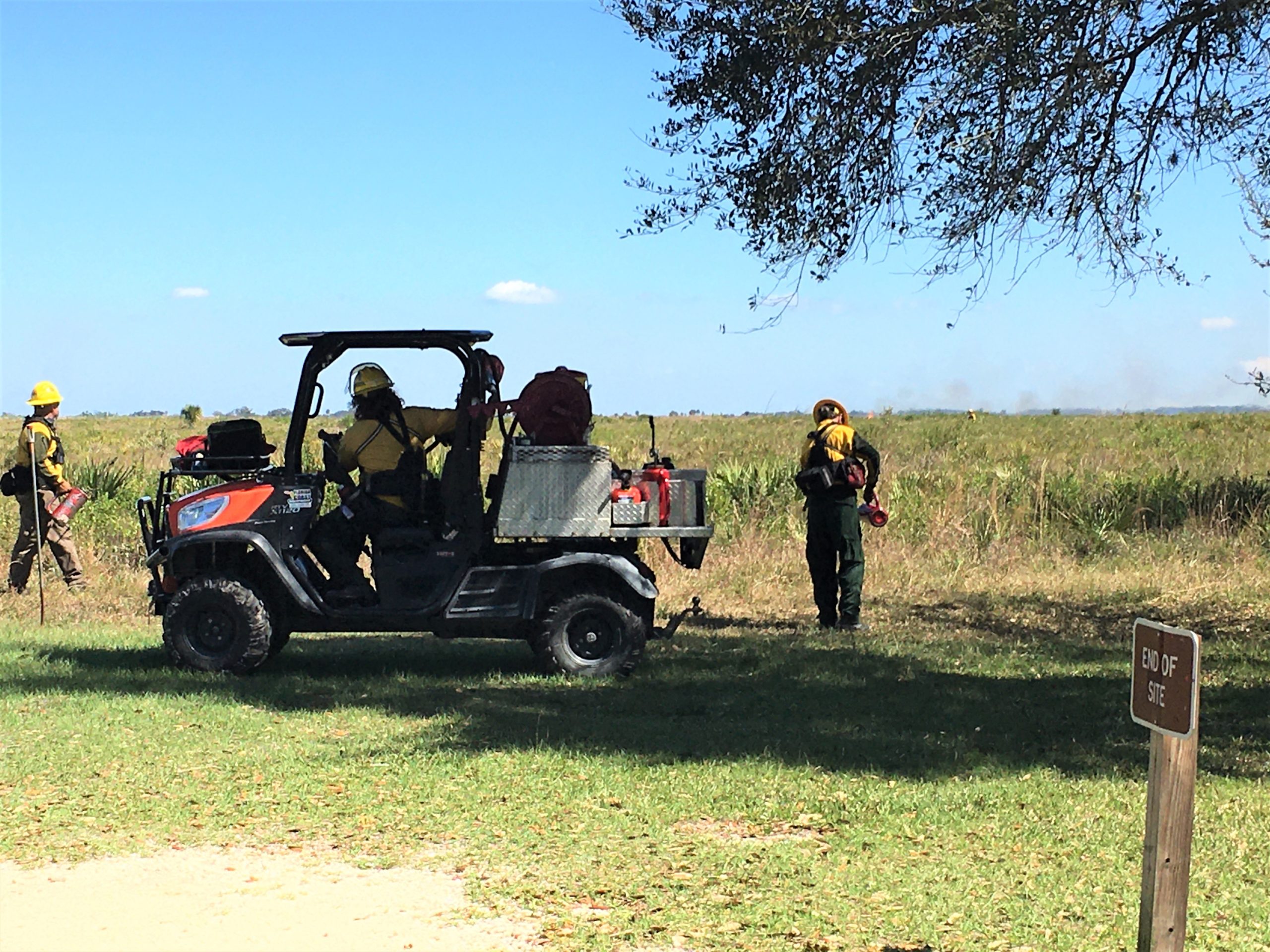
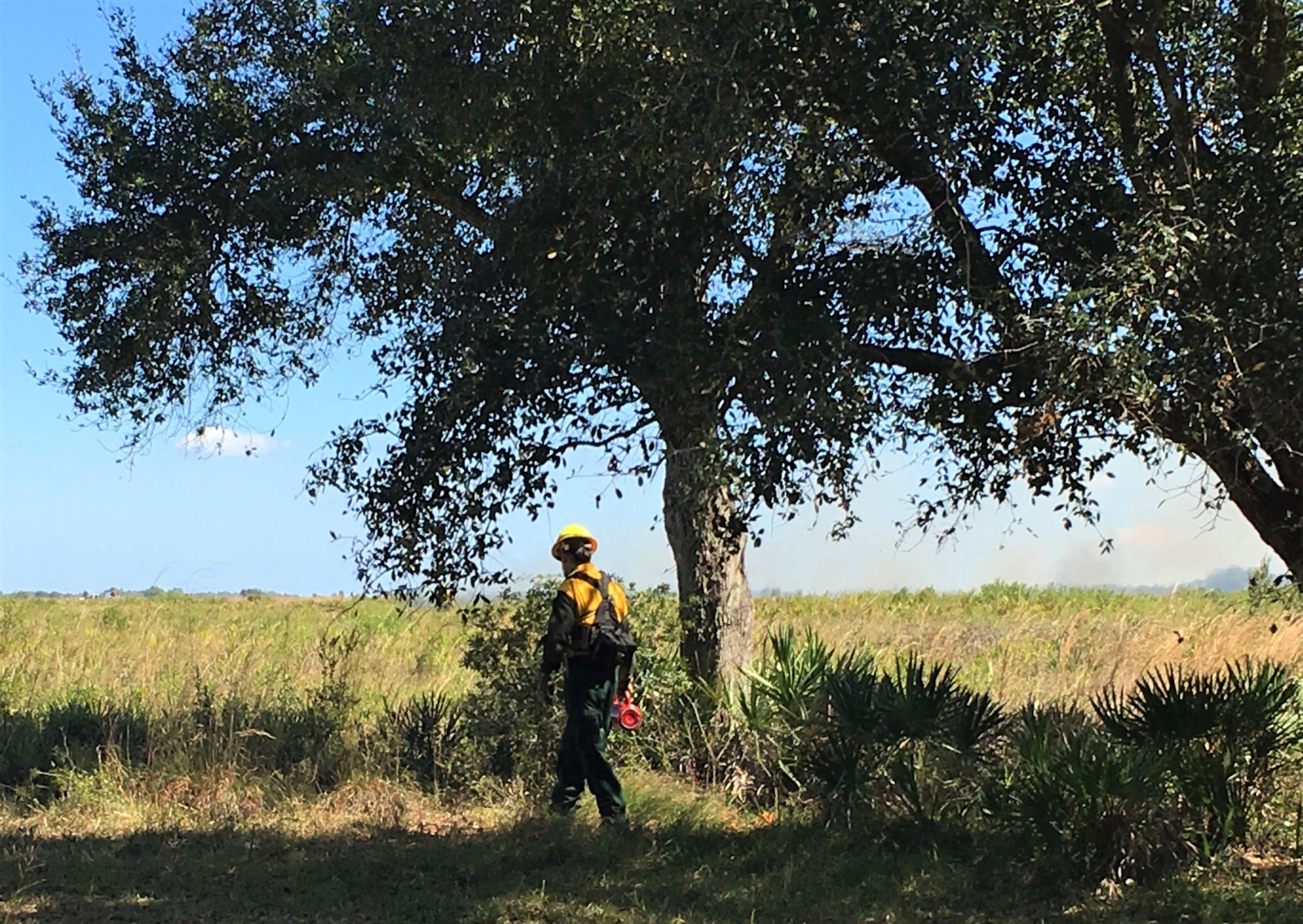
See the little flames to his right?
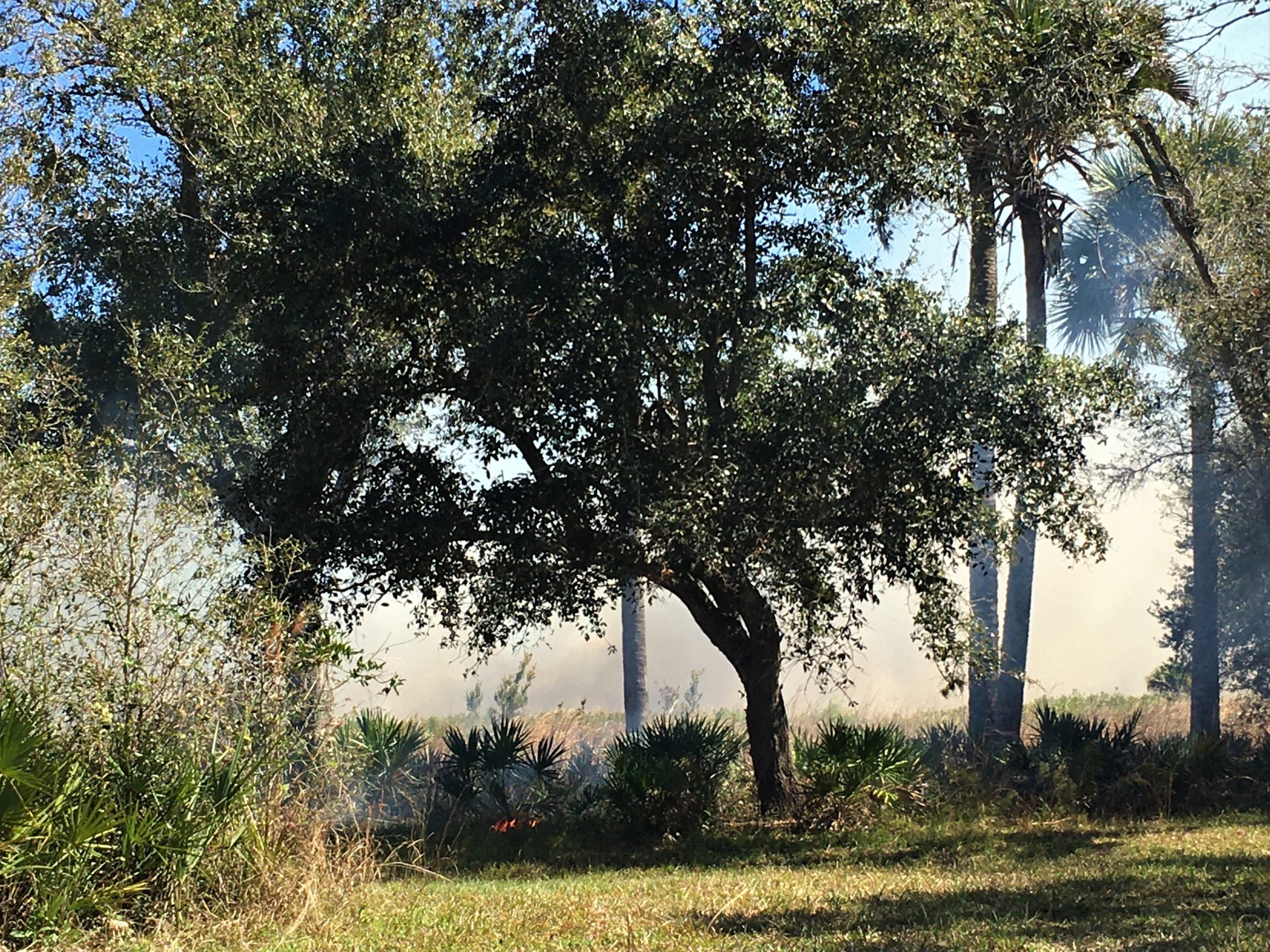
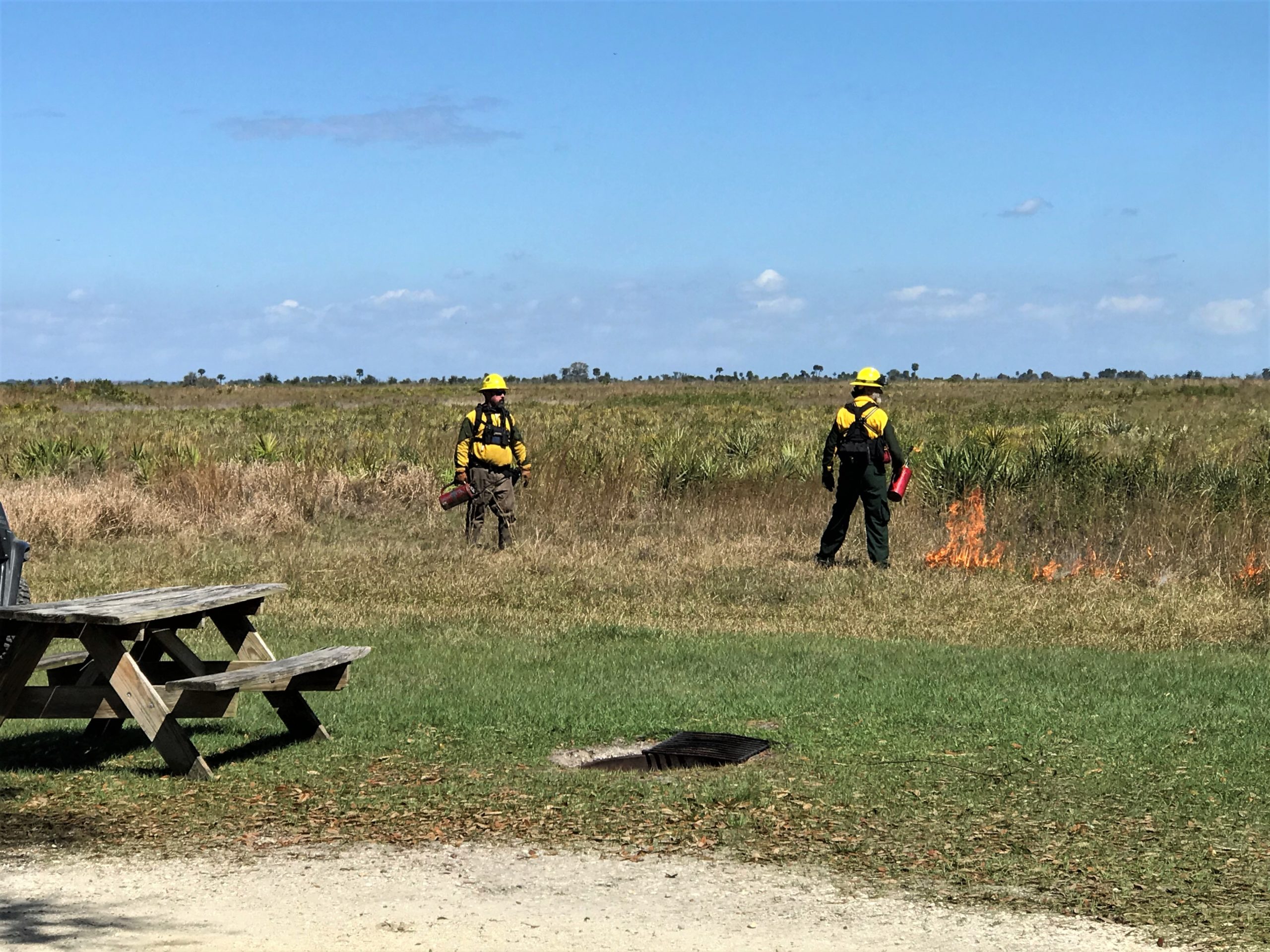
This all took place 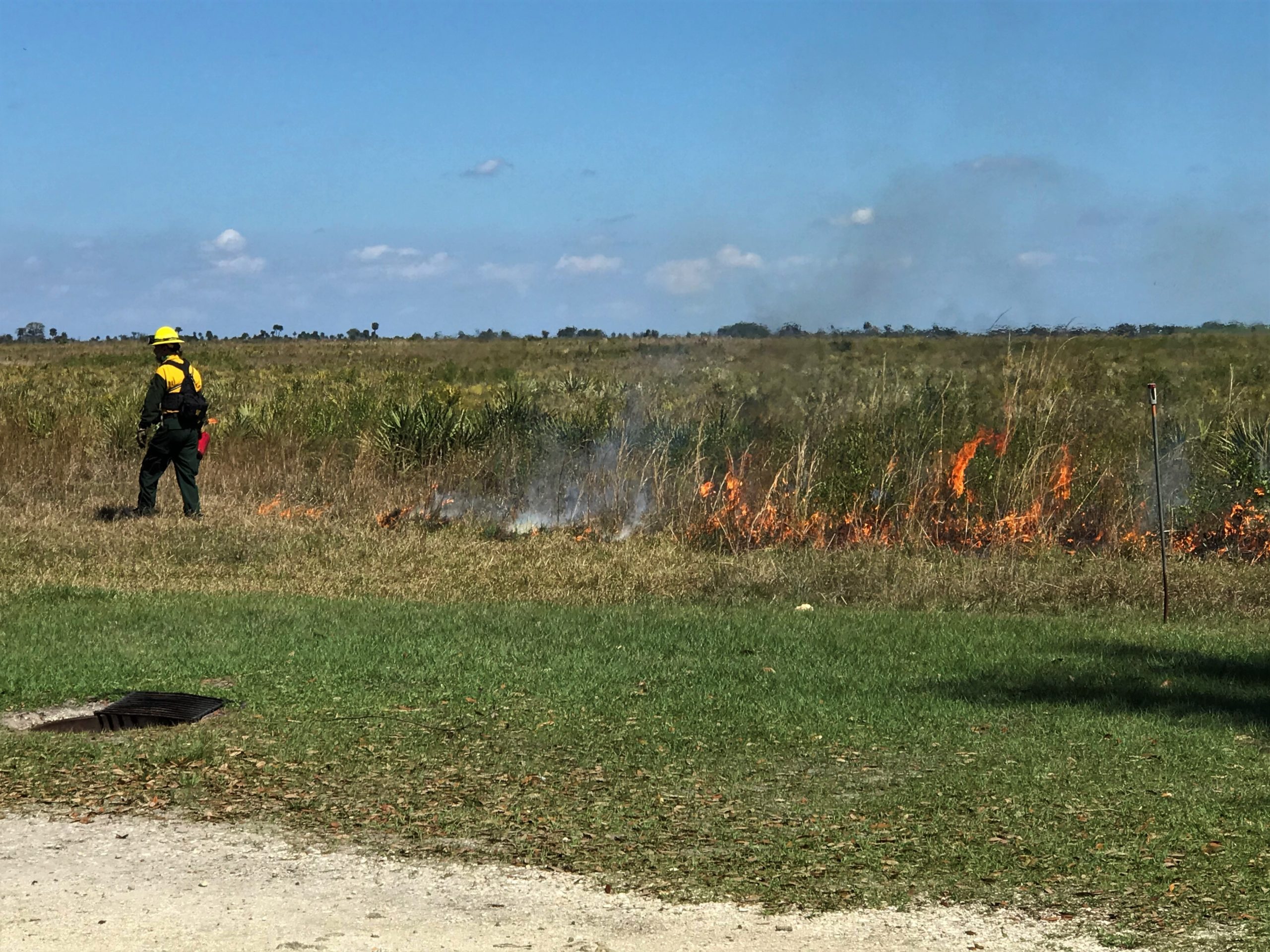
in less than a minute! 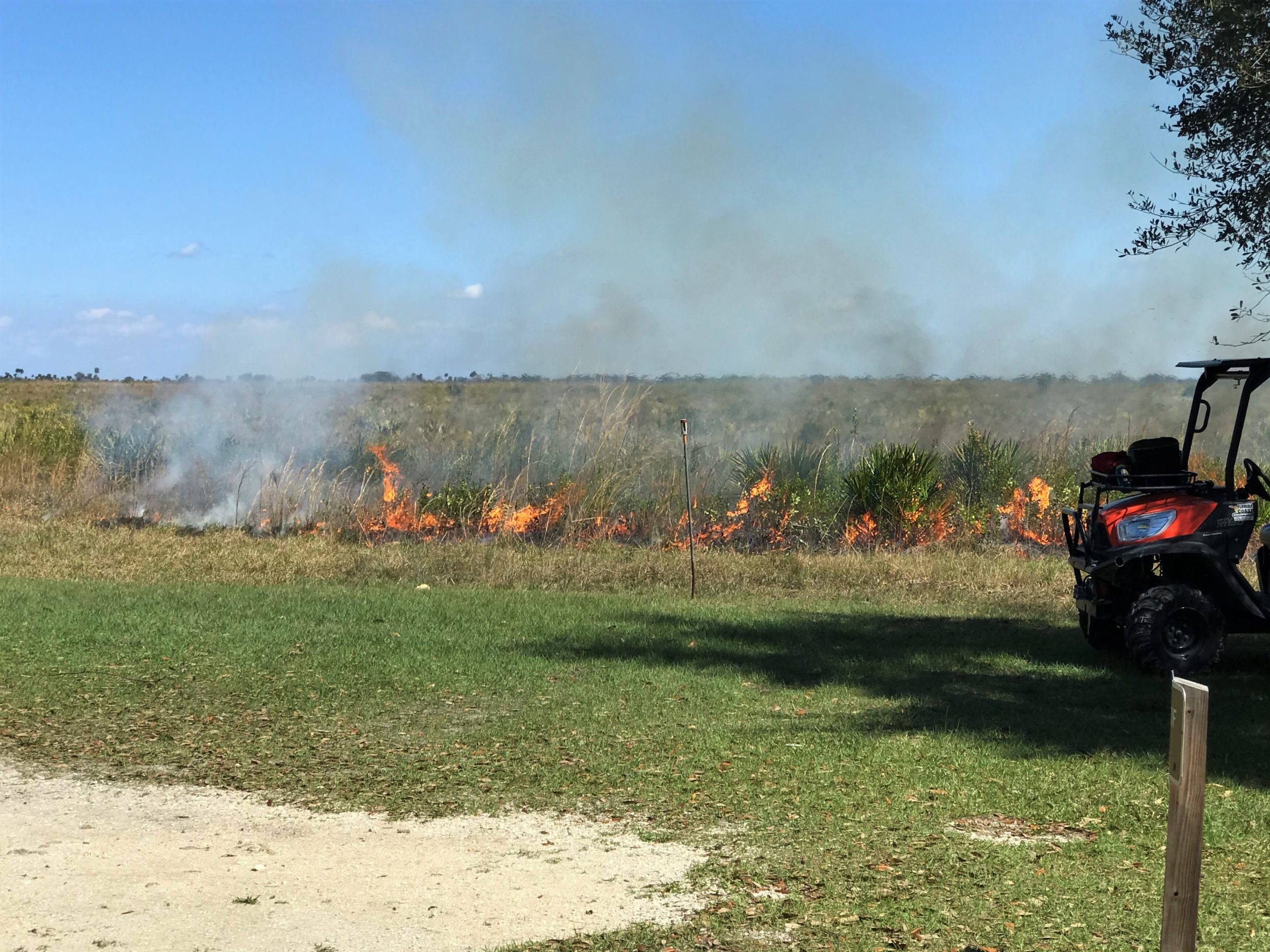
(12:30pm)
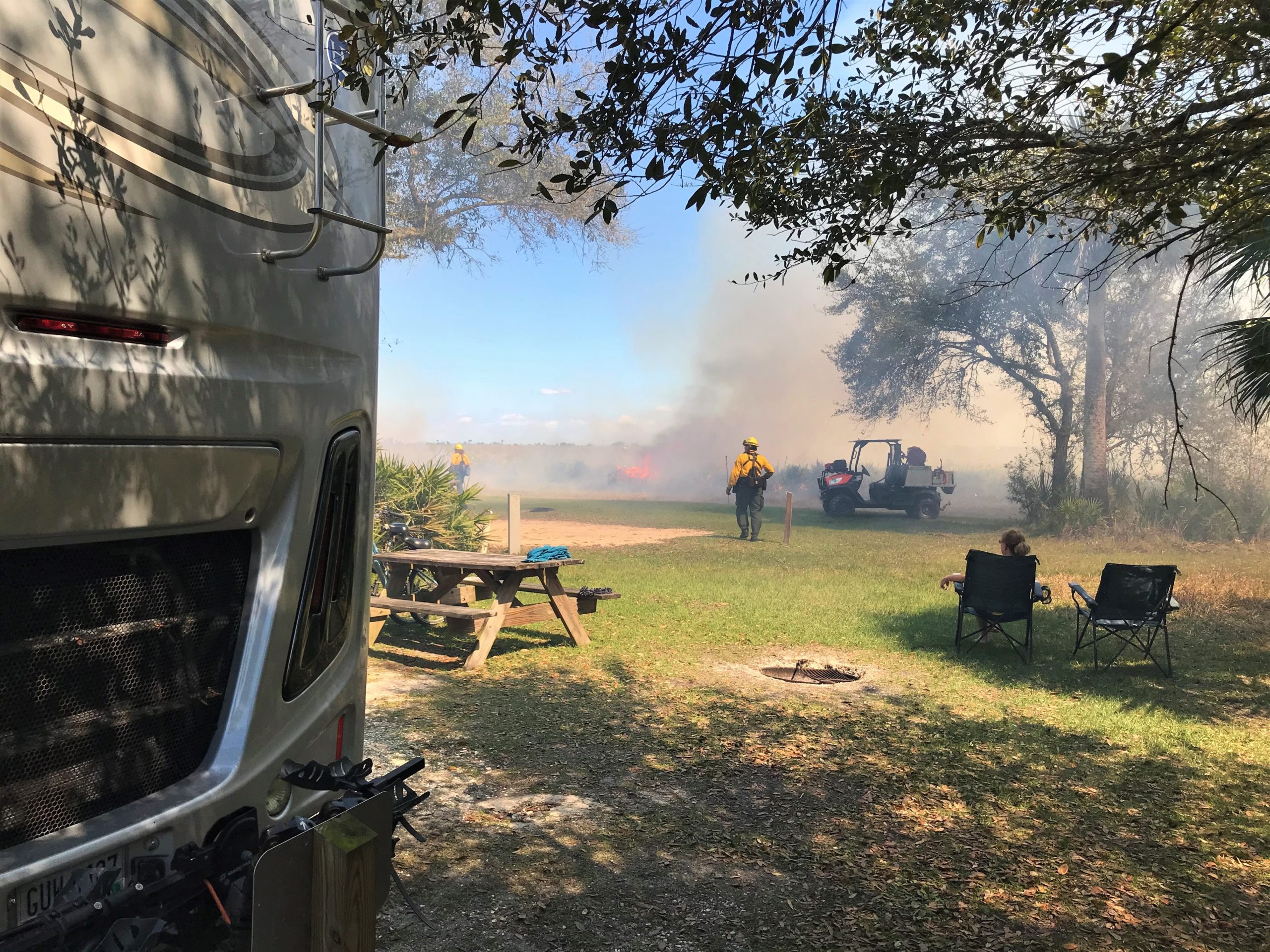
One of the firemen came over and told me that because the wind had shifted, they were setting a blaze in the center area to try to draw the flames away from the campground. Try?!?!?
`Good thing it worked!
I didn’t sit for more than a few seconds.
Everything was moving too fast! : )
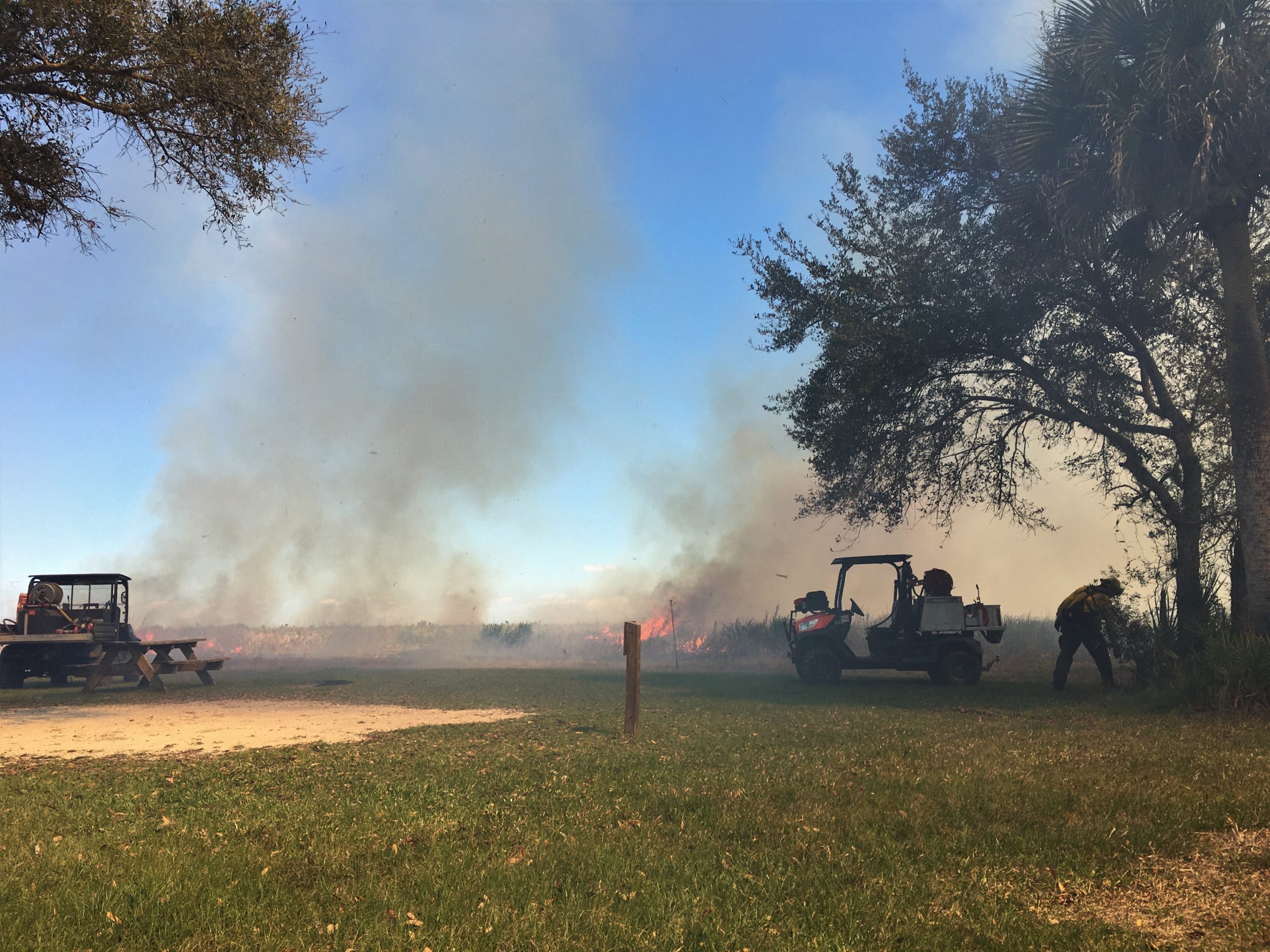
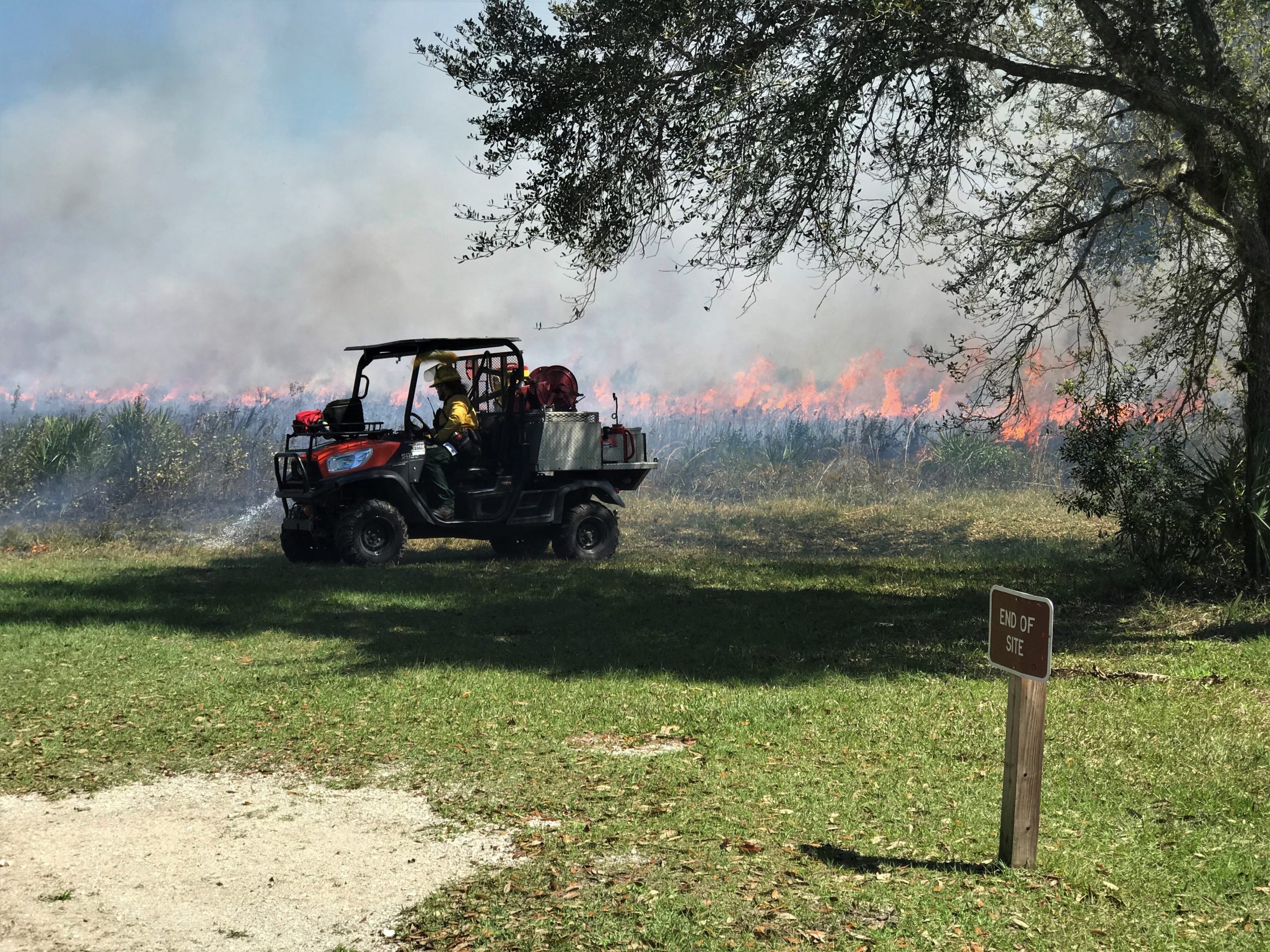
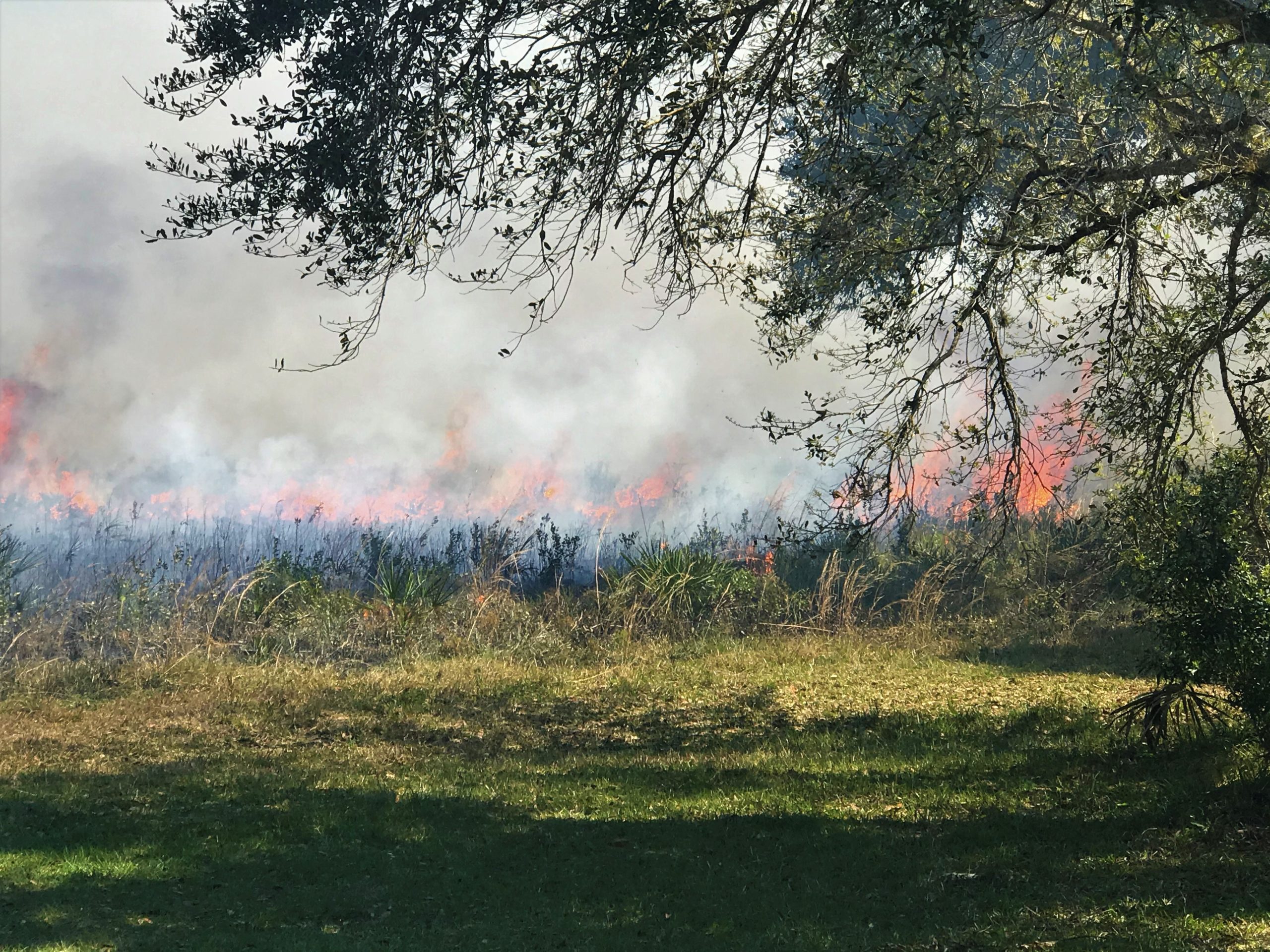
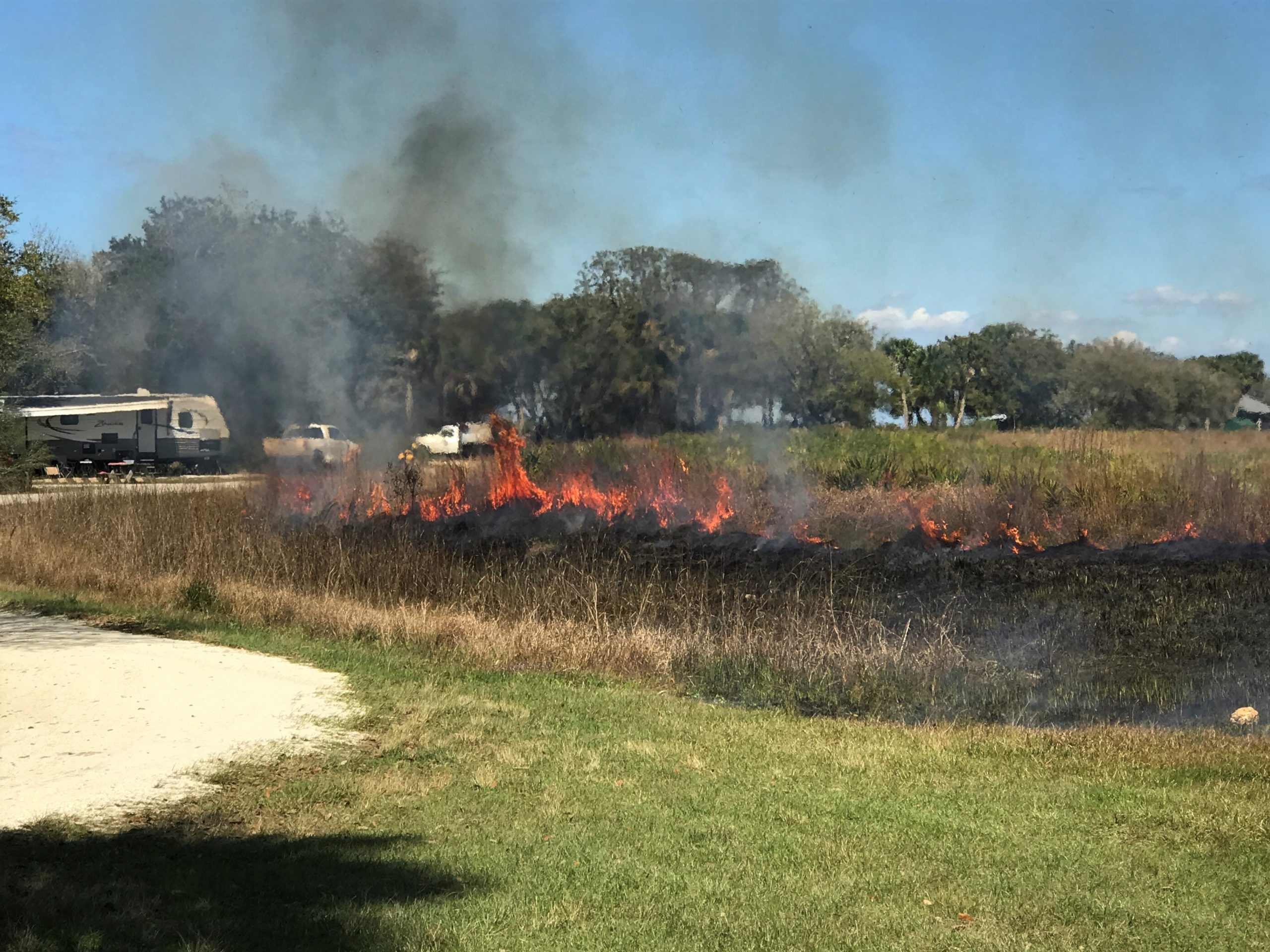
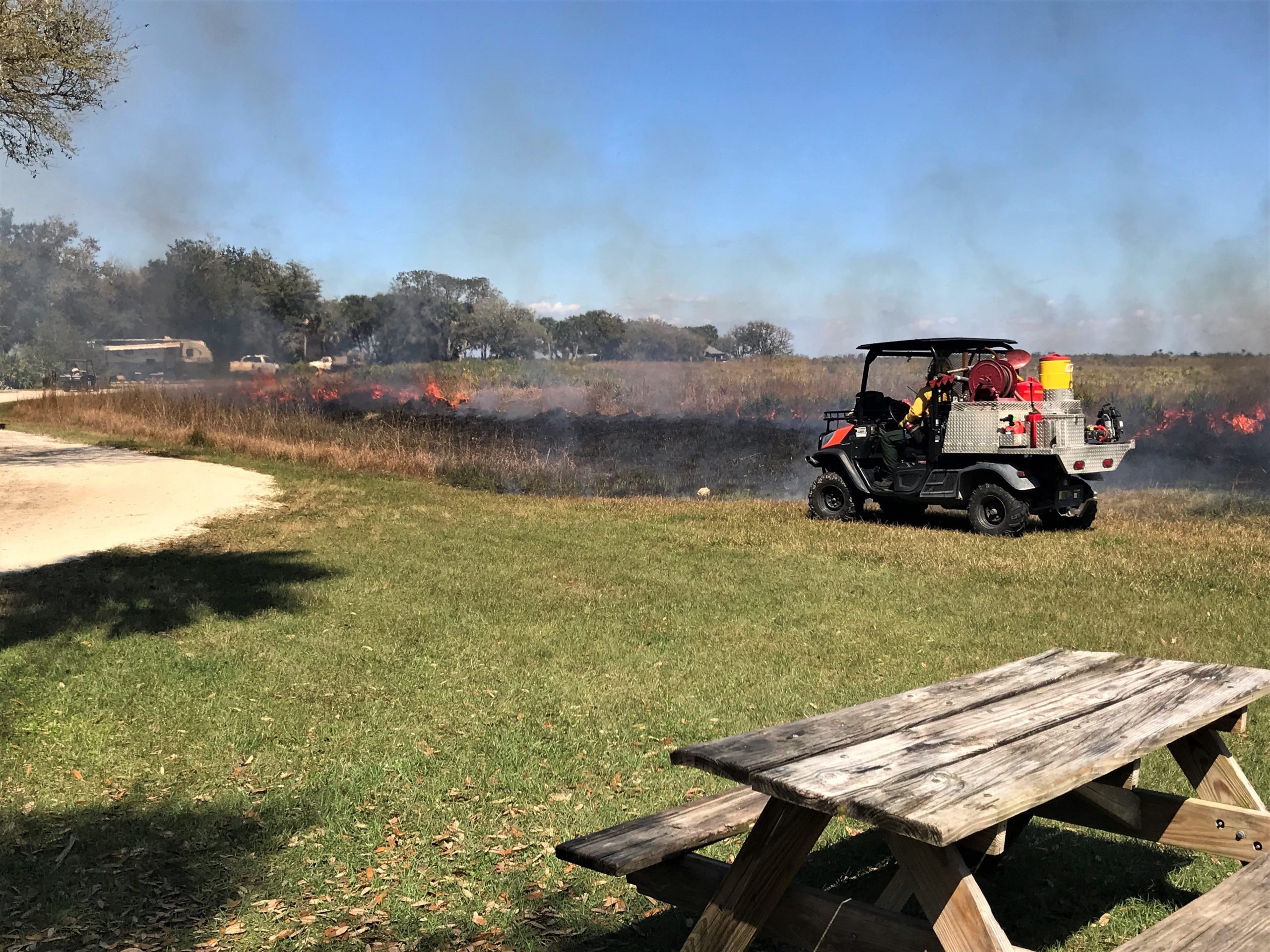
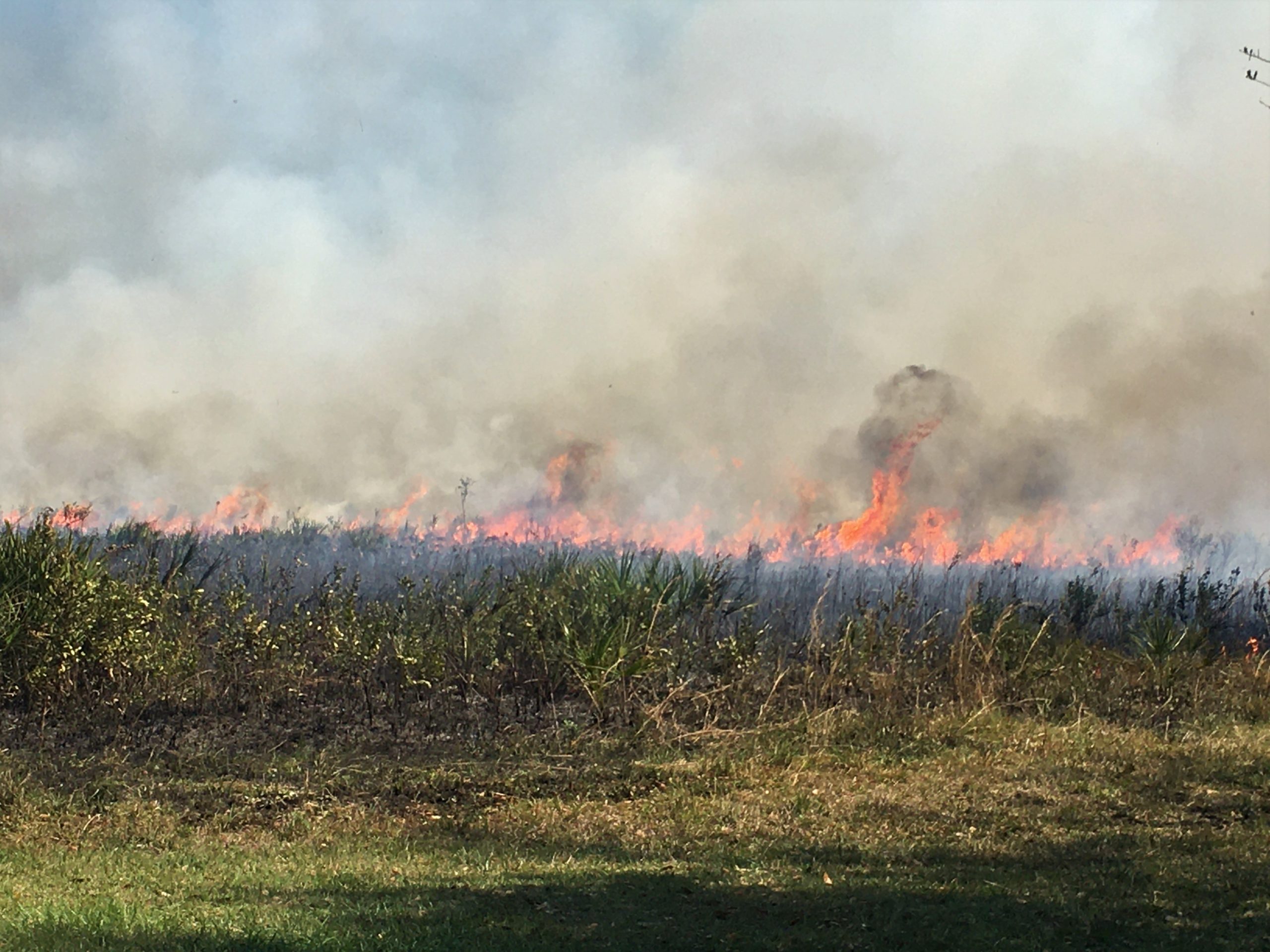
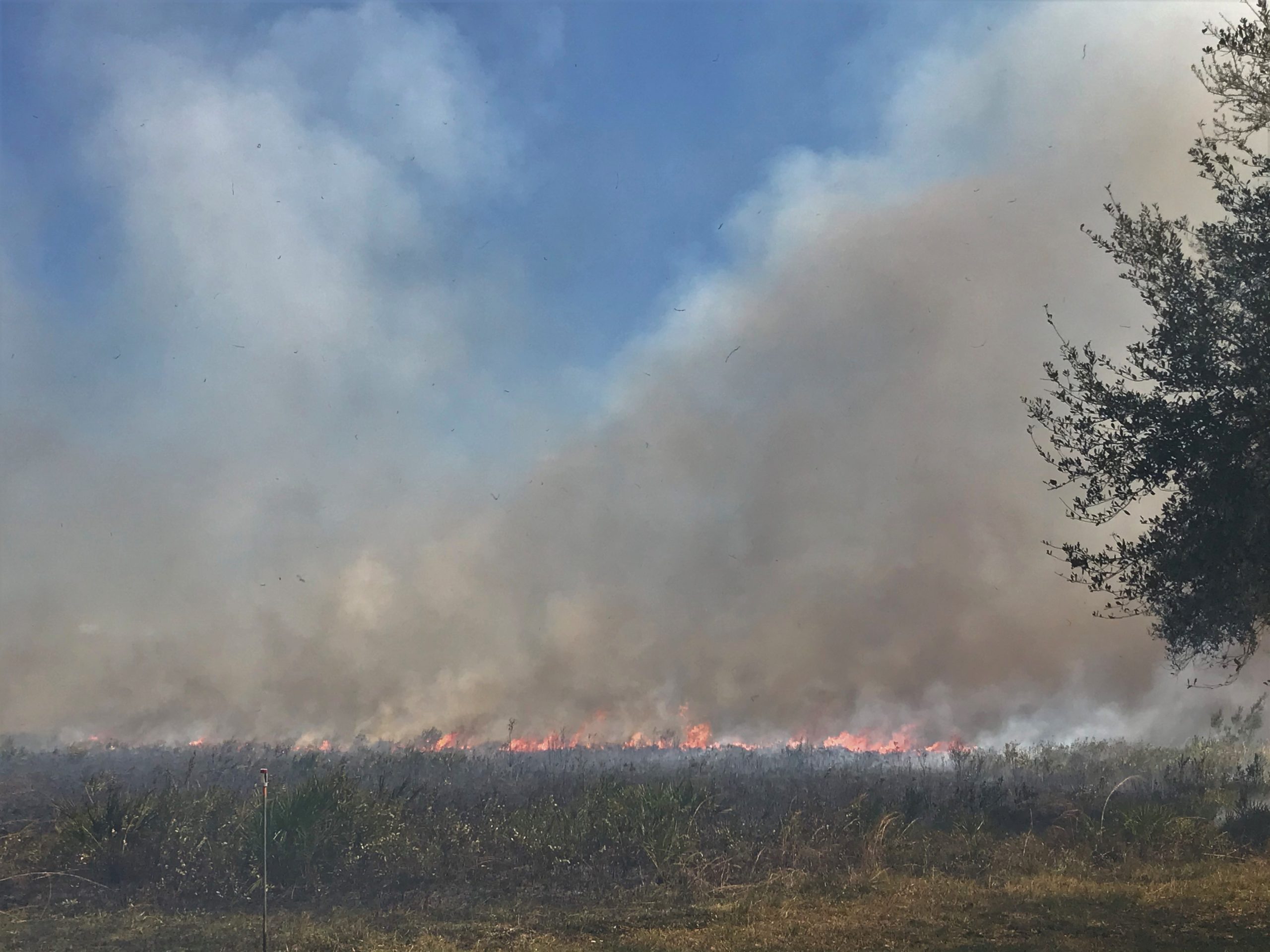
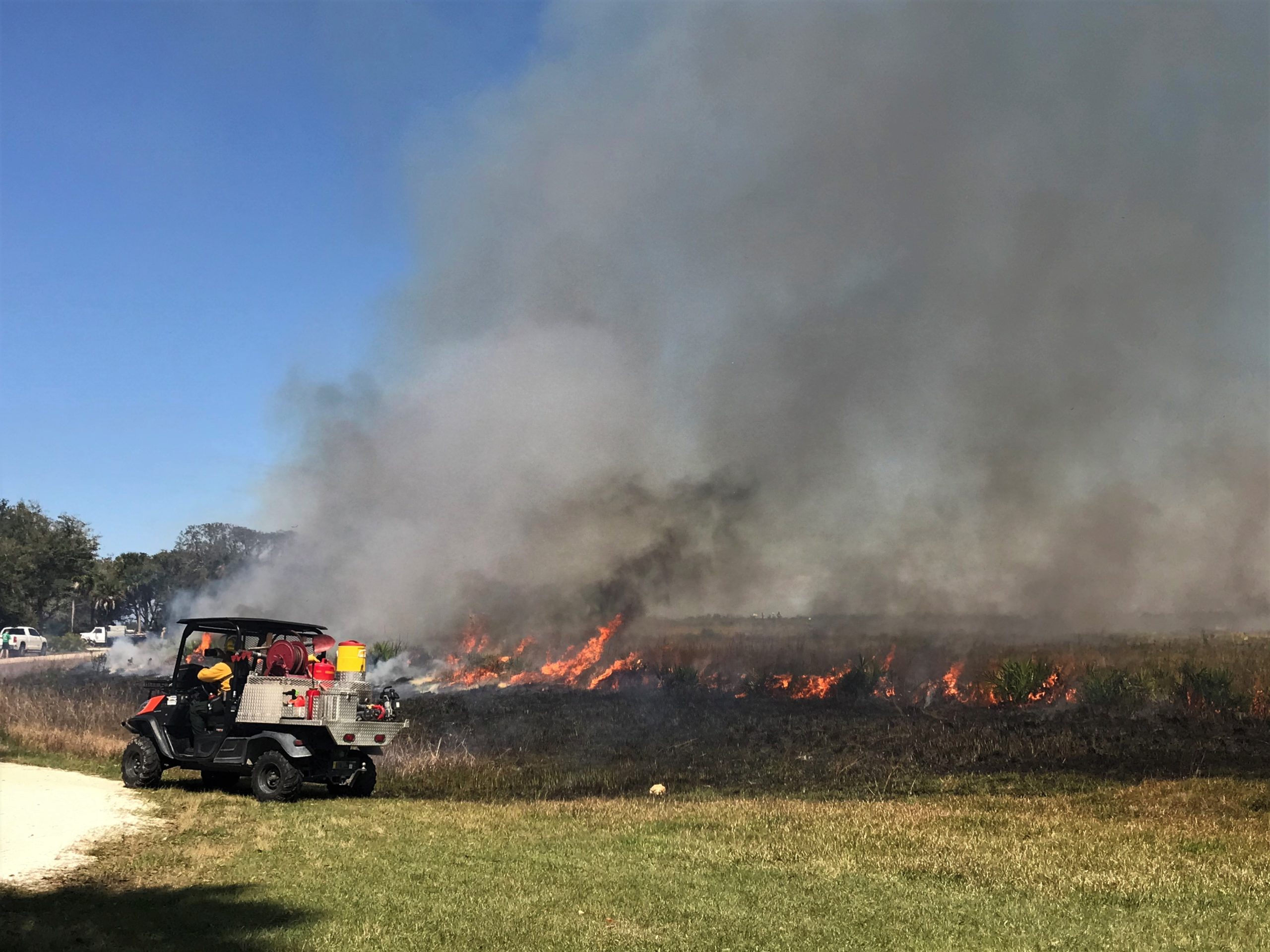
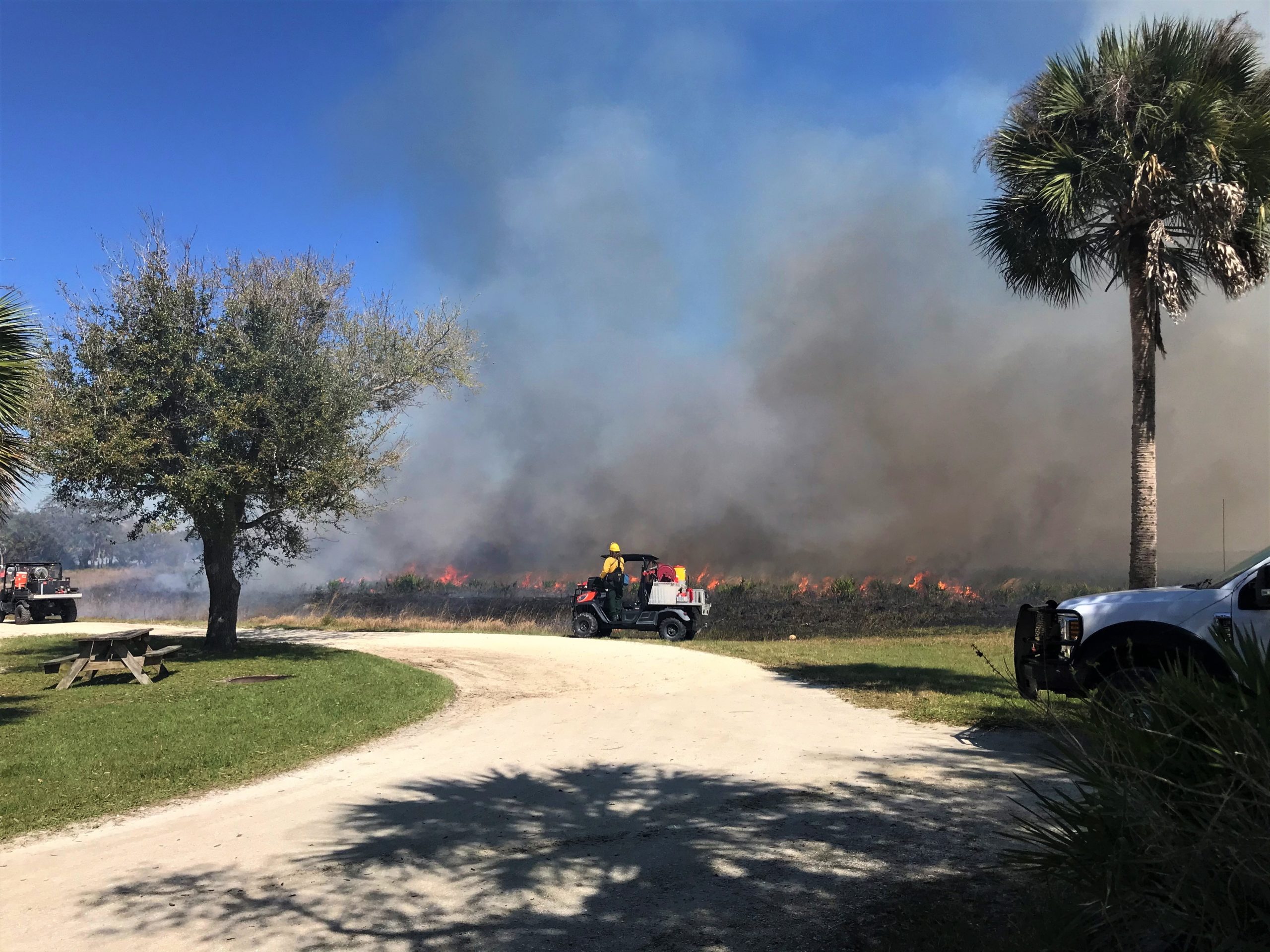
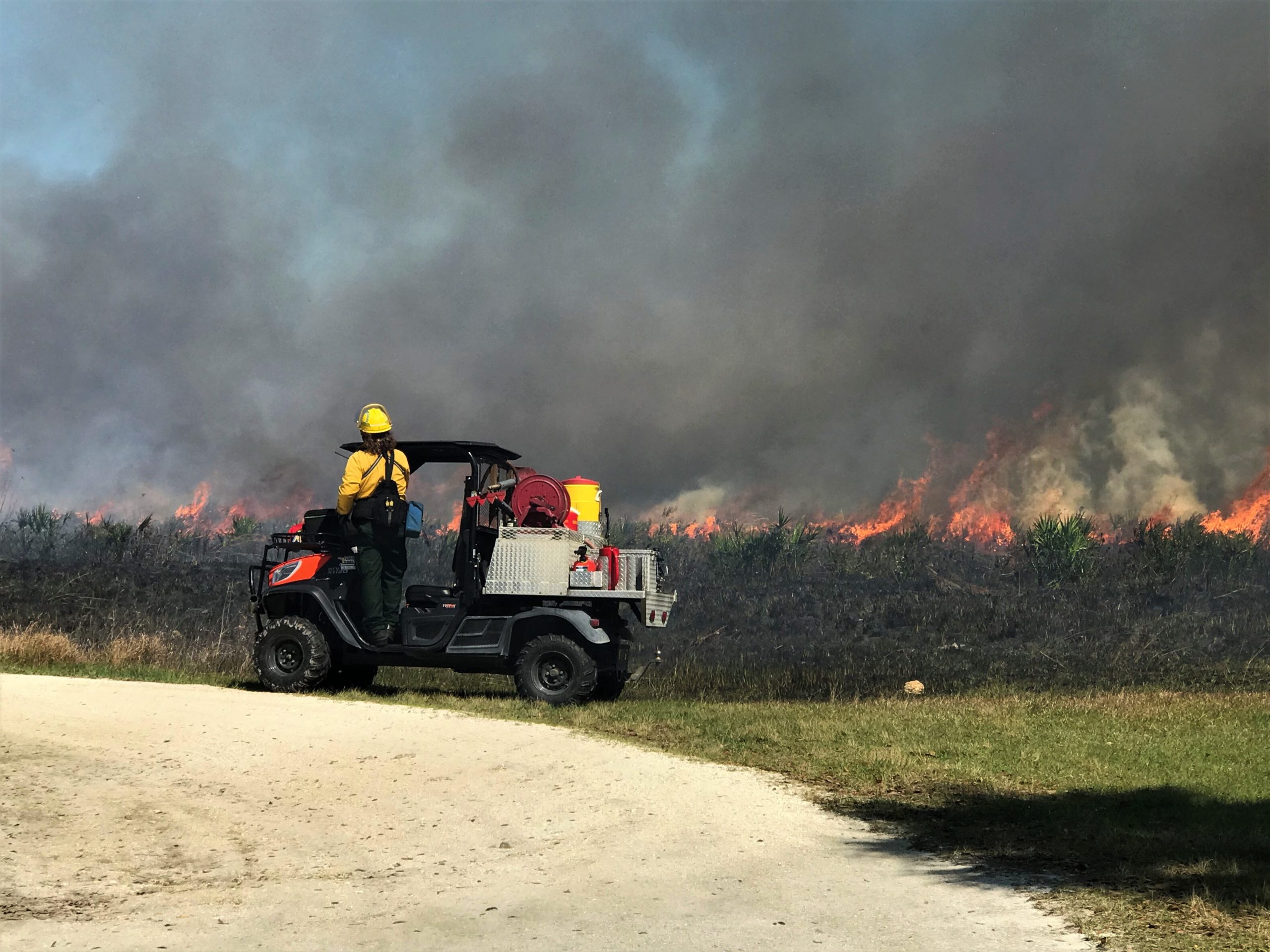
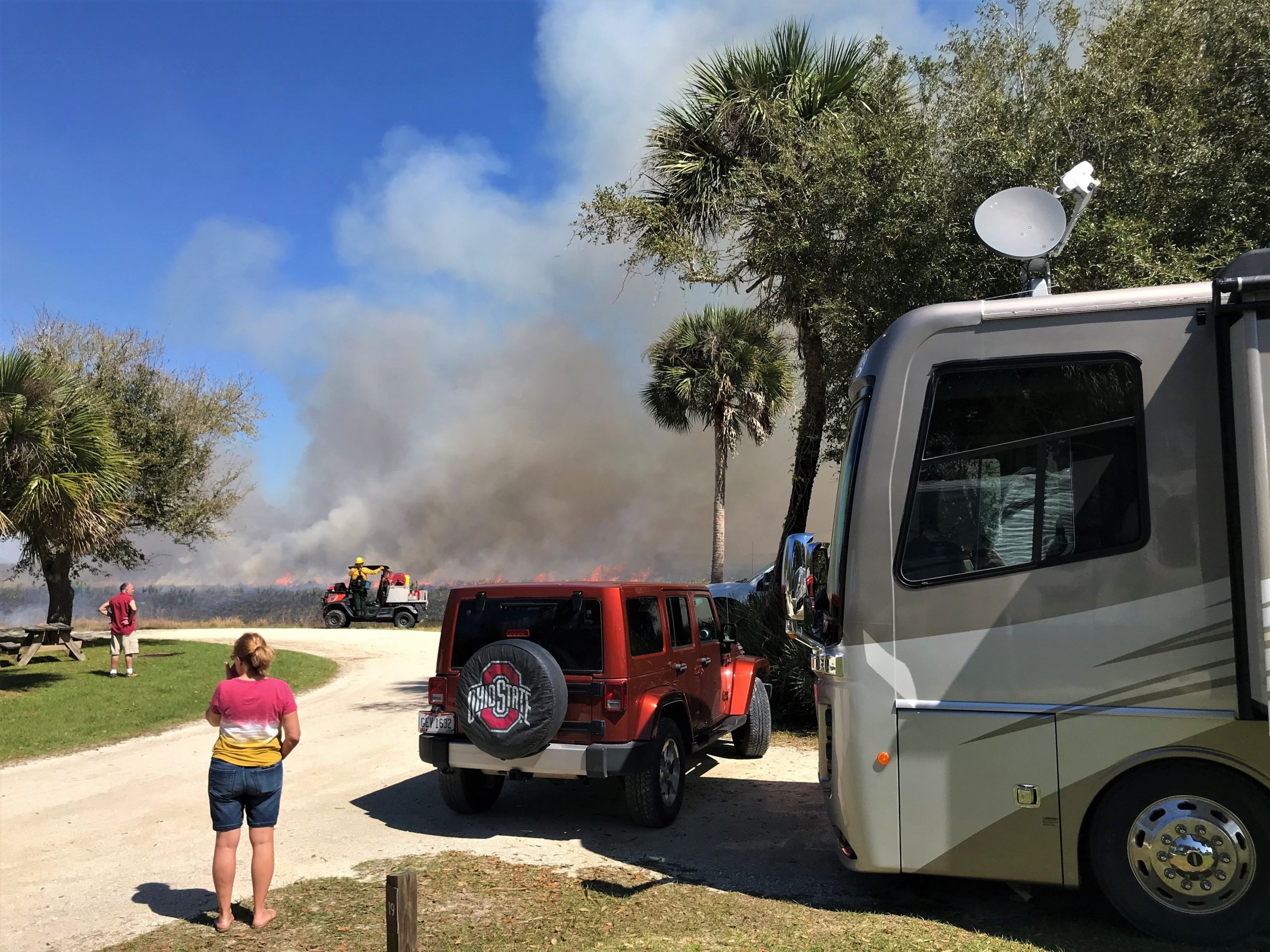
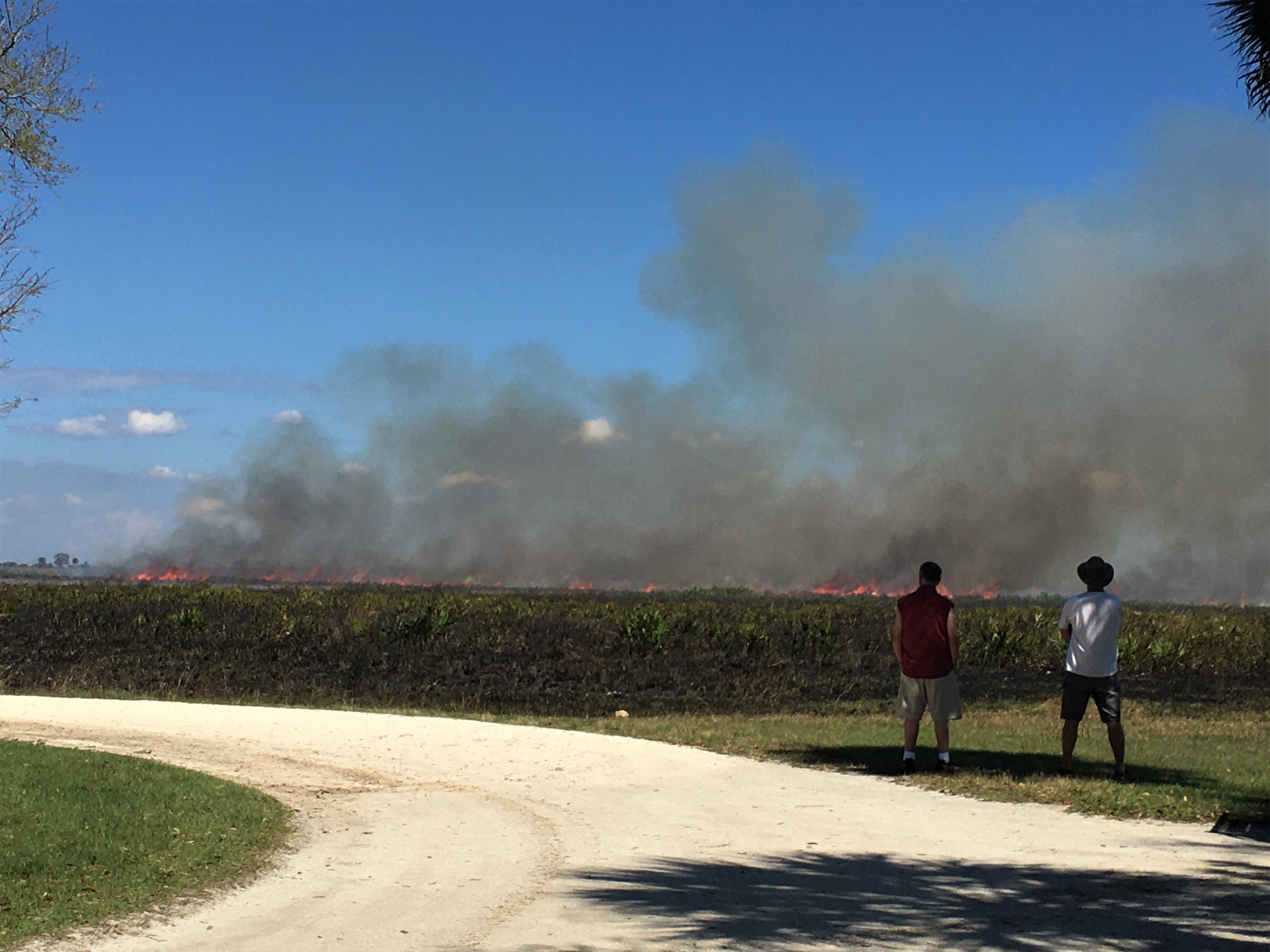
(that observation came from my brother, David when I texted him the picture. lol)
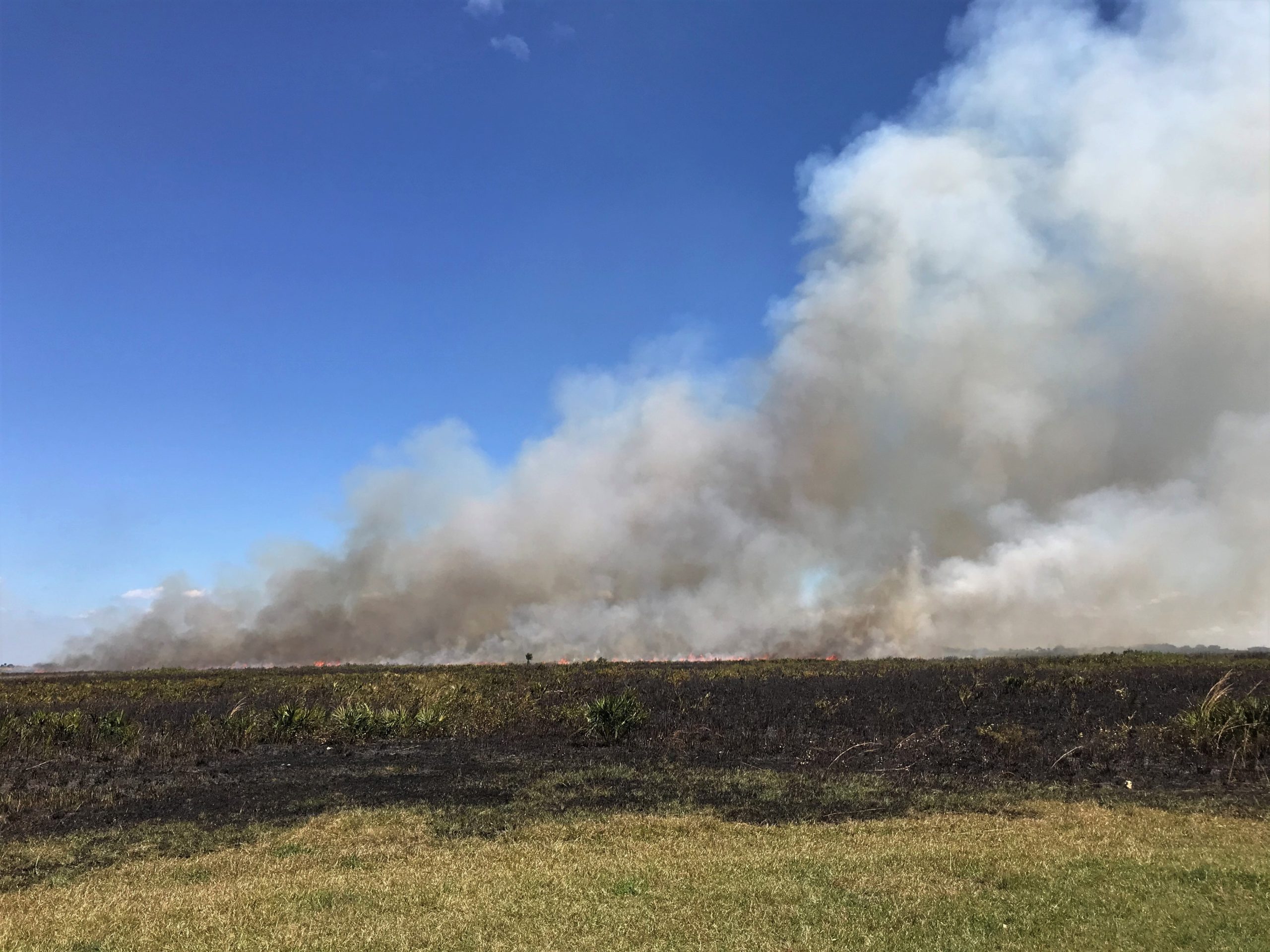
Time to move around to the area behind us. They actually asked the neighbor if they could hose off the back of his trailer. Yikes! We never did understand why they hosed his and not ours. It sure seemed like ours was closer, but I guess the flames were hotter at his place.
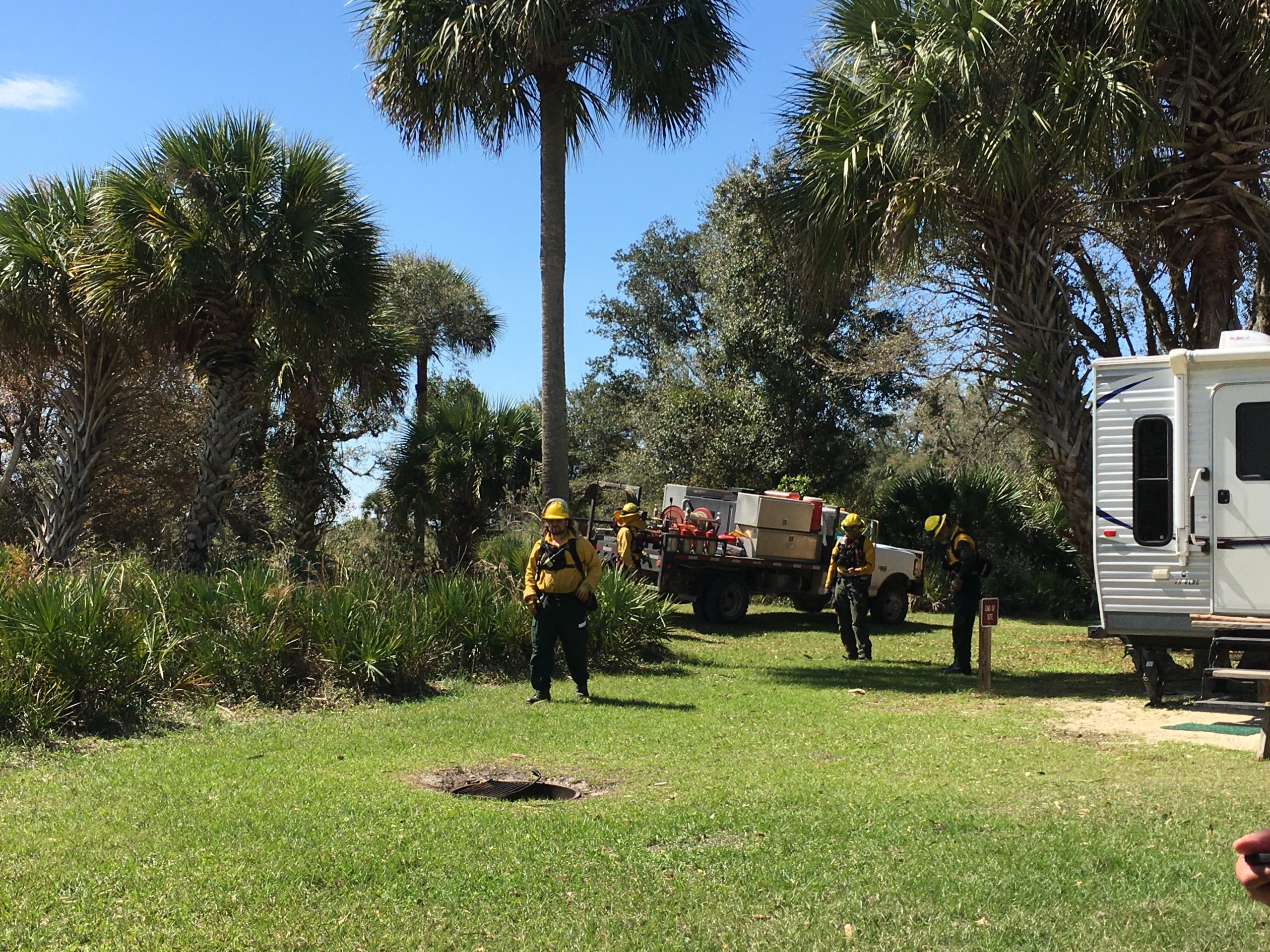
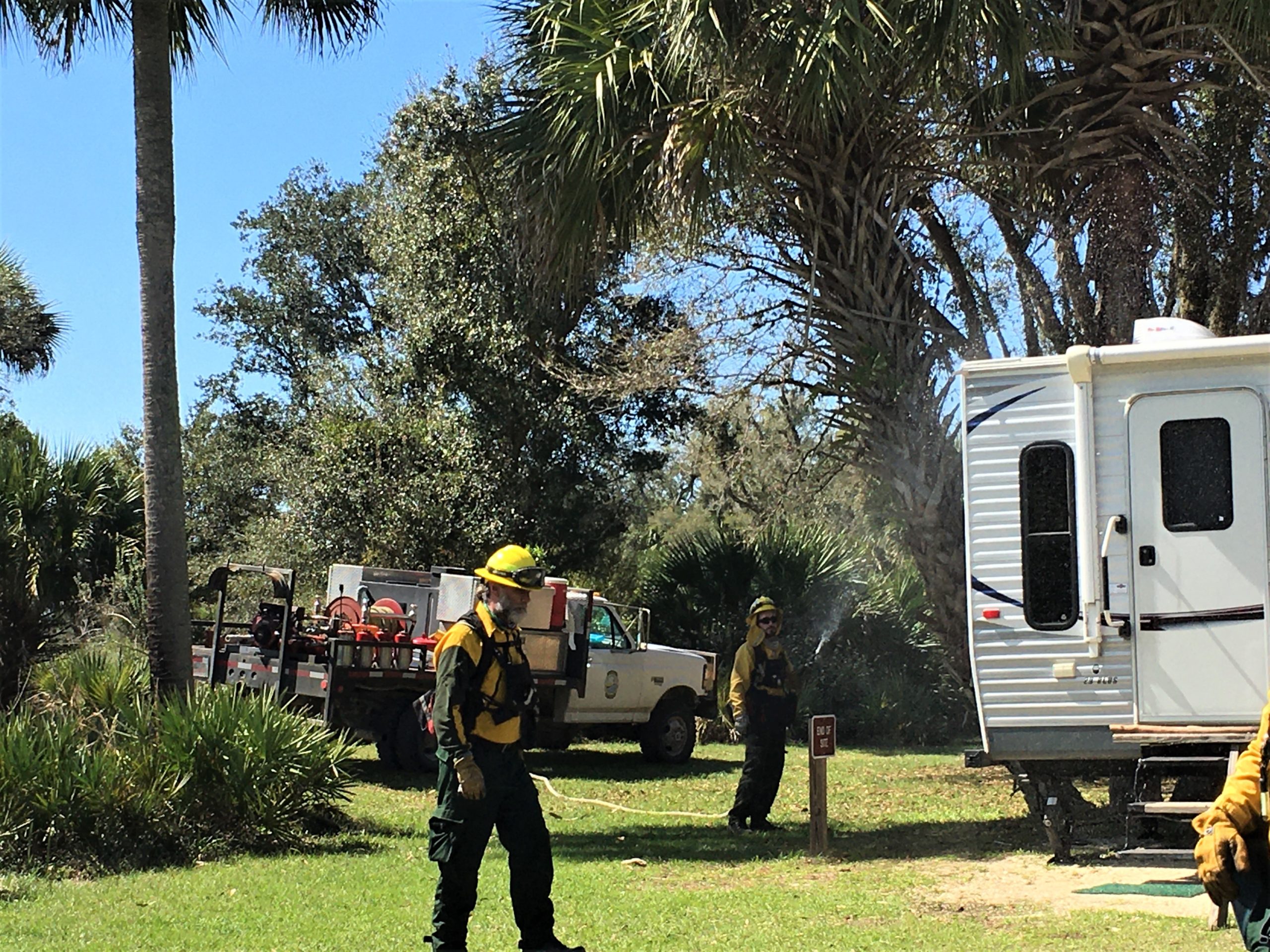
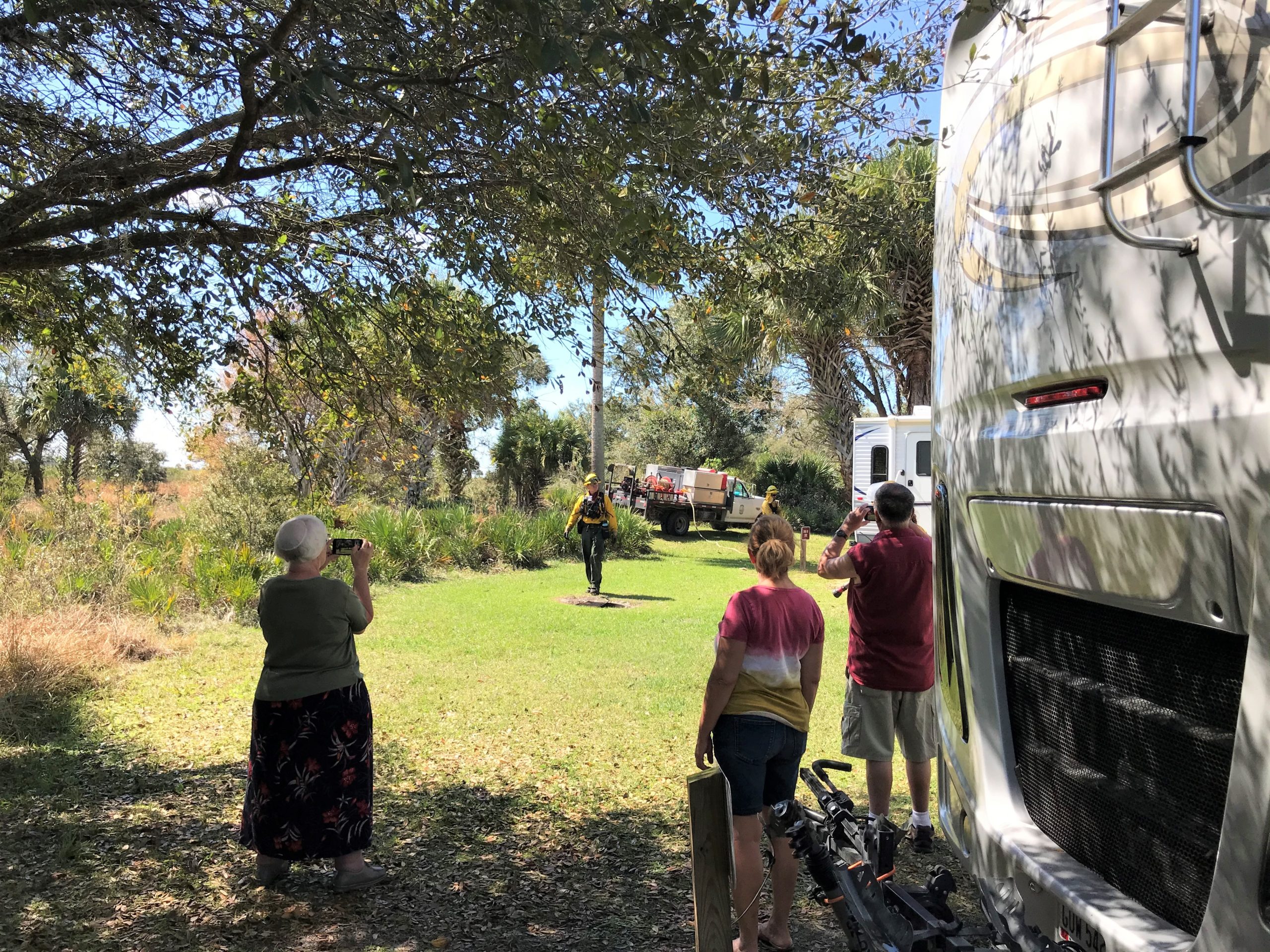
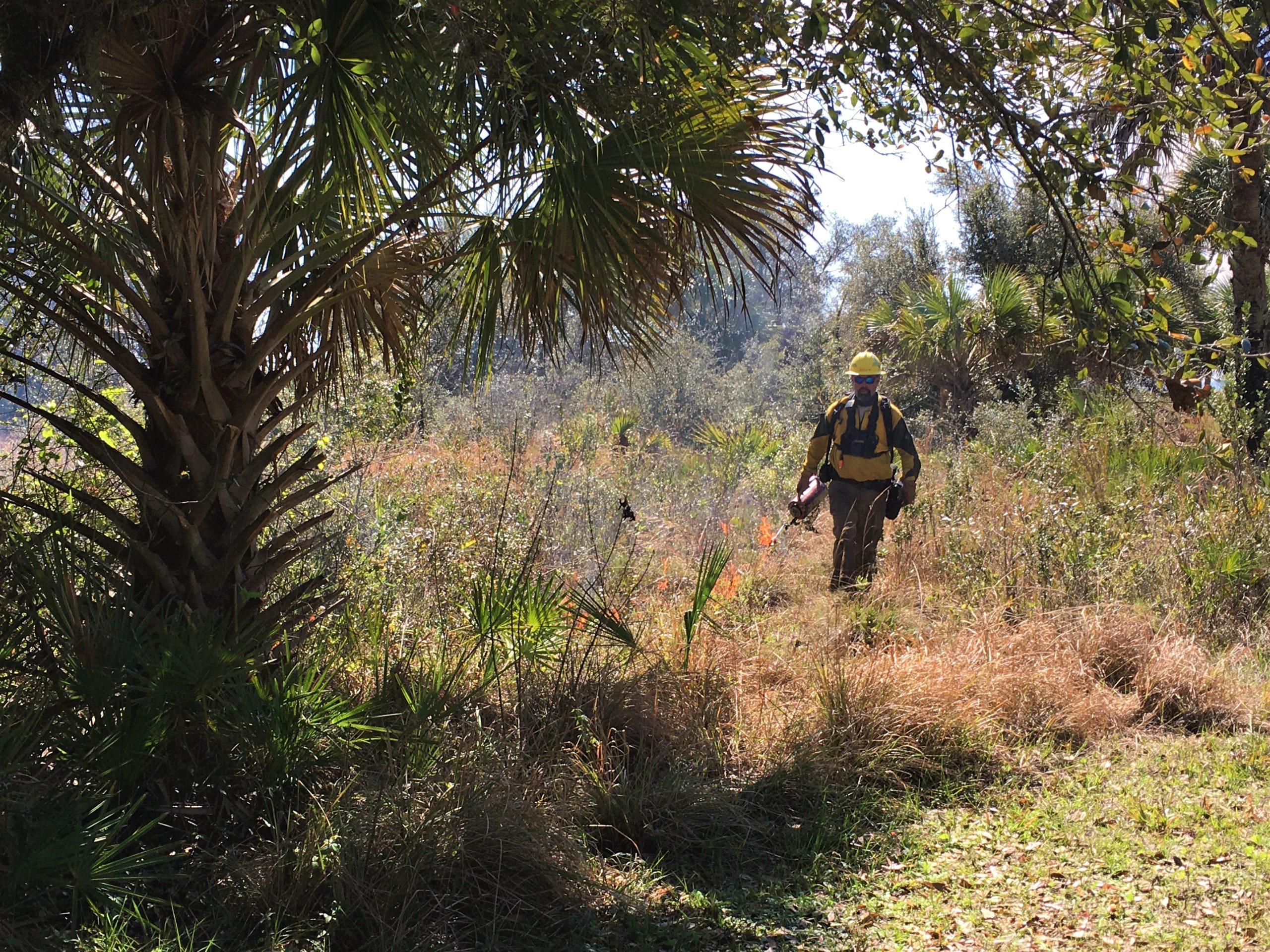
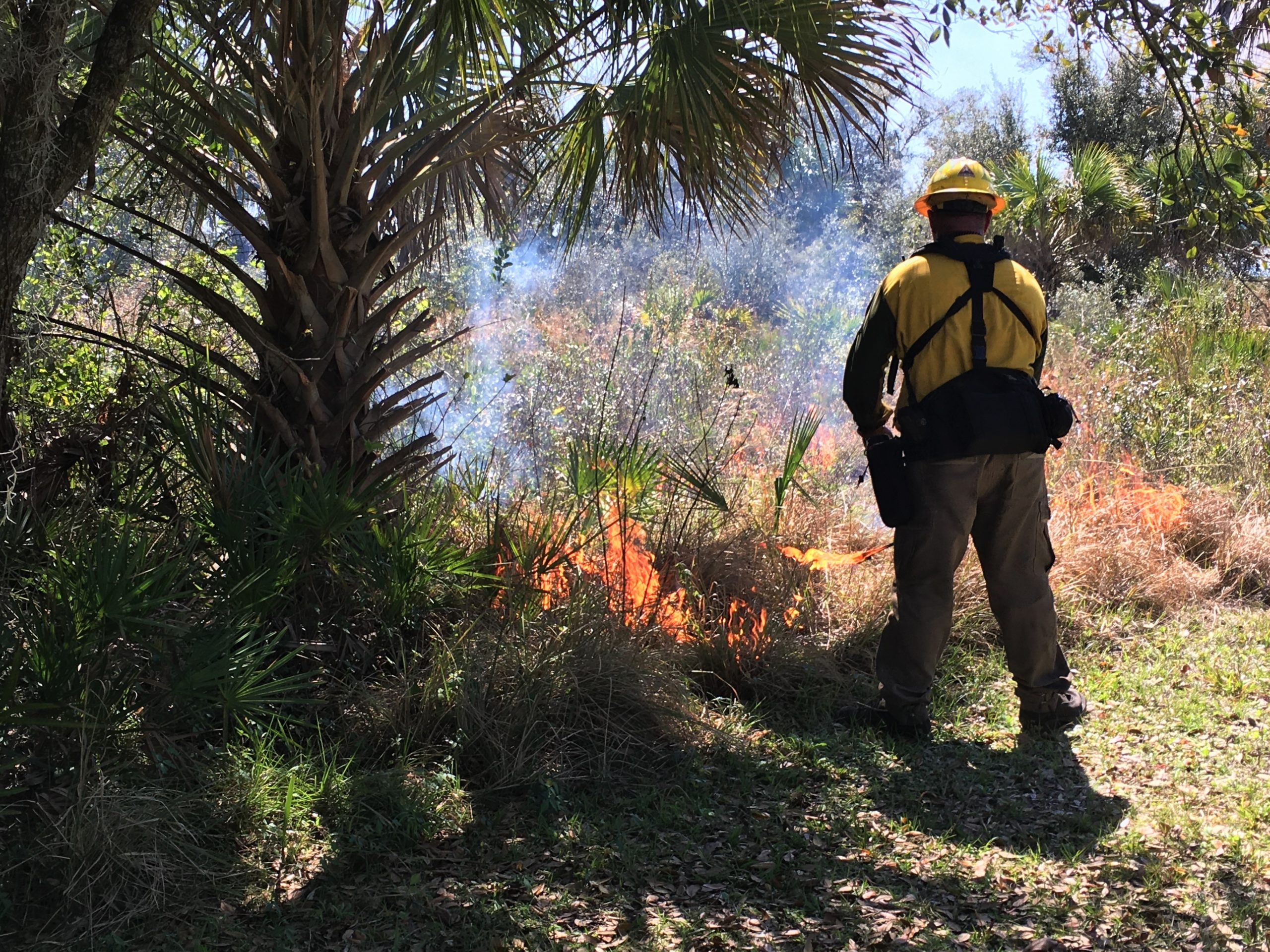
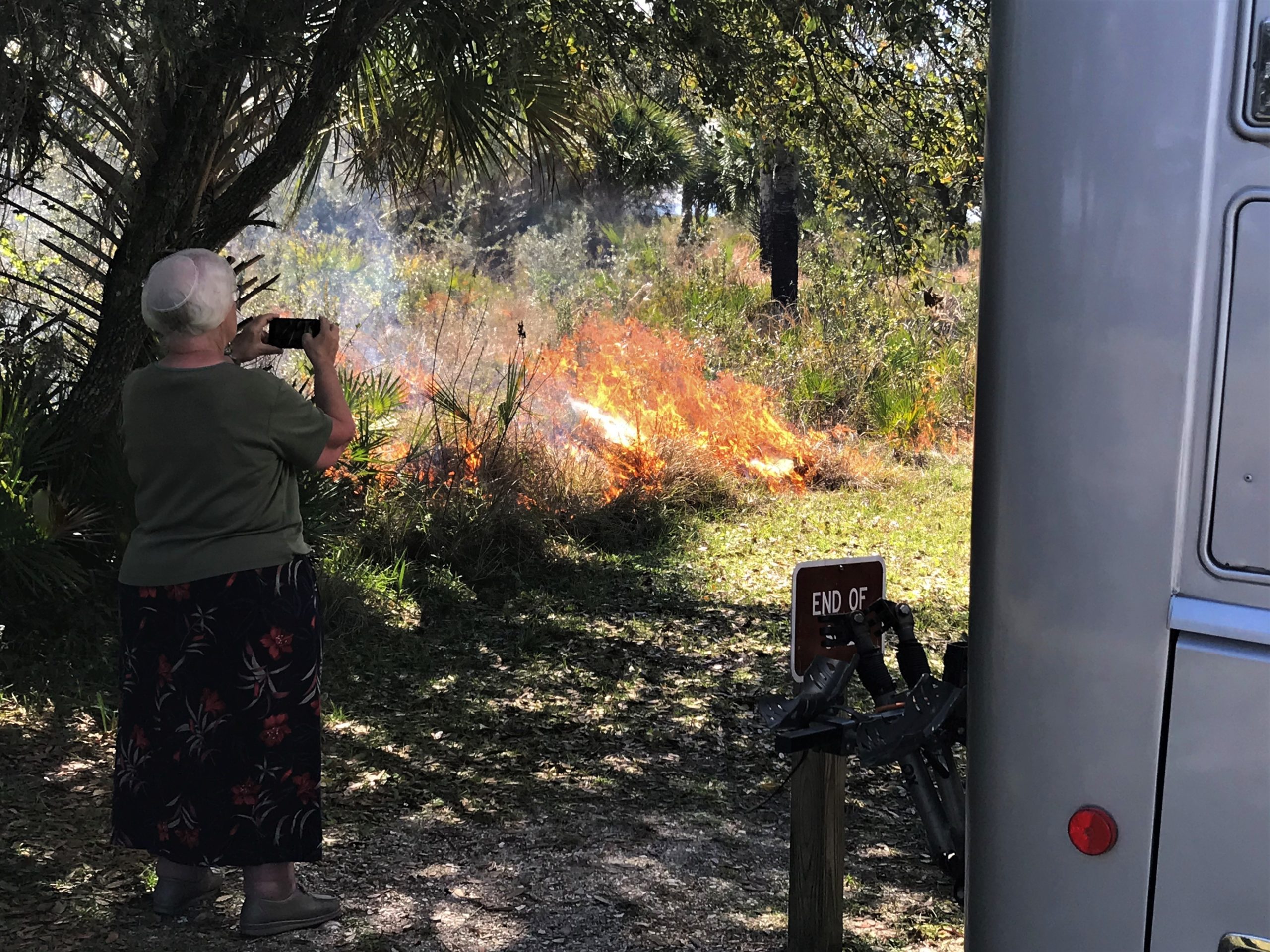
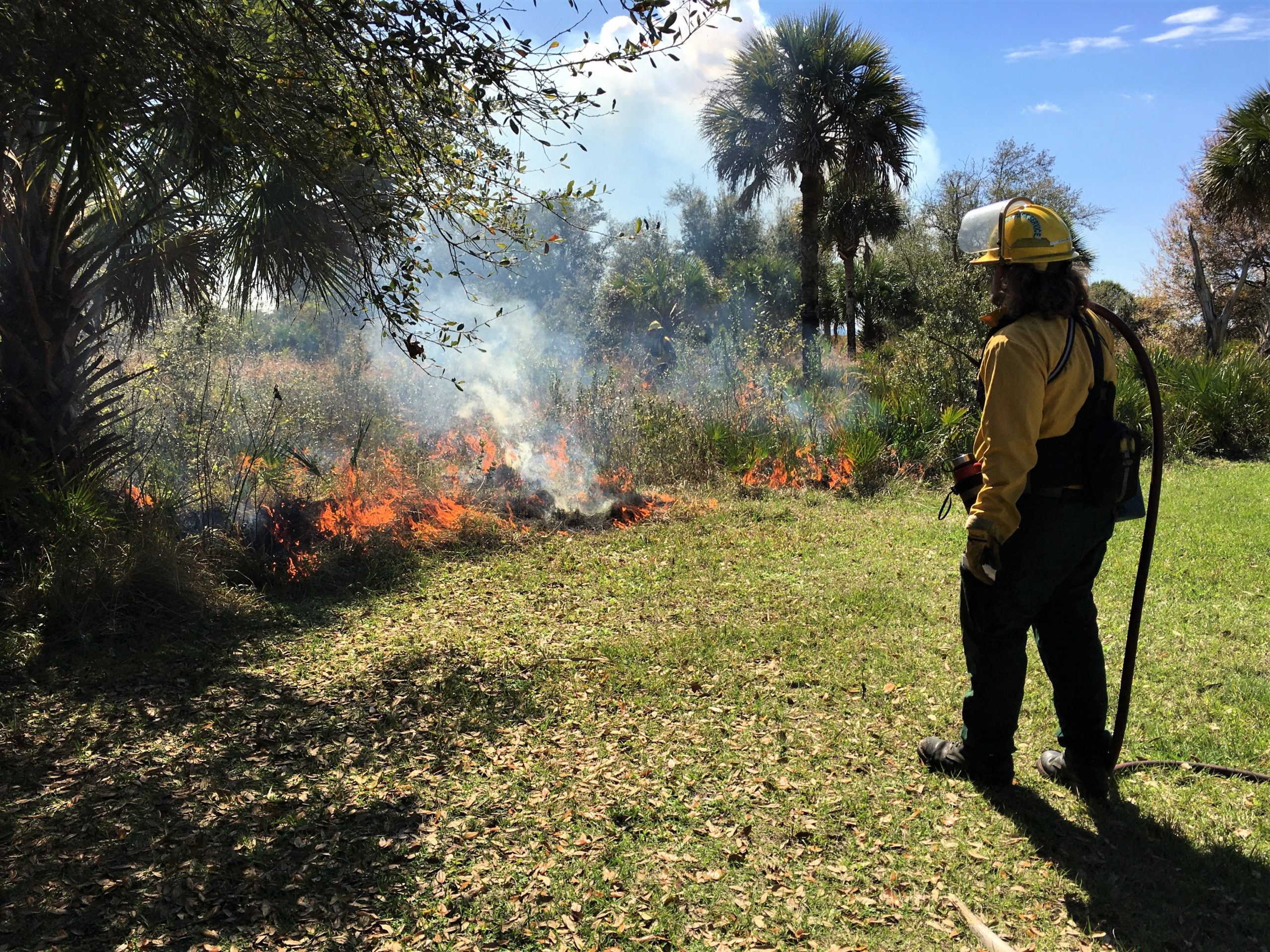
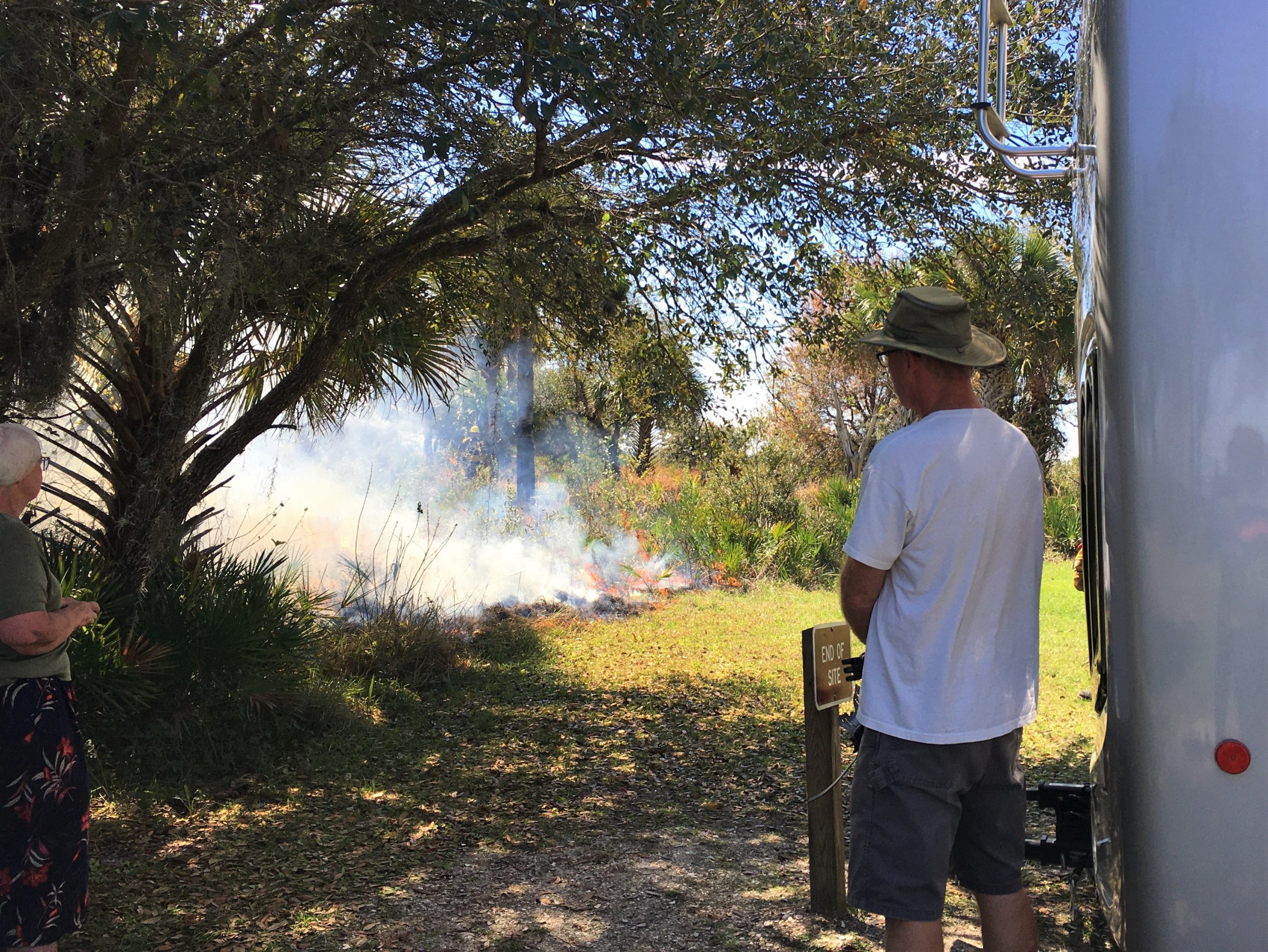
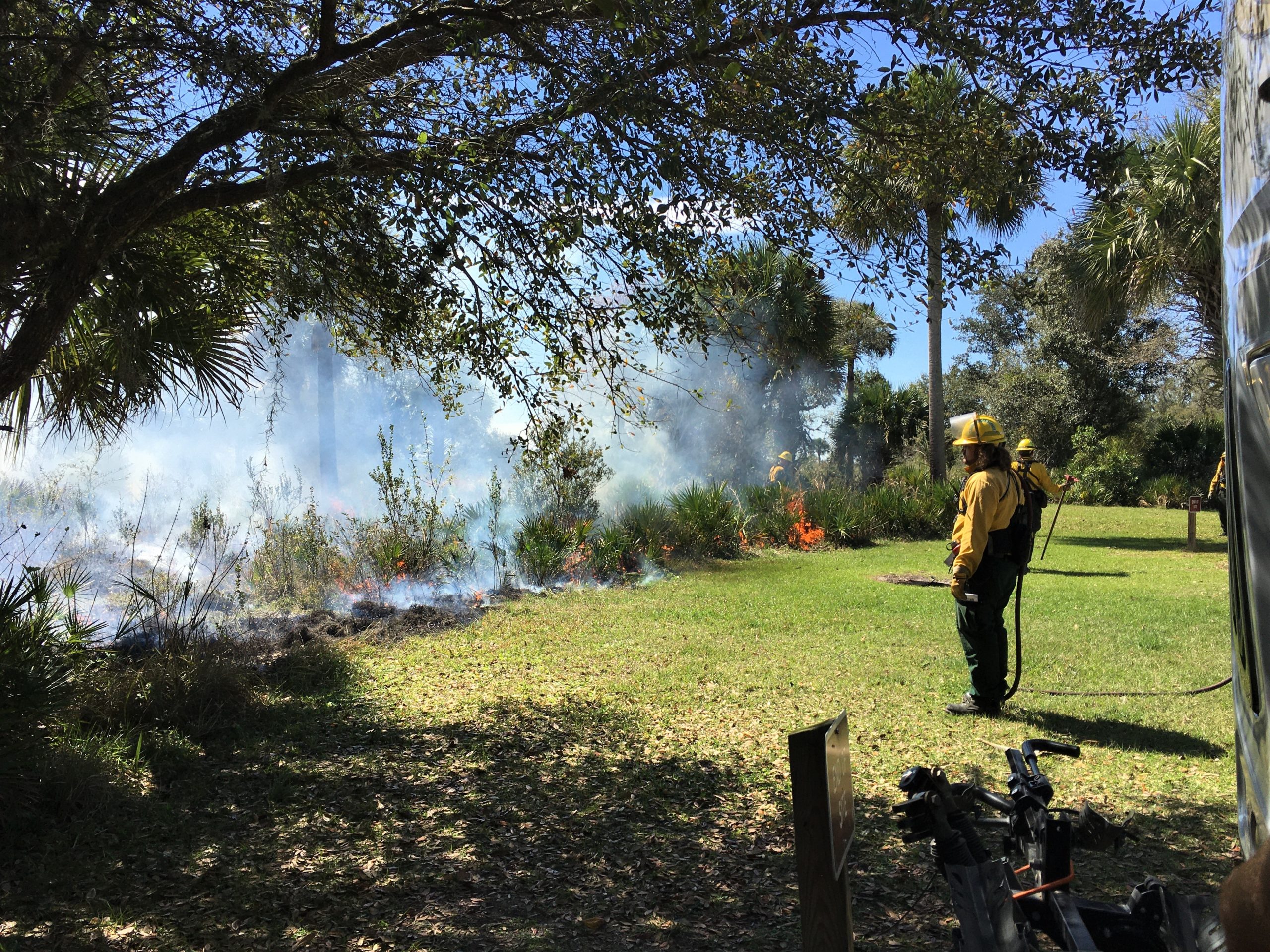
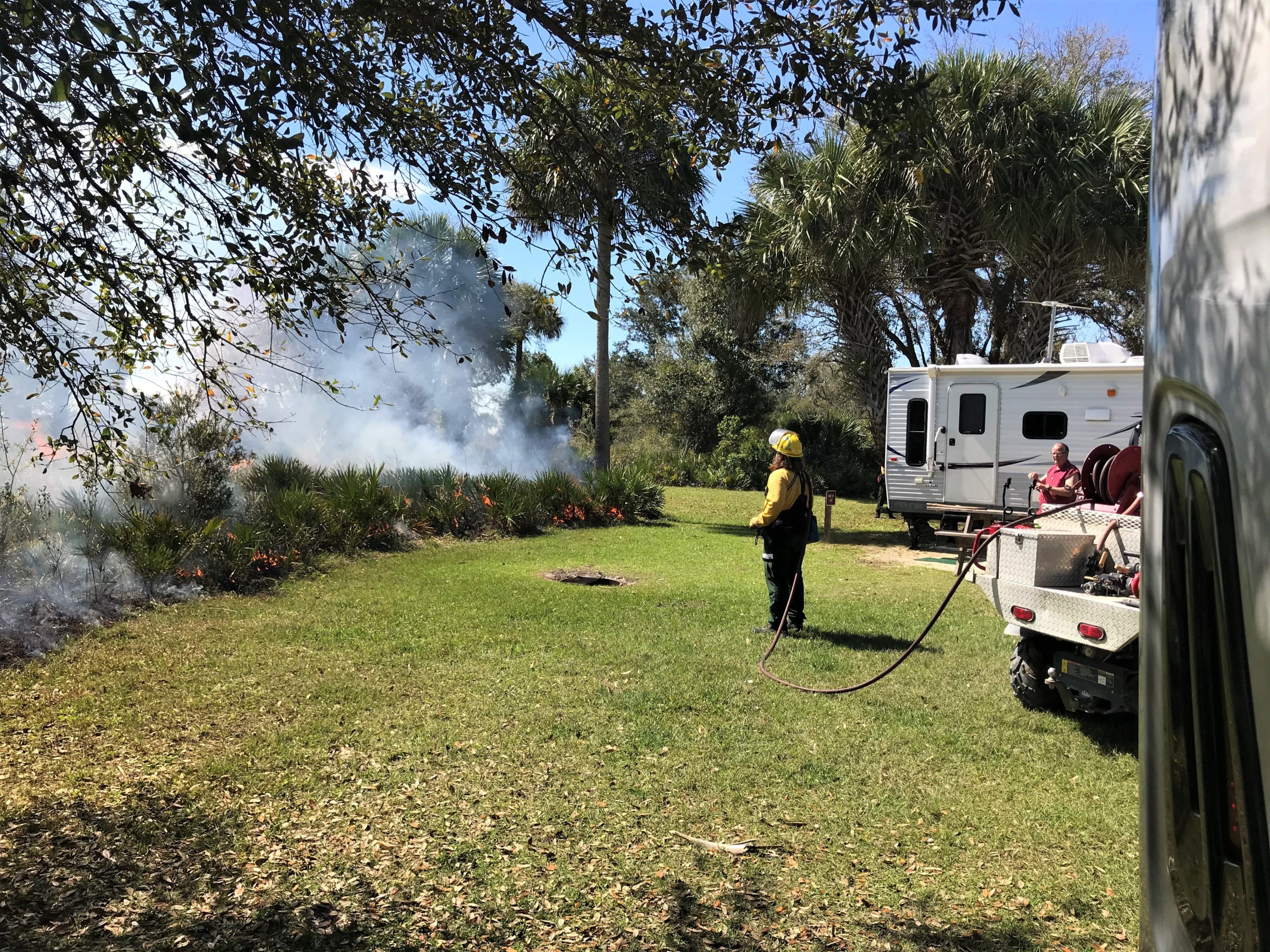
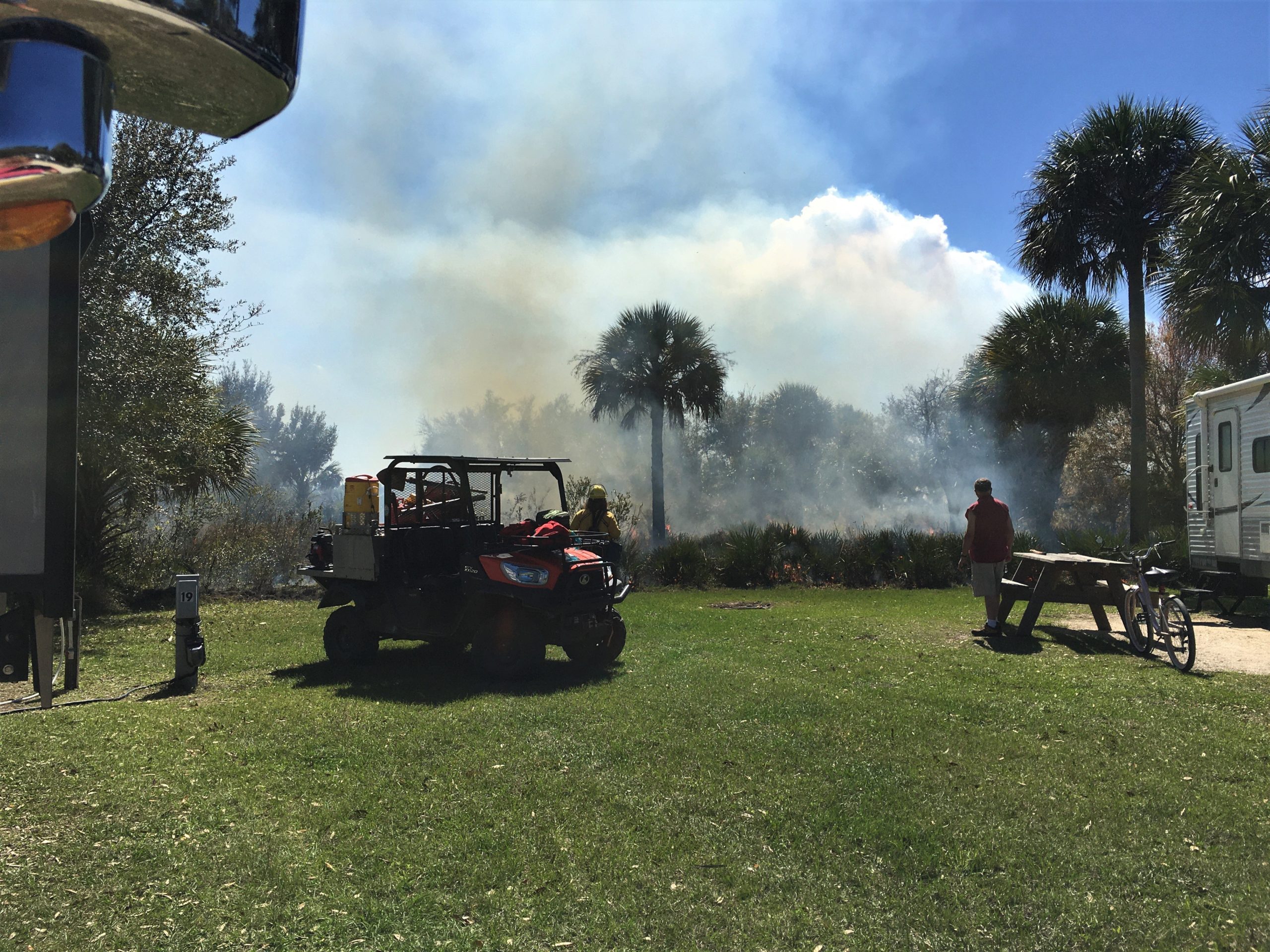
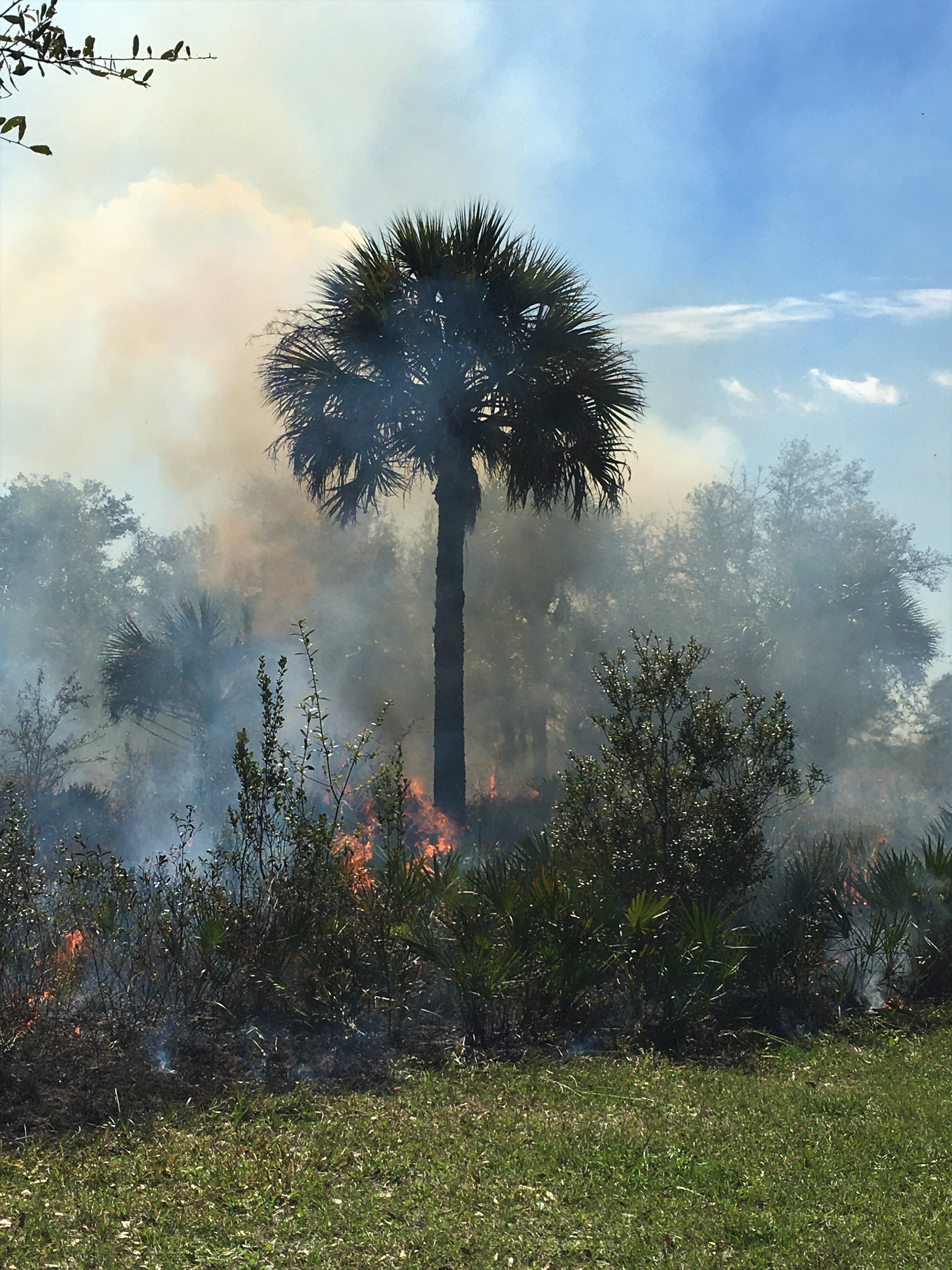
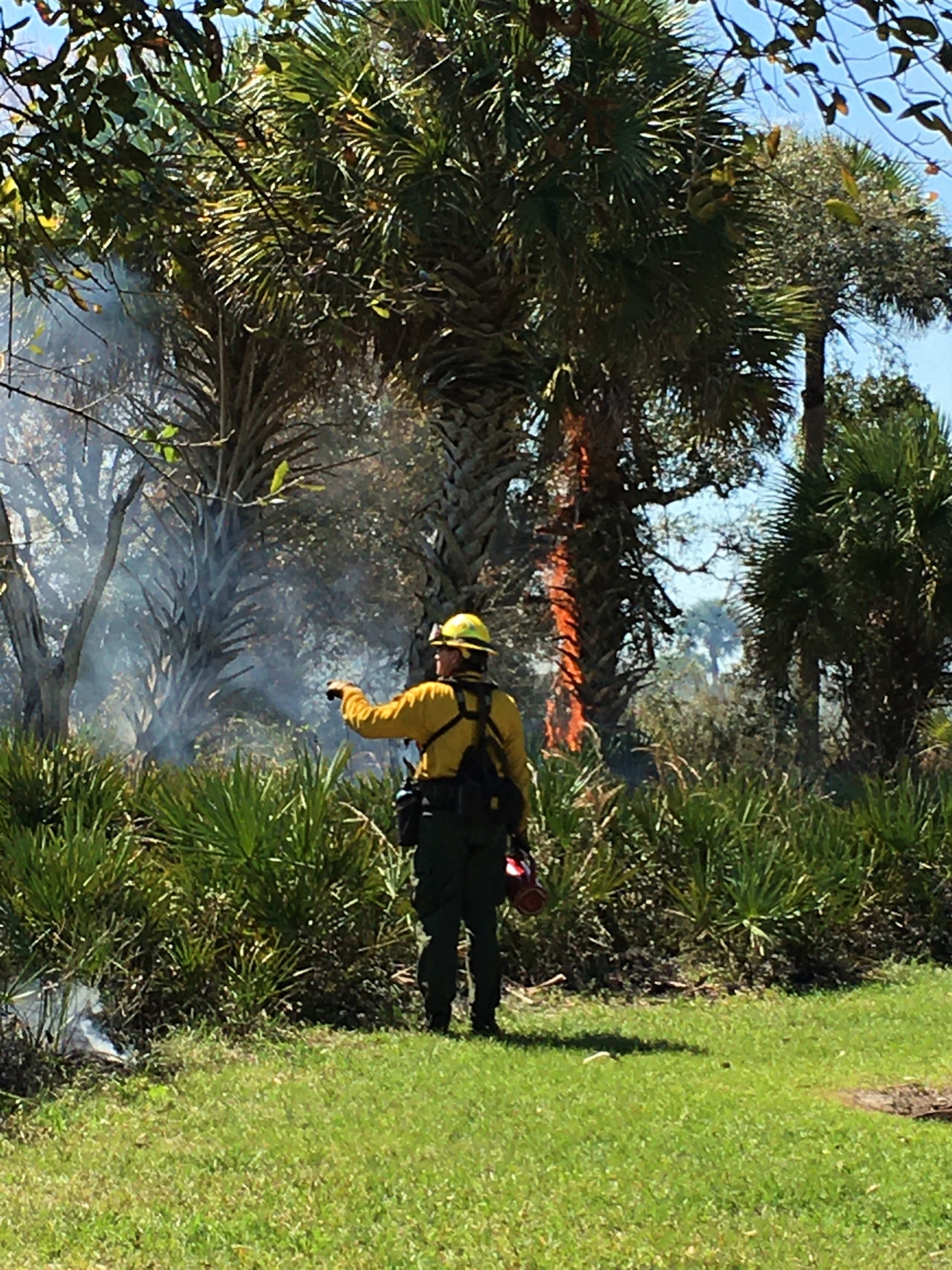
We wondered if that was what they thought might pose a problem.
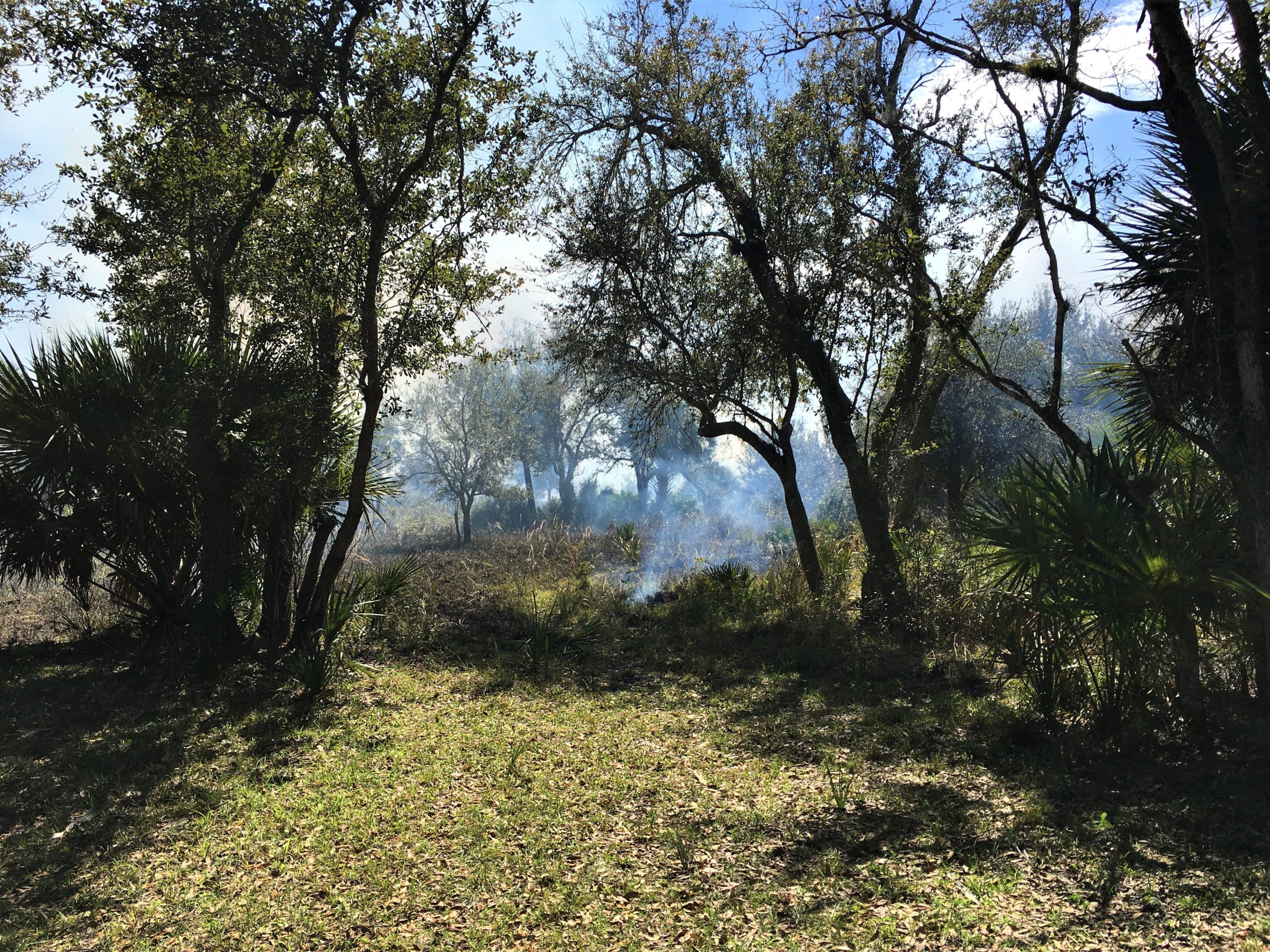
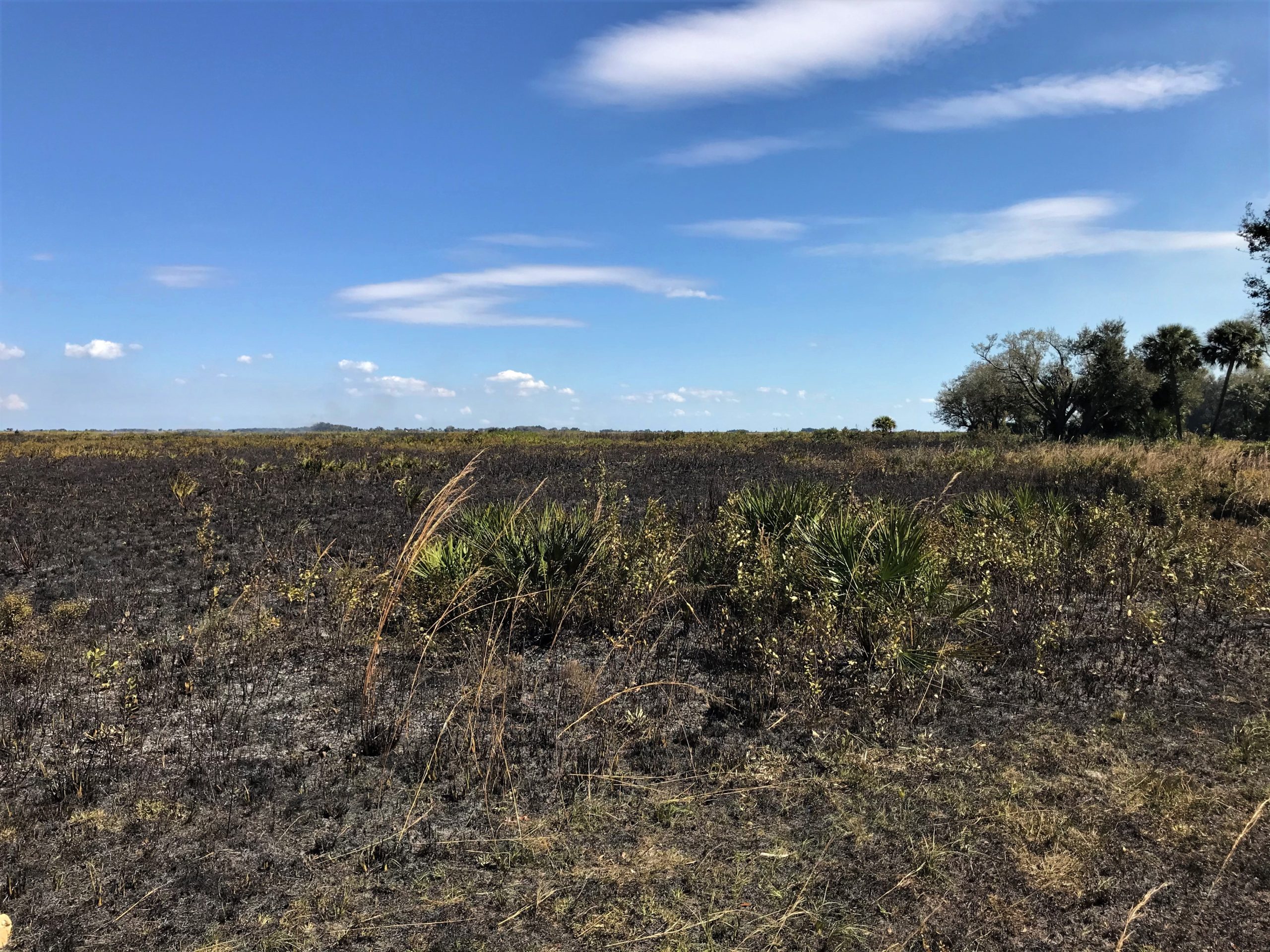
This is what’s left of the area beside us.
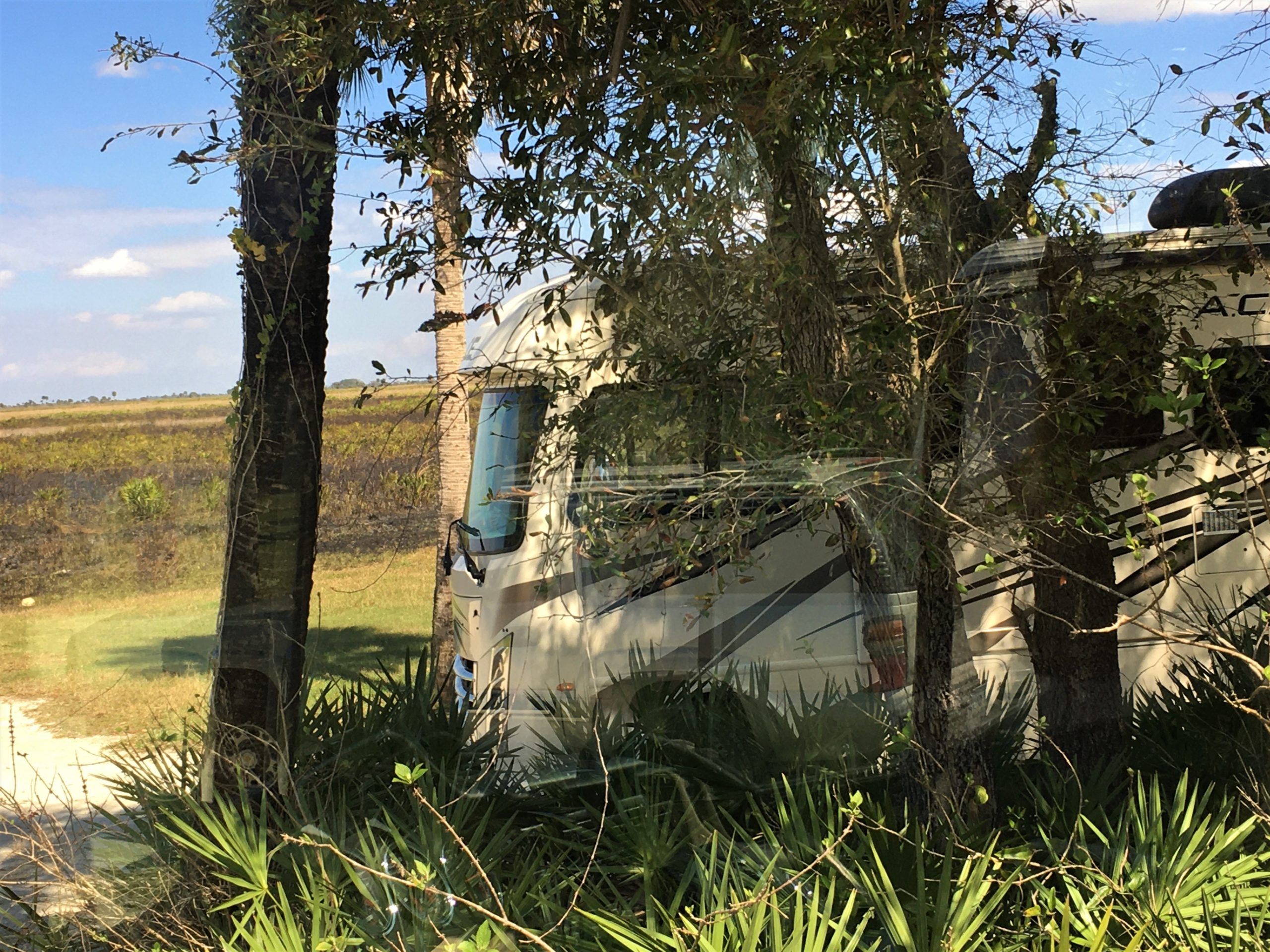
They missed all the excitement!
They had no idea what’d happened.
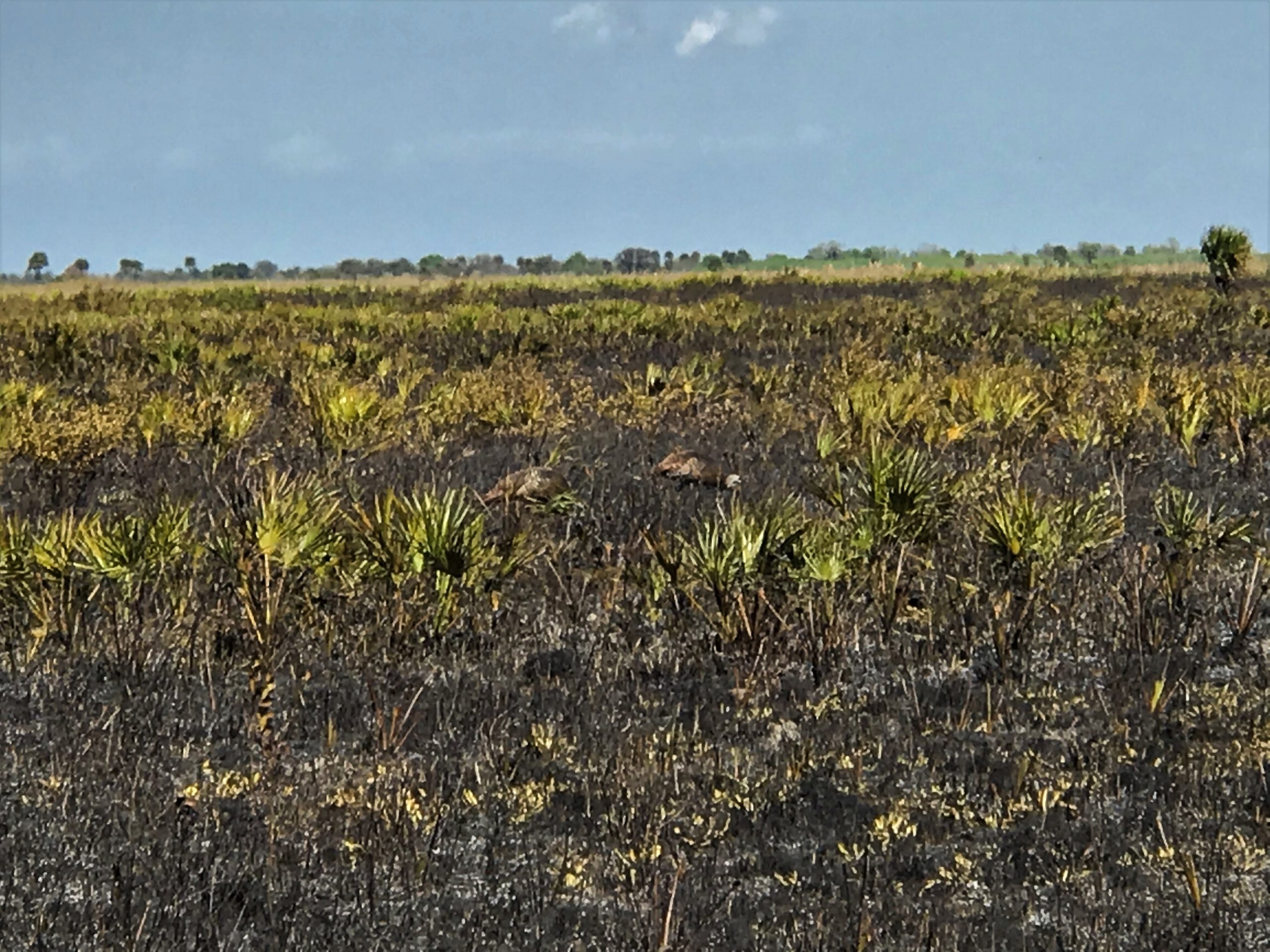
They seemed to be eating something. : )
Can you spot them?
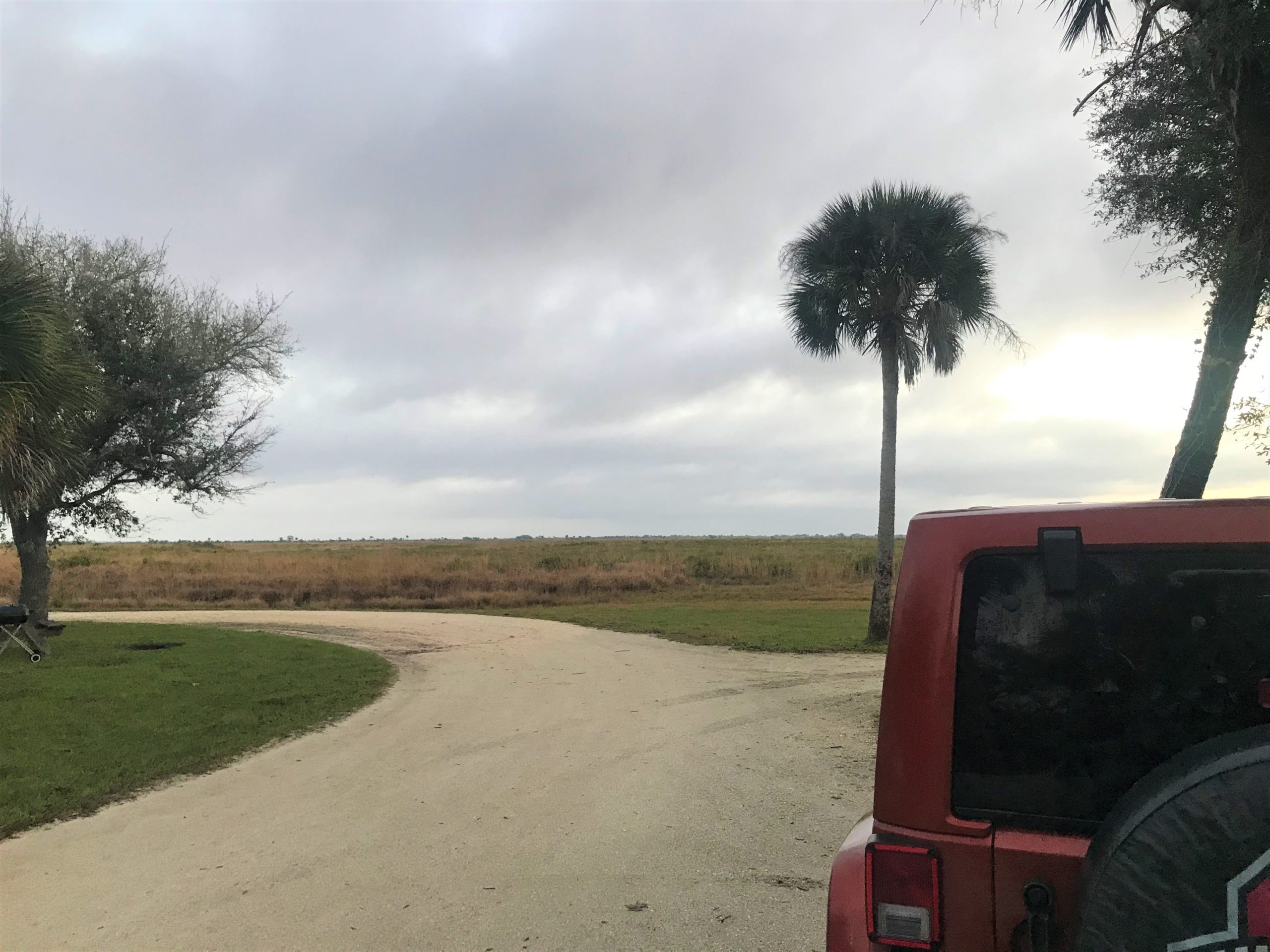
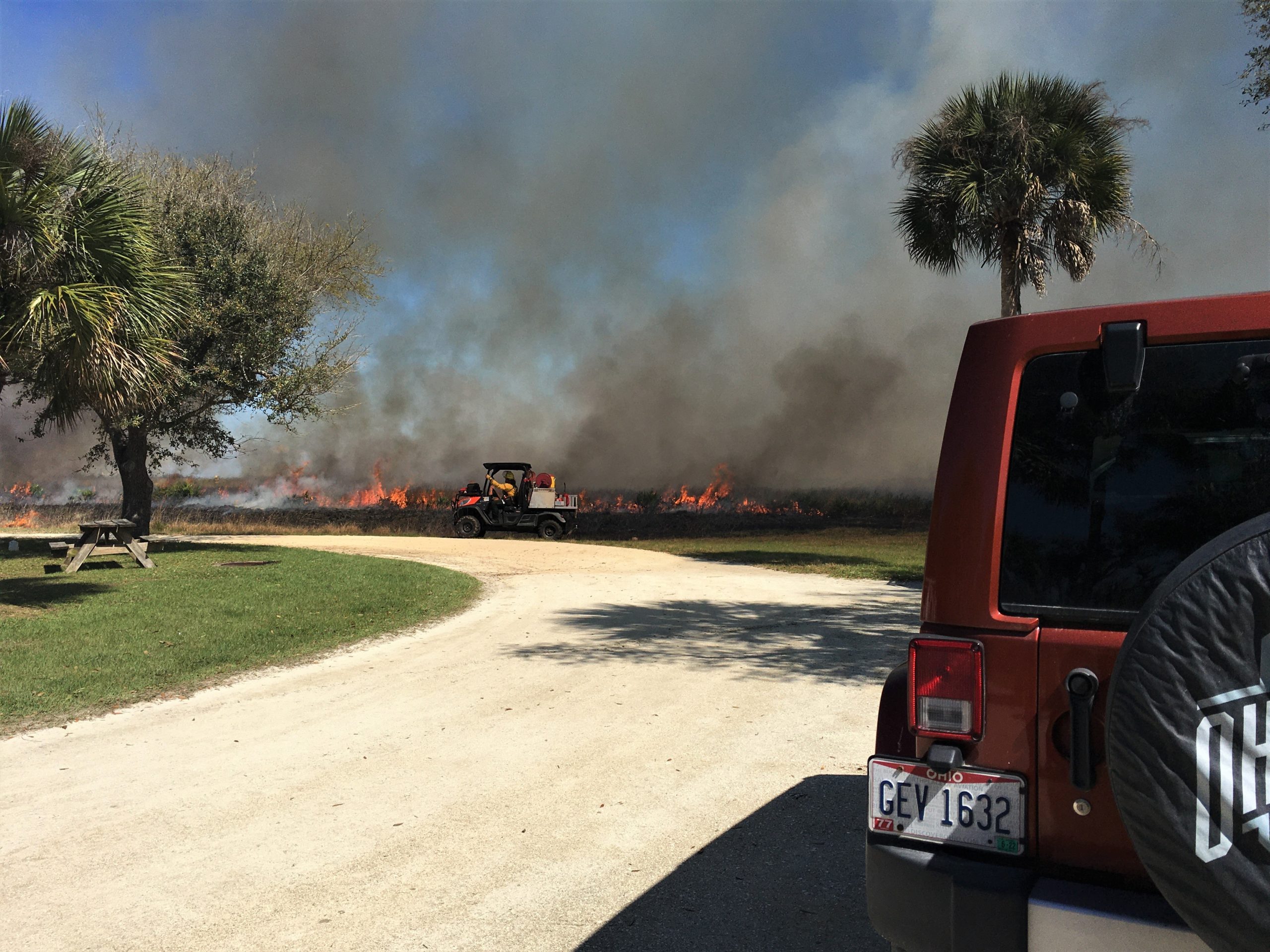
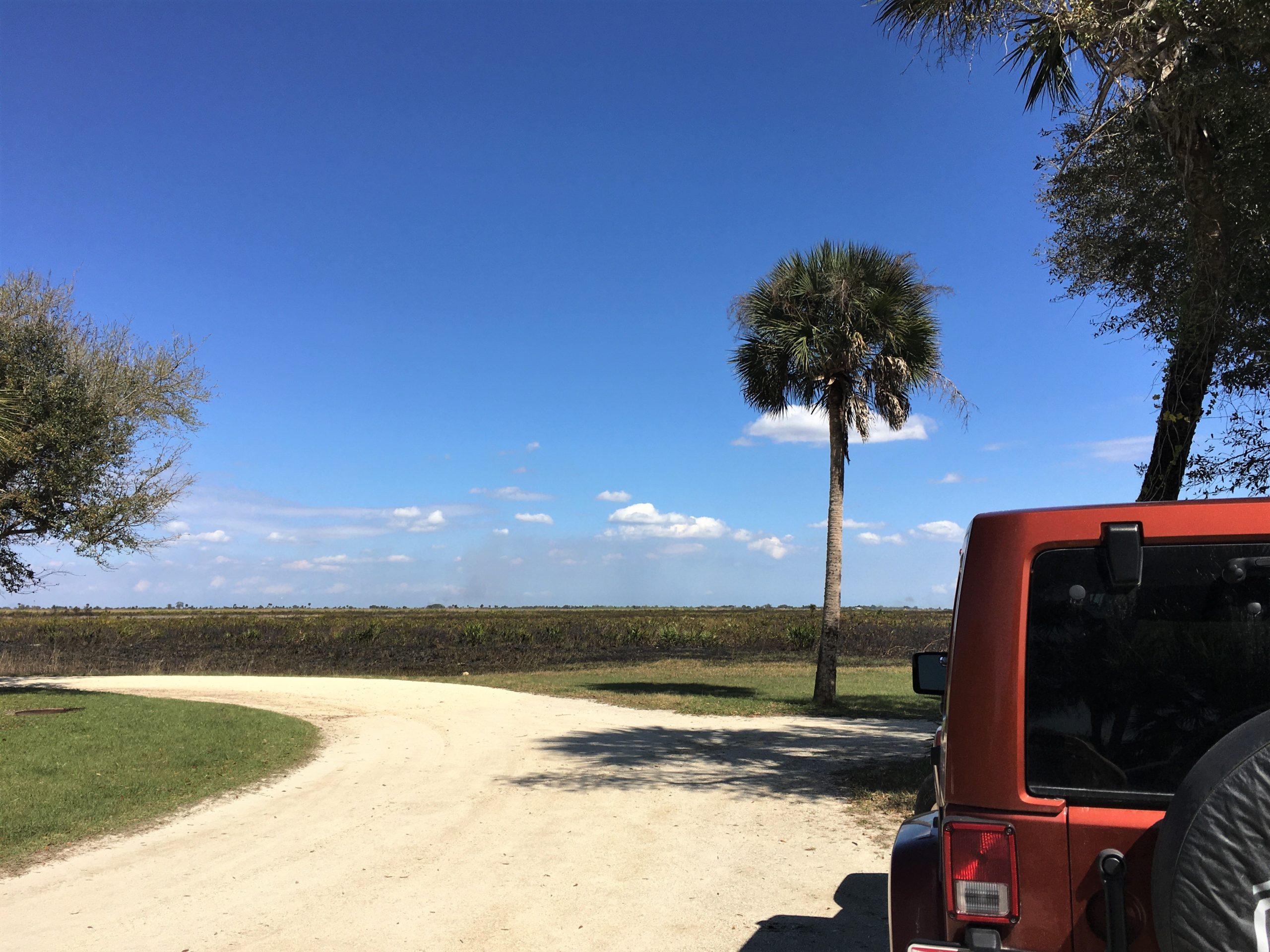
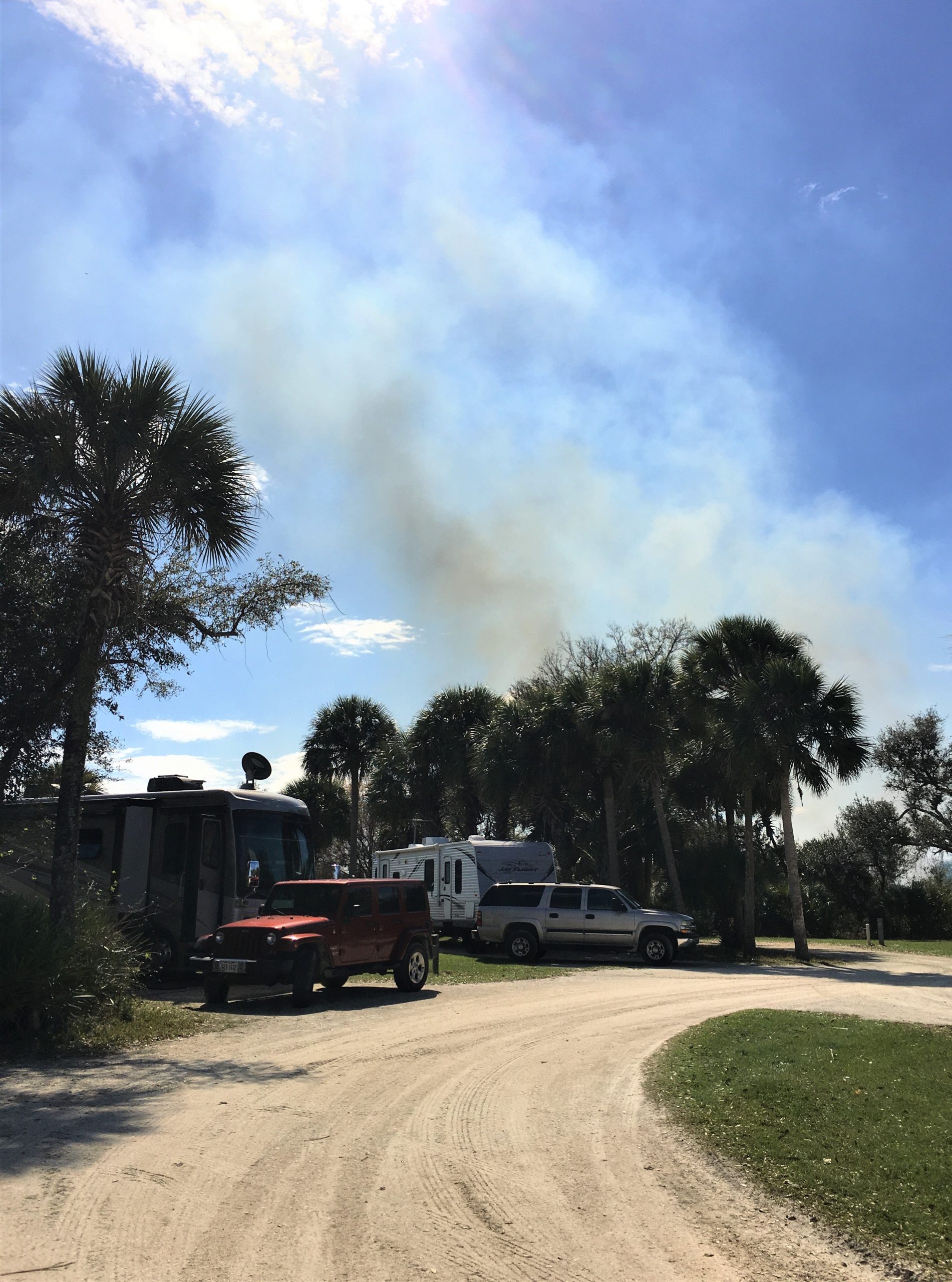
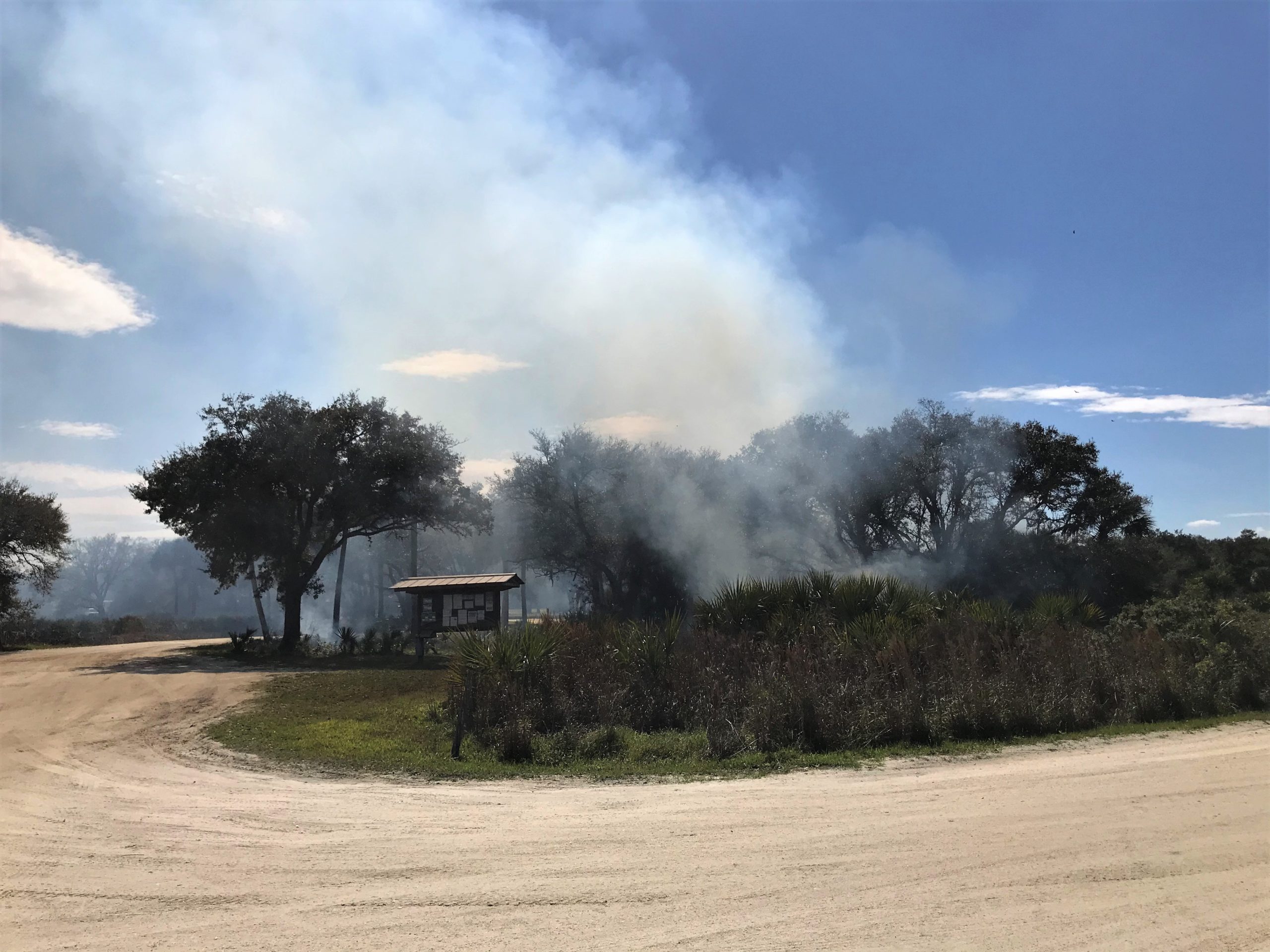
We were surprised how quickly the fire burned out though, and as we rode around this evening, we were also surprised by how much they left unburned – and smoldering.
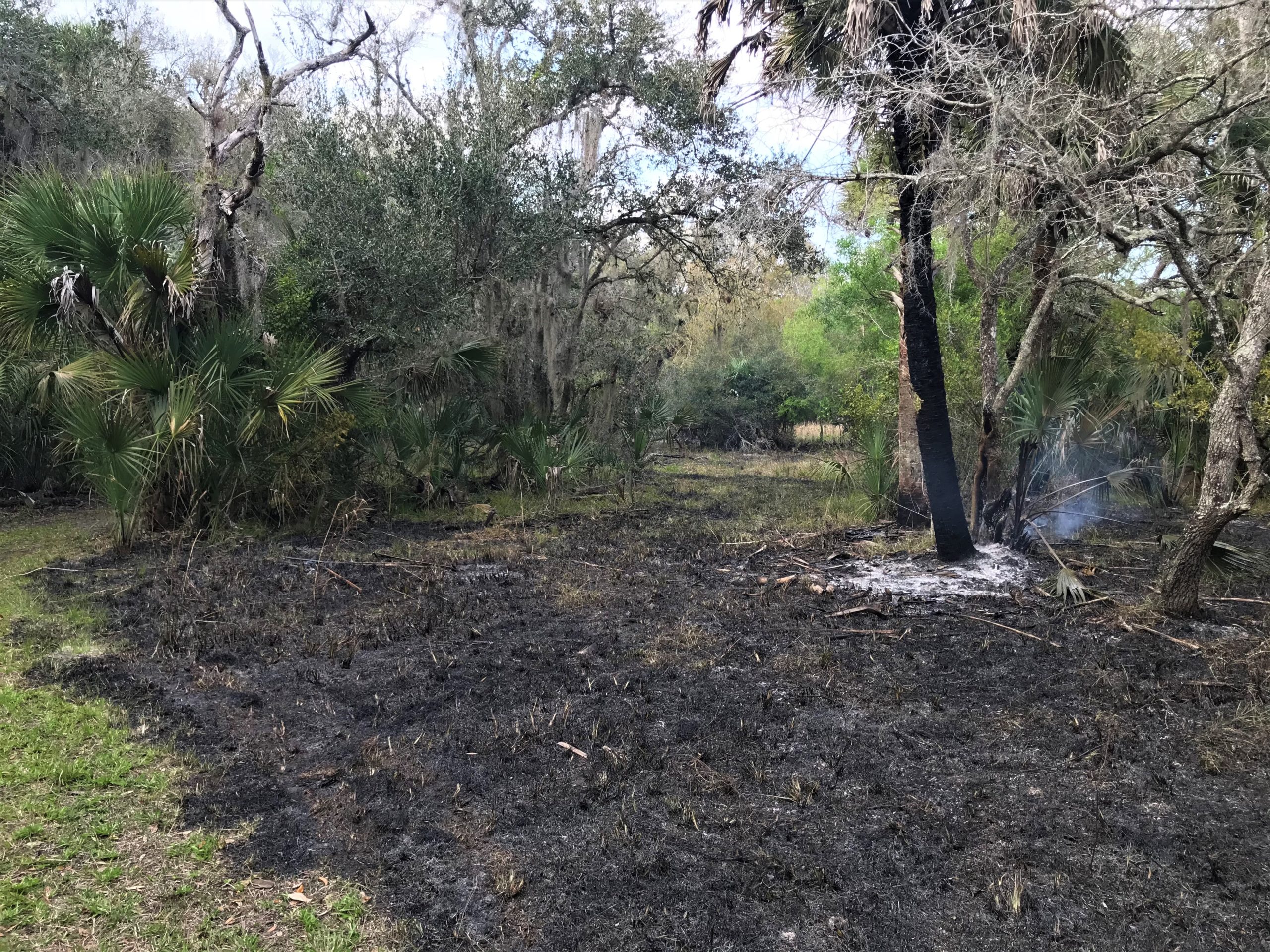
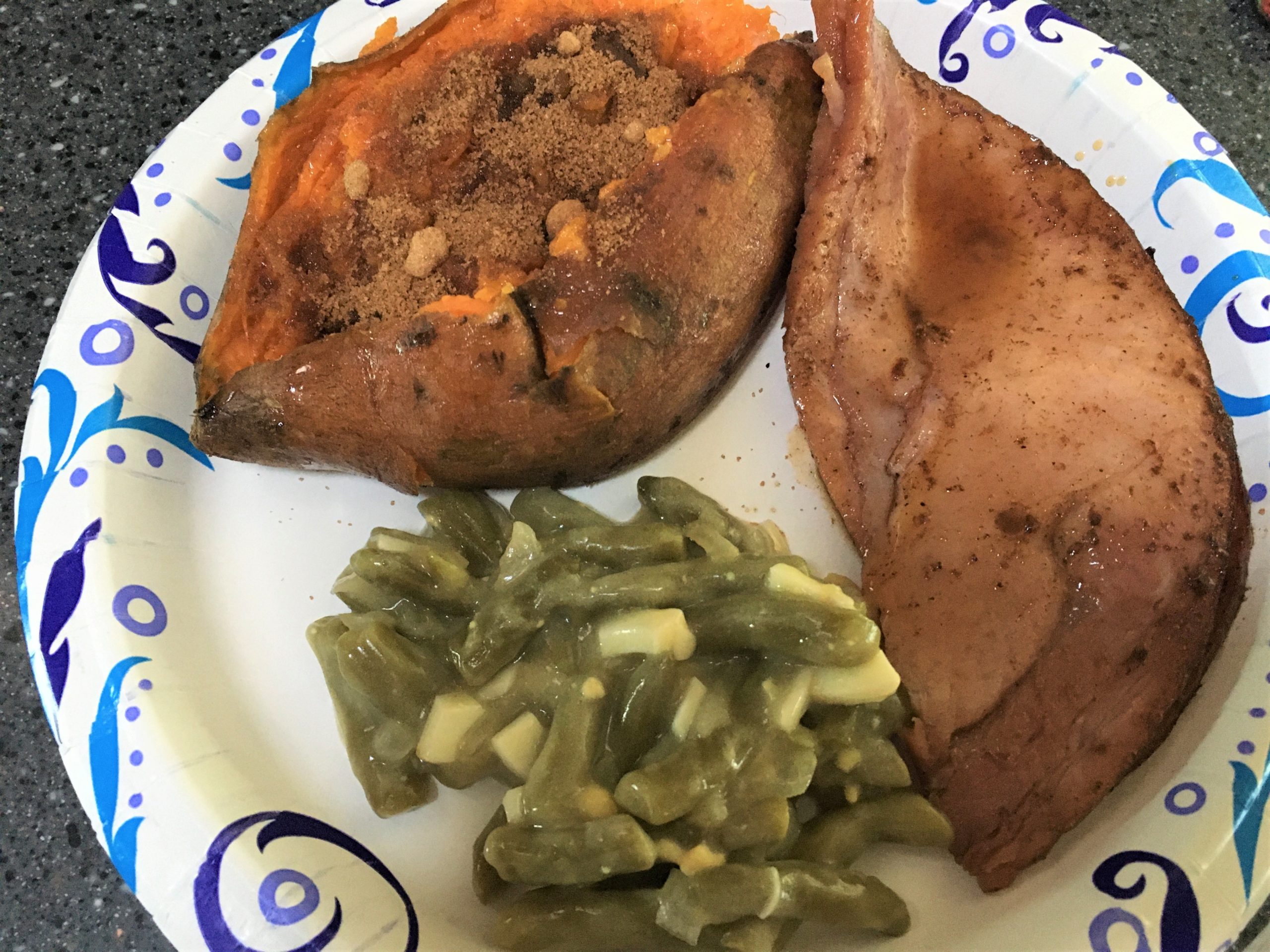
WalMart actually carries a delicious boneless, spiral-sliced ham (and it’s small!),
potatoes and Pennsylvania Dutch green beans
After all the excitement ended, we had work to do. I ran across the following on the Florida State Park website for Kississimee Prairie, and thought it interesting enough to share:
The Carolina parakeet was the only parrot species native to the southeastern United States and was last observed in the wild in 1920s. The last known nesting location was near Gum Slough within the preserve. Several factors contributed to their extinction, including feather and egg collection, habitat loss, the pet trade and the parakeet’s social behavior. Flocks of 100 to 1,000 Carolina parakeets were seen in upland forests, forest edges, wooded floodplains and agricultural lands. It was recorded that as many as 30 birds would share a nesting cavity. These loud, boisterous birds could be detected from miles away. Unfortunately, the parakeets became a nuisance animal when they devoured crops. Protecting their produce, farmers would use the flock’s defensive behavior against them. By shooting one or two birds, the farmer would only have to wait for the flock to return and gather around the wounded birds, which then would enable the farmer to eradicate entire flocks. Today, Carolina parakeets are seen only in paintings or as specimens. Their song and vibrant colors are no longer part of the ecosystem. Florida’s dry prairie has many endangered species, and it is imperative that they are protected and their habitat is preserved to ensure that they are enjoyed for generations.
